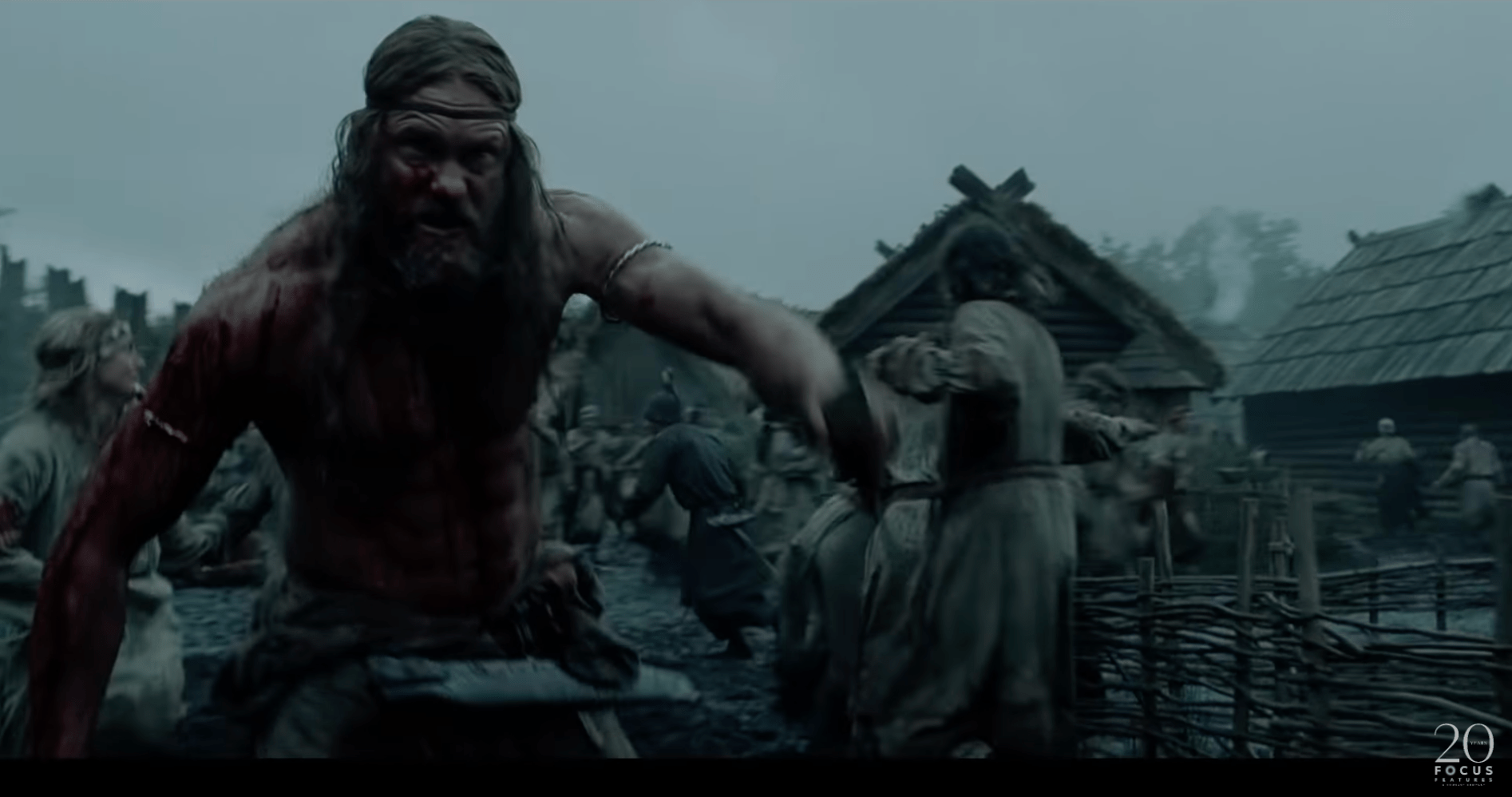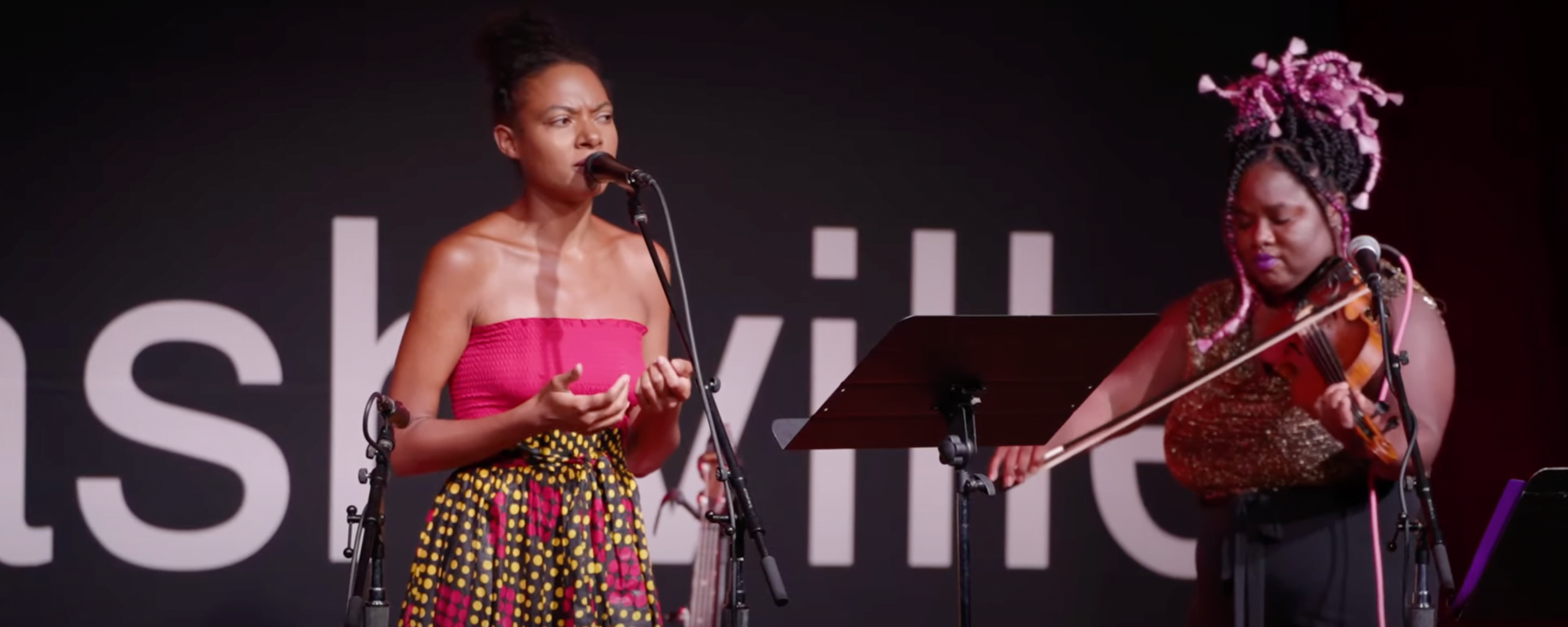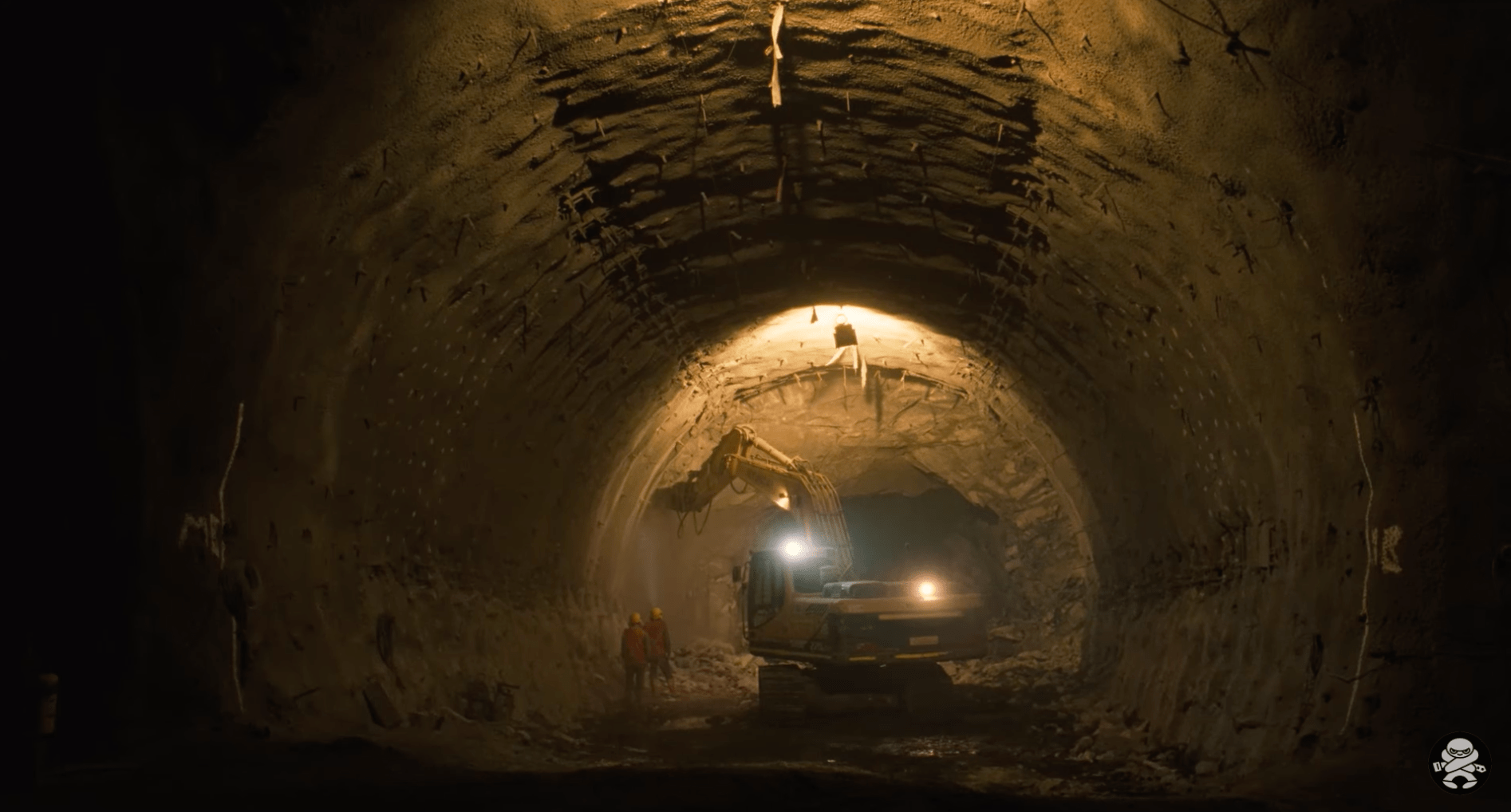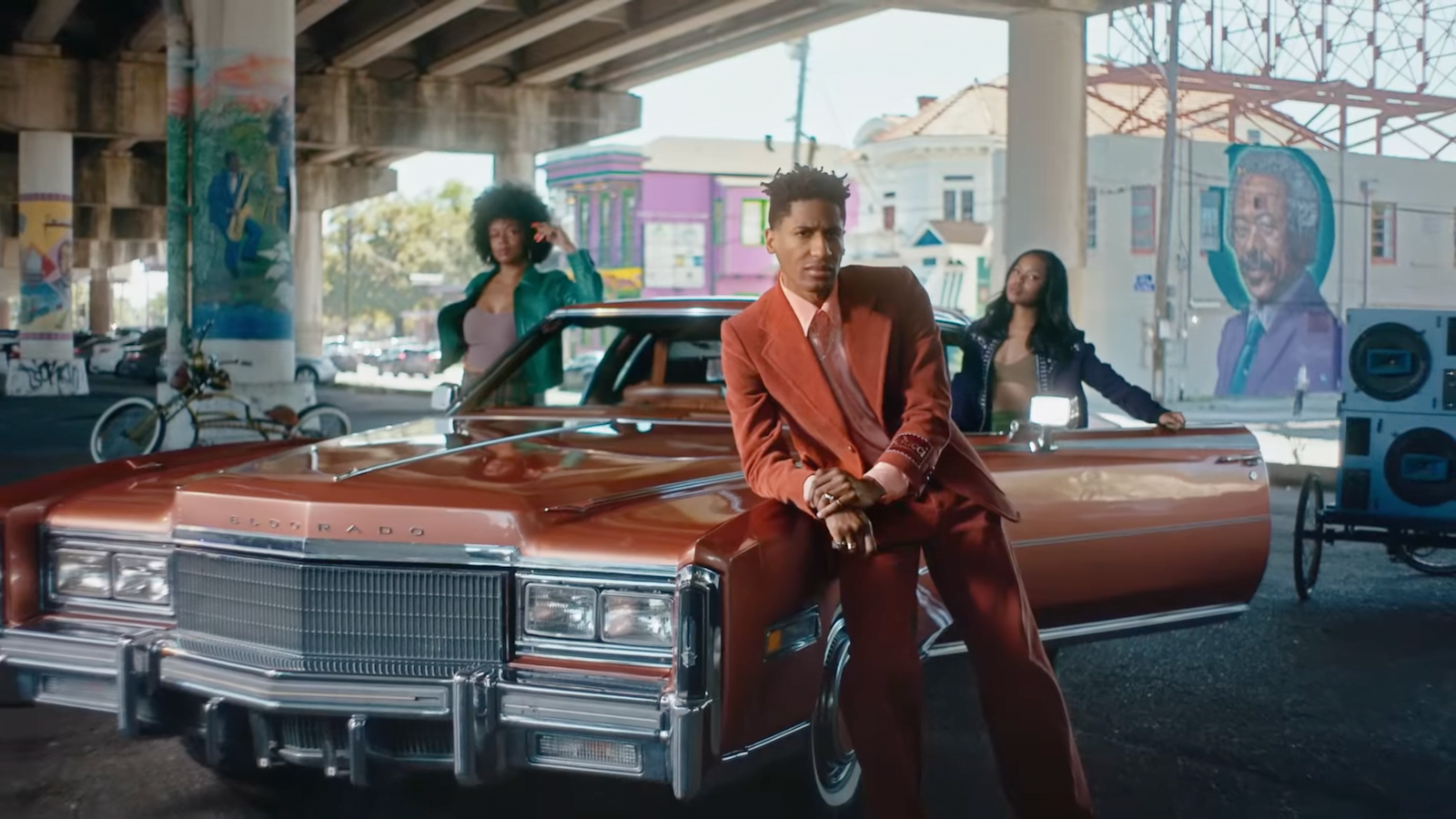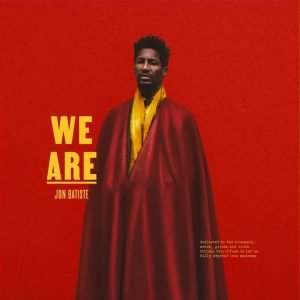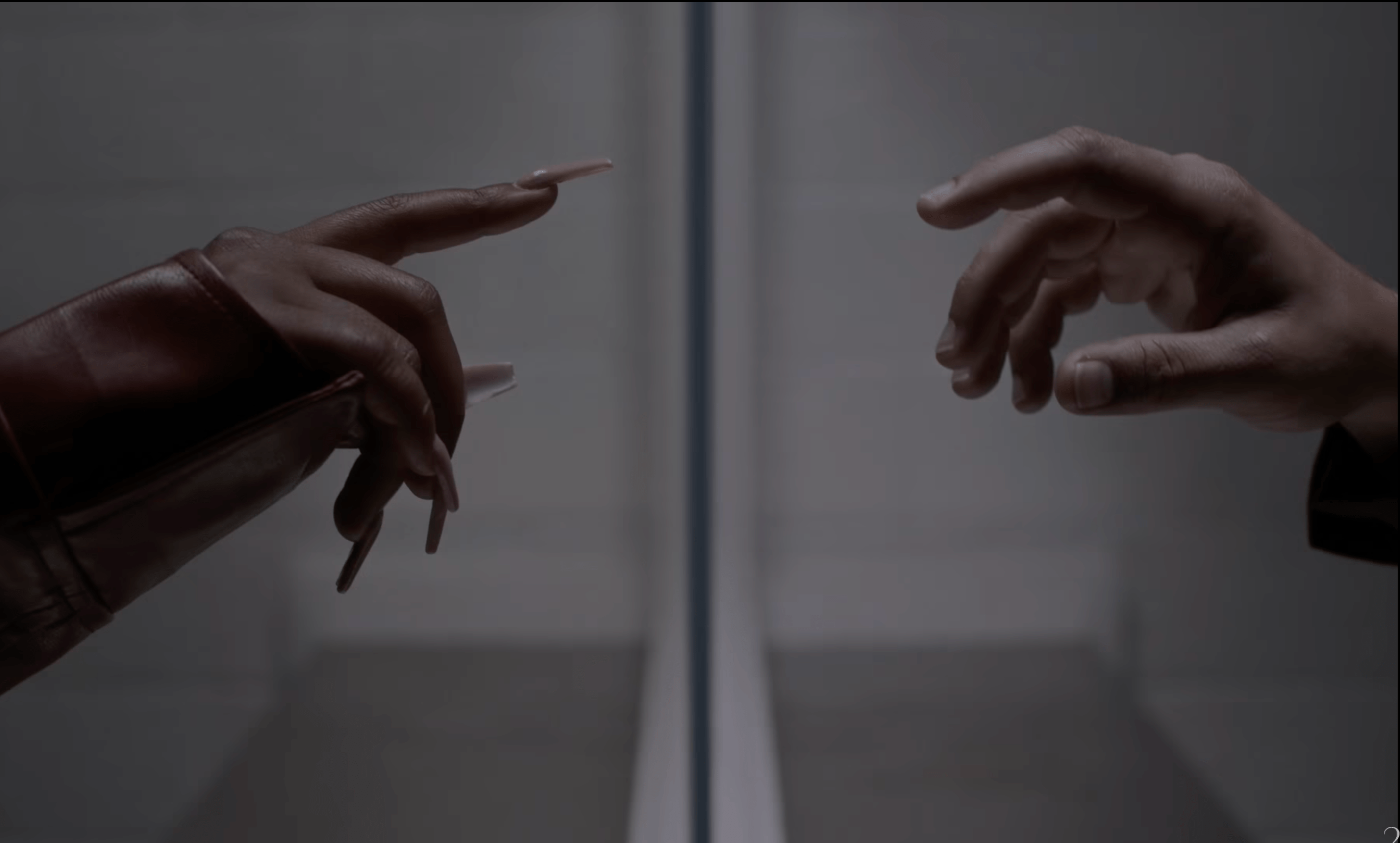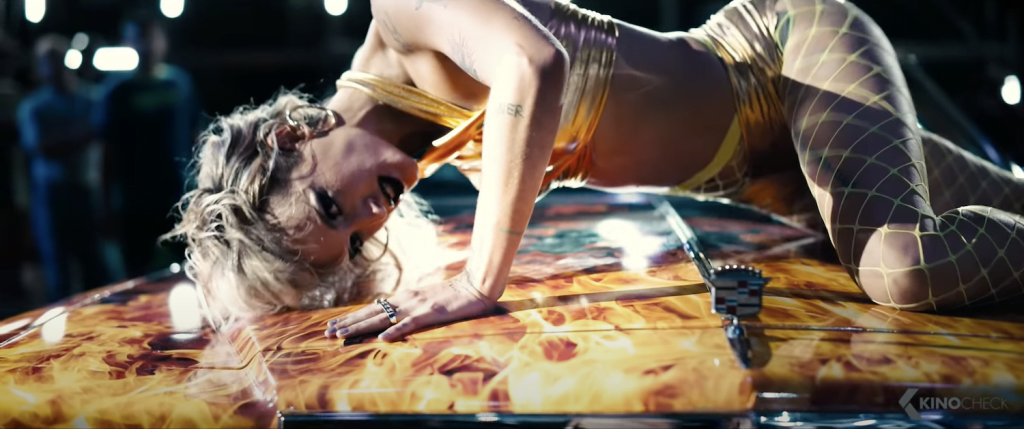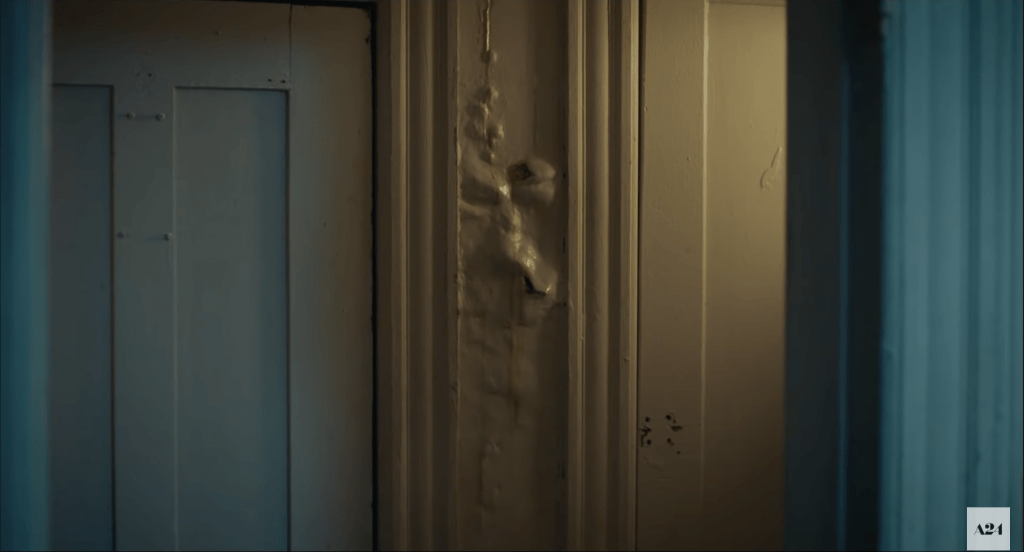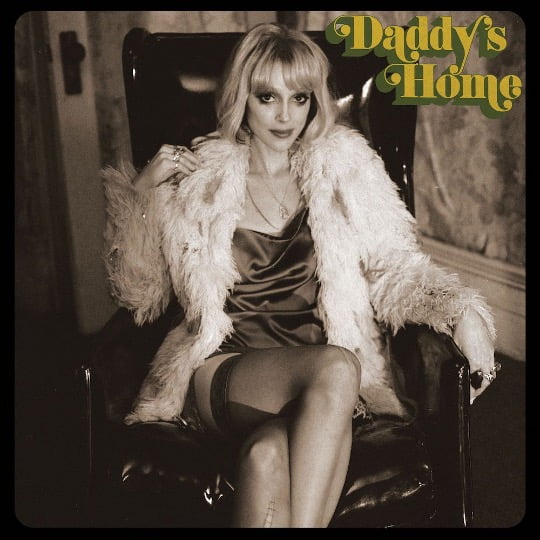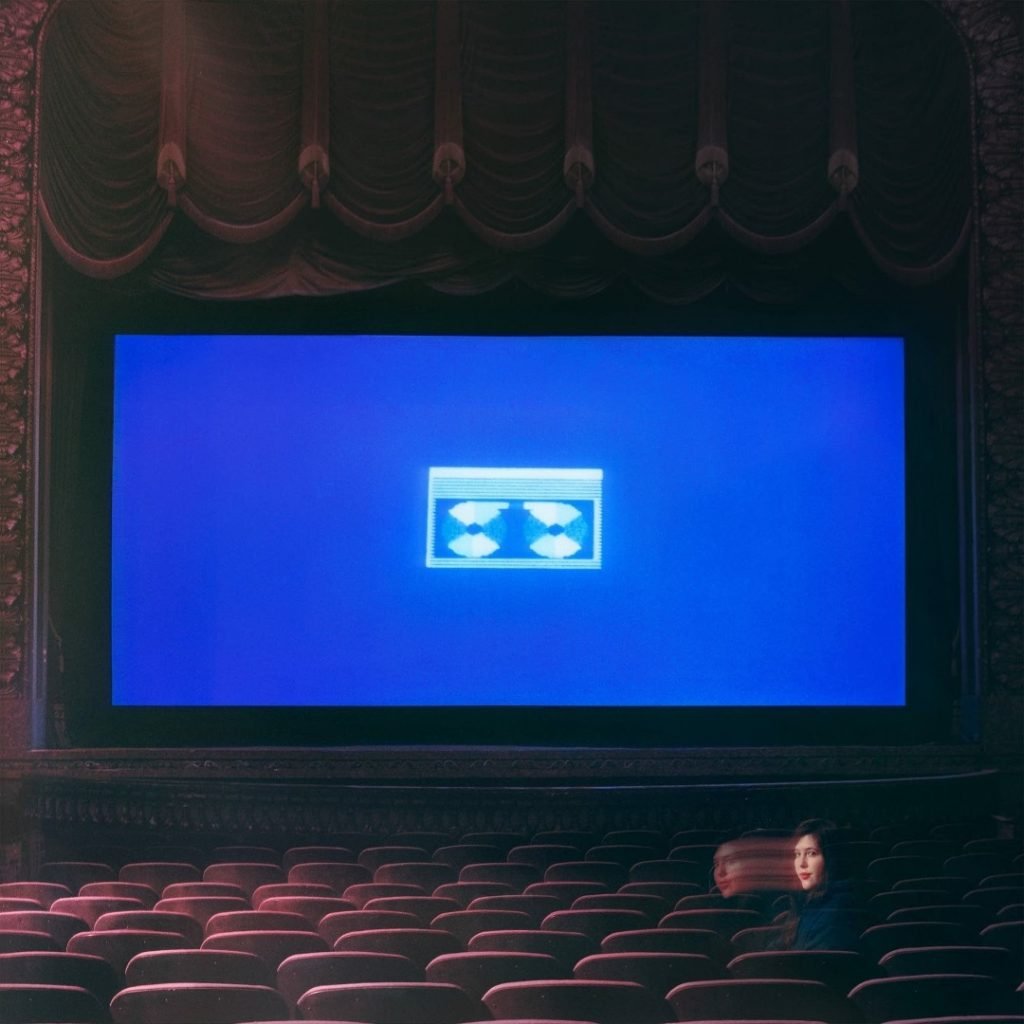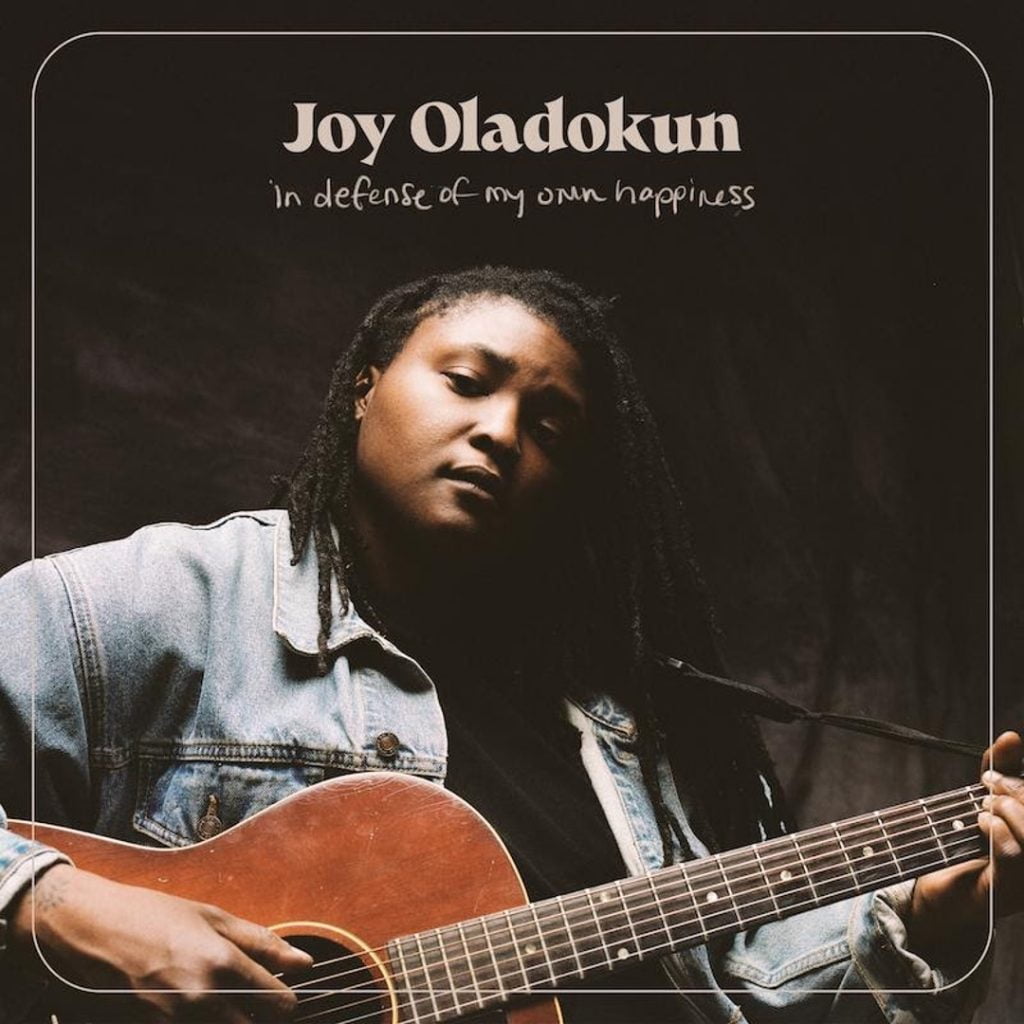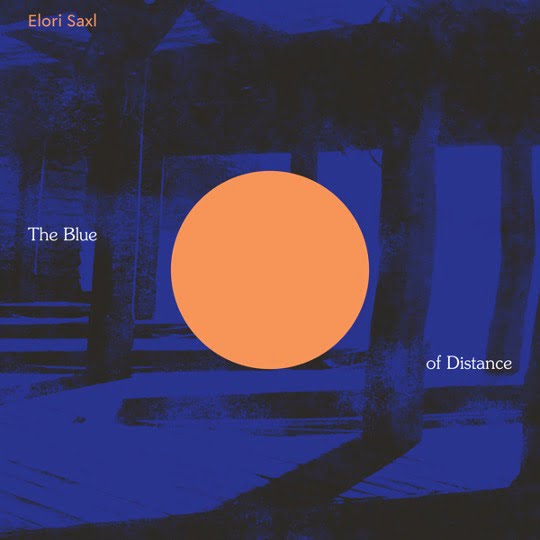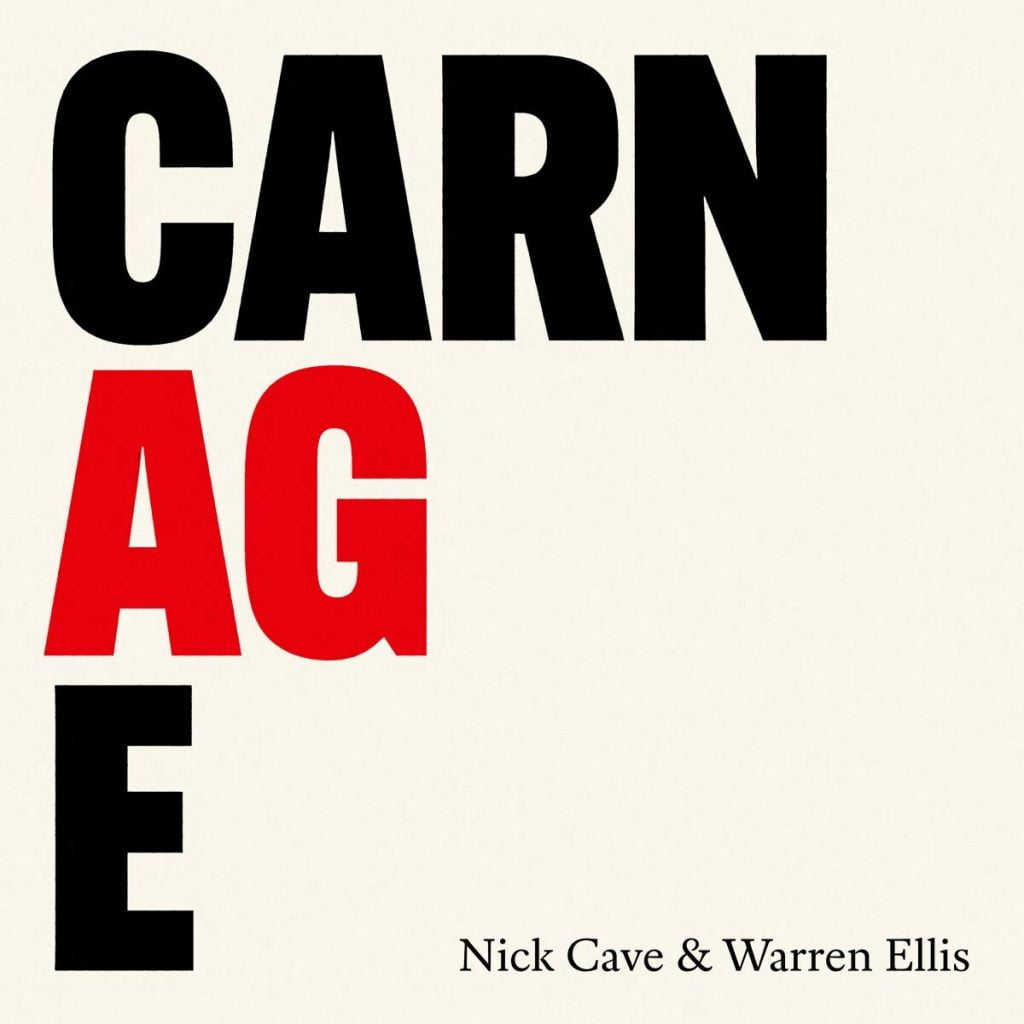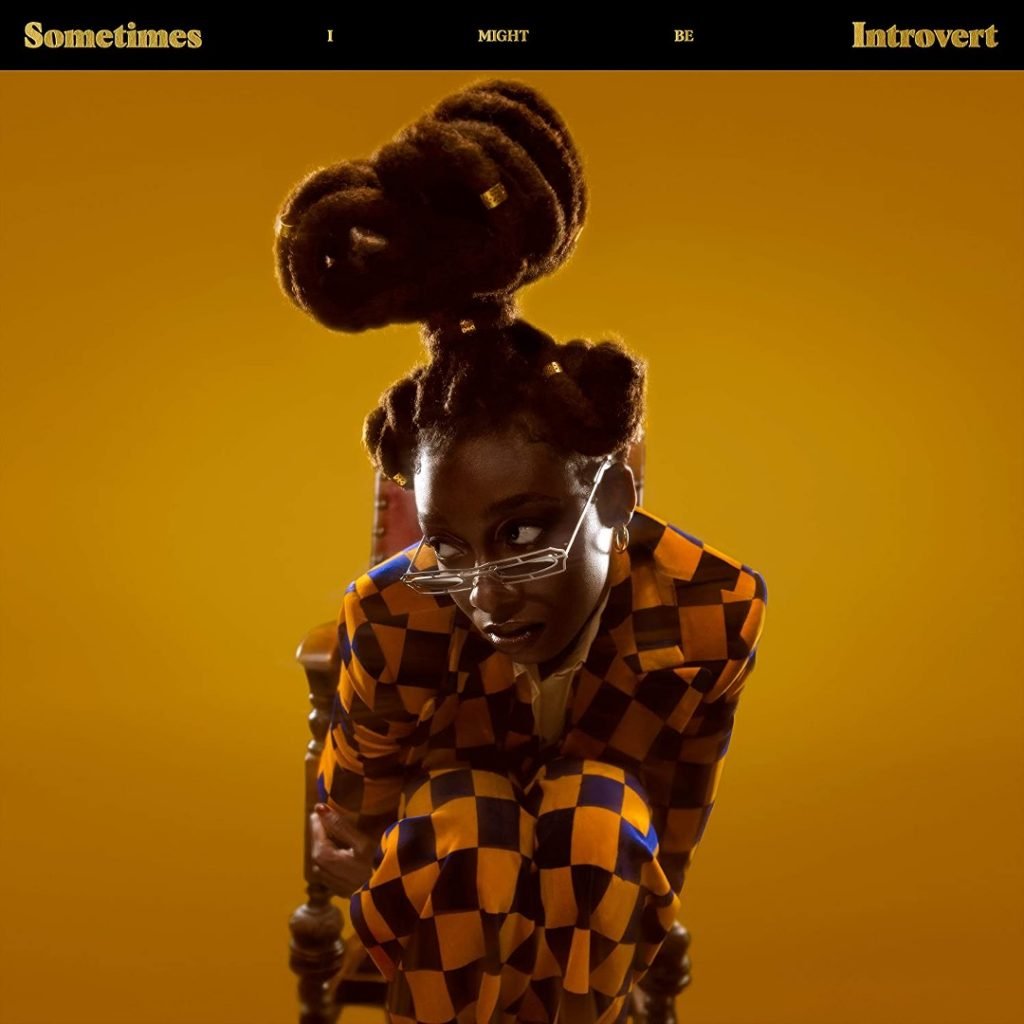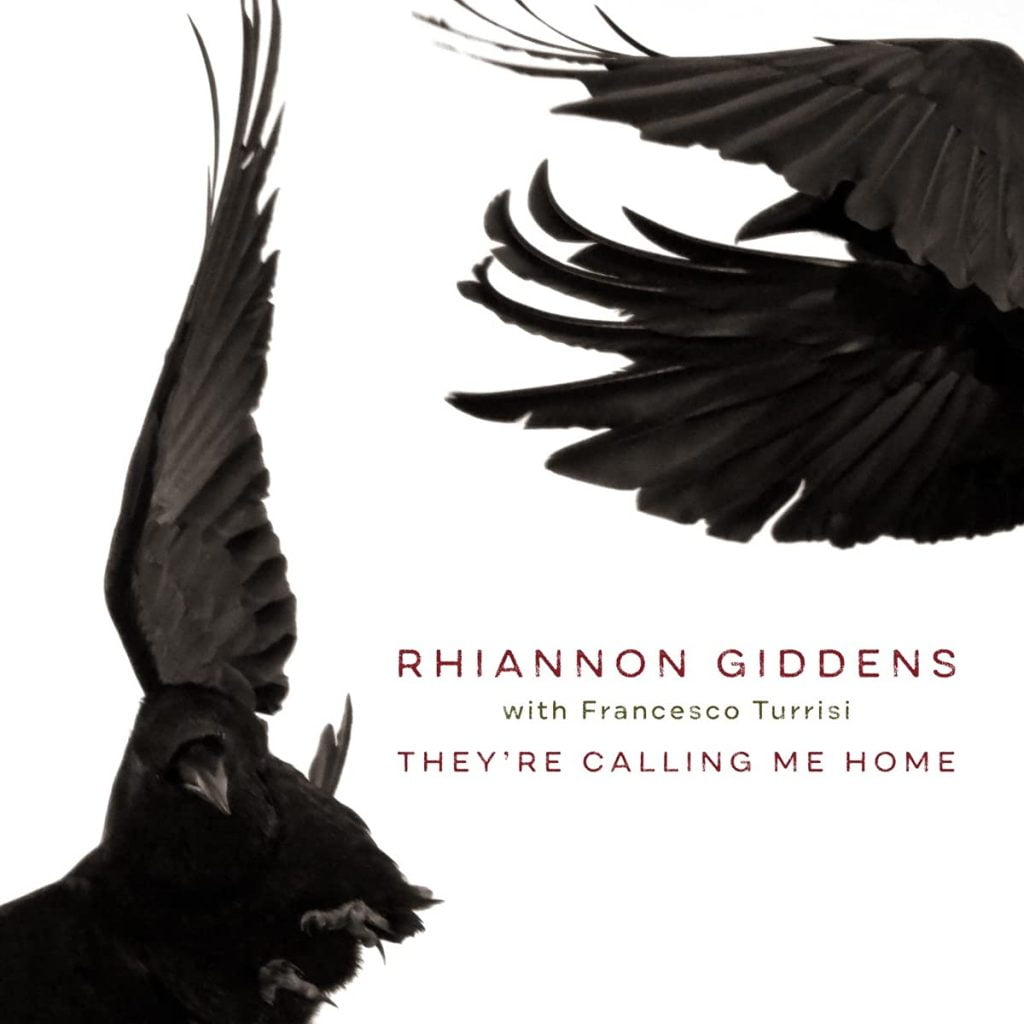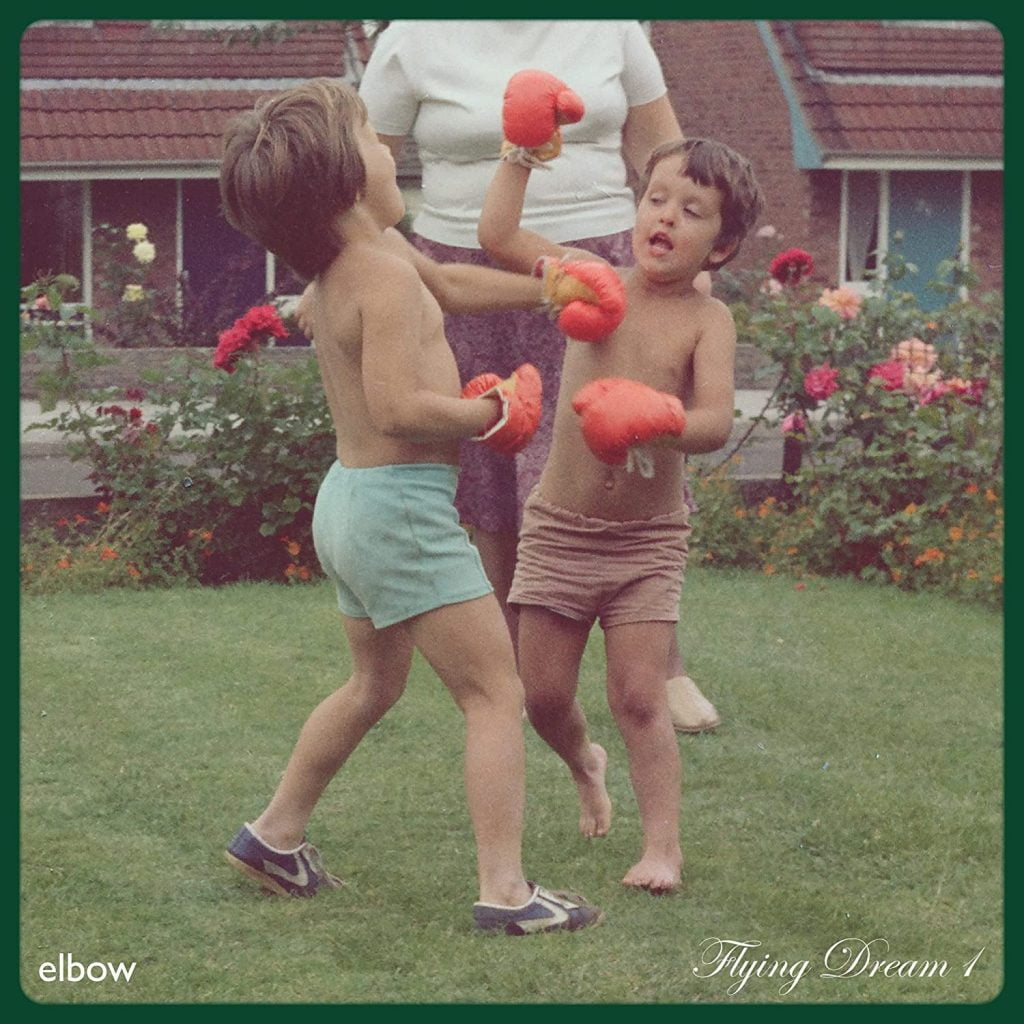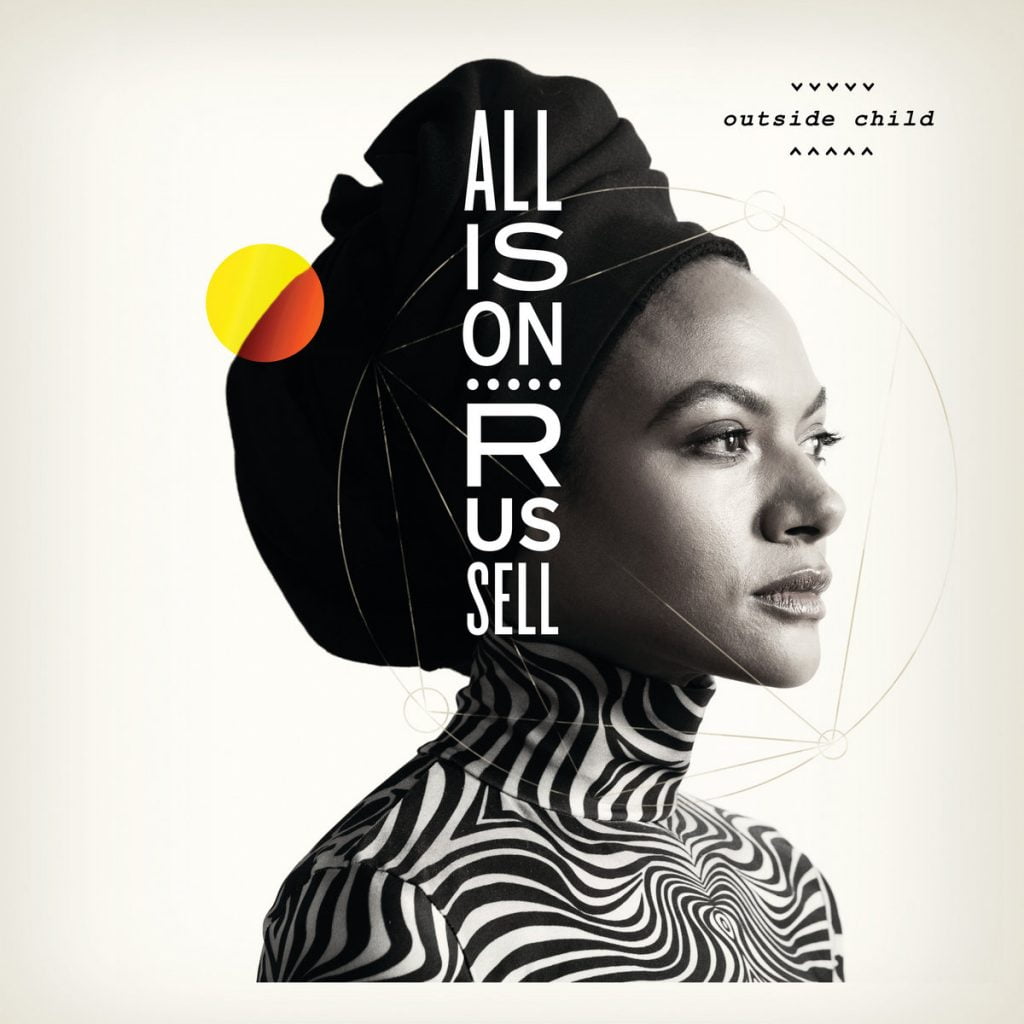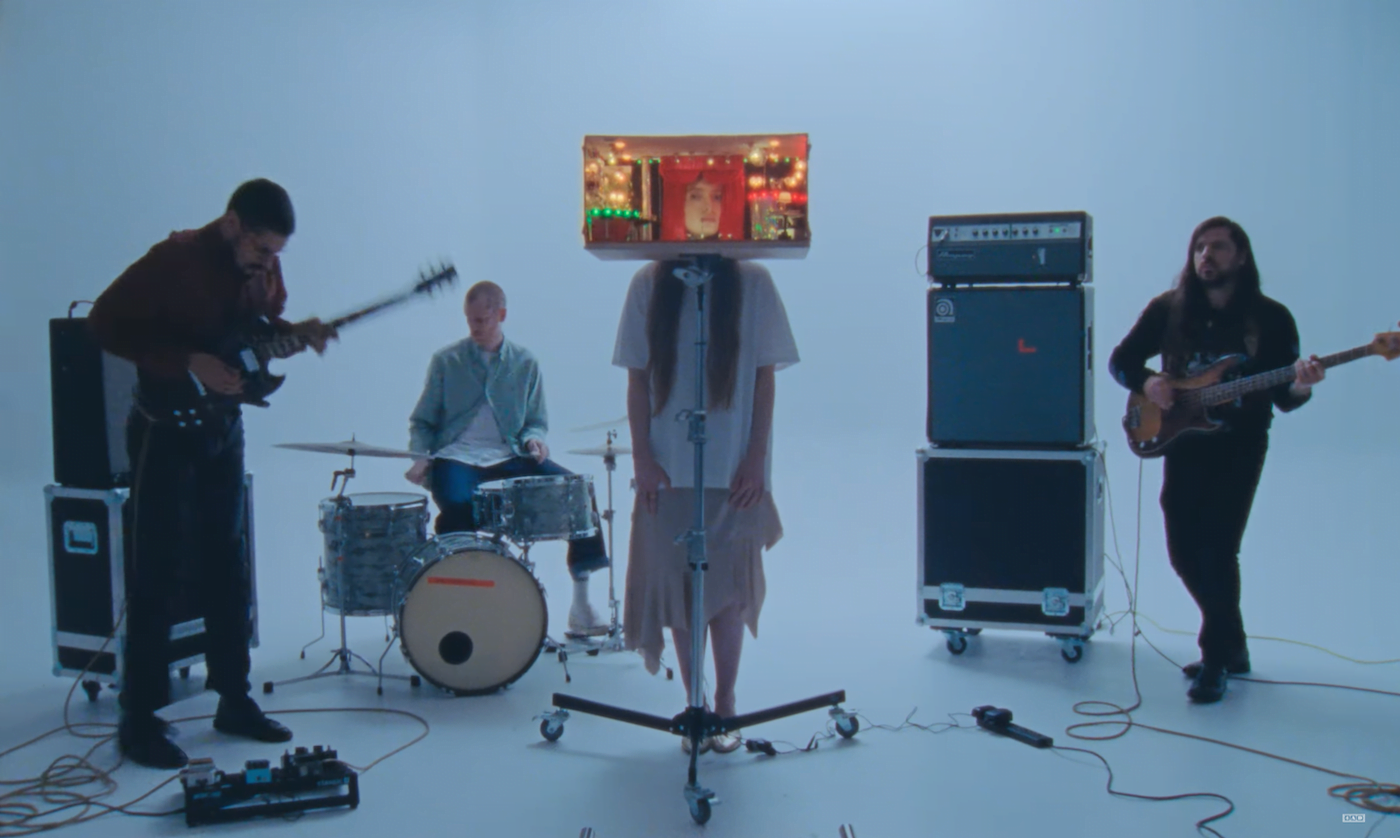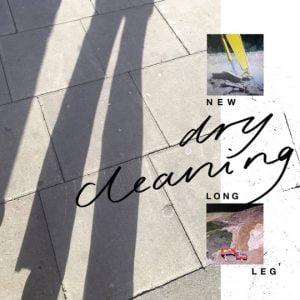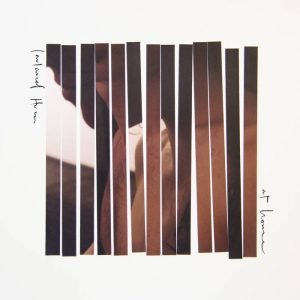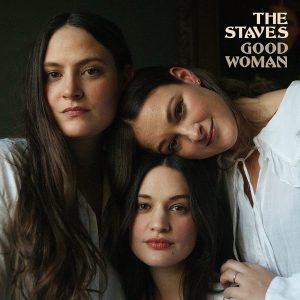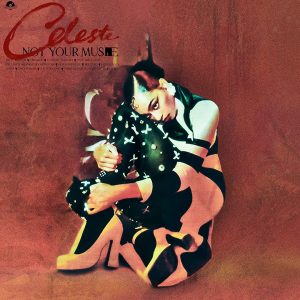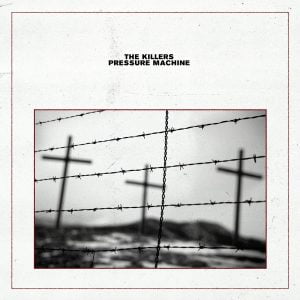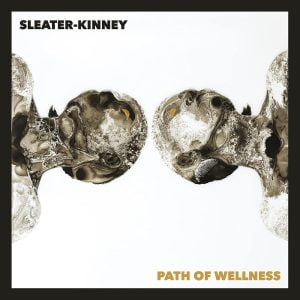Petite Maman (2022)
How can I inspire you to see Céline Sciamma's new film Petite Maman without spoiling it for you?
If you have children who can read subtitles, how can I convince you to spend the evening watching it as a family?
Chances are that if you've read anything about this quietly enchanting fantasy, or even seen a trailer, you already know its whimsical twist. But I hope not. I'm glad that I wandered into it without knowing anything except that it was an unusually short feature film and that it was by the director of the exquisitely tragic love story Portrait of a Lady on Fire (one of my ten favorite films of 2020). If you do know what's coming, well — it won't ruin the movie for you. In fact, having seen the whole thing, I am eager to see it again, confident I will enjoy it even more. But it's a rare occasion that a movie's revelations will inspire smiles of joy and wonder like this one does.

Petite Maman — which, if I have any reliable memories from my high-school French lessons, must mean "Little Mother" — follows young Nelly (Joséphine Sanz) and her mother Marion (Nina Meurisse) out into the woods to the house of the one they have recently lost: Nelly's grandmother, Marion's mother. In the haunted quiet of that house — one visited by gentle apparitions of reflected light that would have pleased Kieslowski — Nelly struggles to accept that she did not give her grandmother a proper goodbye. And Marion, who seems to be melancholy by nature and now must contend with deep grief, has things to work out as well.
What happens next is this enchanted forest, well — you will you will discover it all too easily from the movie's marketing if you're paying attention. (Try not to.) Suffice it to say that it's a rare kind of movie magic, achieved by very young actors without any digital animation or technical special effects. And their company is so delightful that you'll be likely to wish that movie was longer. Sciamma is a filmmaker who knows that less is more. No need to hit the two-hour mark unless it's absolutely necessary. This has all the weight of a full feature film, and it's a slight 72 minutes.

But for Sciamma, it isn't a small movie. Talking to film critic Carlos Aguilar at The Los Angeles Times, she said, "I don’t see Petite Maman as a modest film. The impact I want it to have is to give us a new mythology to understand ourselves and heal. ... Rather than just looking back and realize our parents were also kids, it’s a form of future perception of them. It’s about connecting, but about being reunited. That’s why it’s my dream for the film to be watched in a theater filled with adults and kids, because the film respects them both equally.”
[MAY 13, 2022 UPDATE: Having now seen it twice, I must echo Sciamma's hope. The film is so much more beautiful on a big screen, its silences so much stronger. If I were seeking to inspire in children a love of cinema, this is one of the first films I would take them to see. And I would be fascinated to ask them what they thought of it afterwards.]
This modest, intimate, magical story may seem like quite a surprising turn for Sciamma, whose Lumière award-winning Girlhood was such a starkly realistic portrait of adolescence, and whose Cannes award-winning Portrait of a Lady on Fire was so wise and so meaningfully erotic. But one remarkable quality they all share is a patient and hopeful attentiveness to suffering.
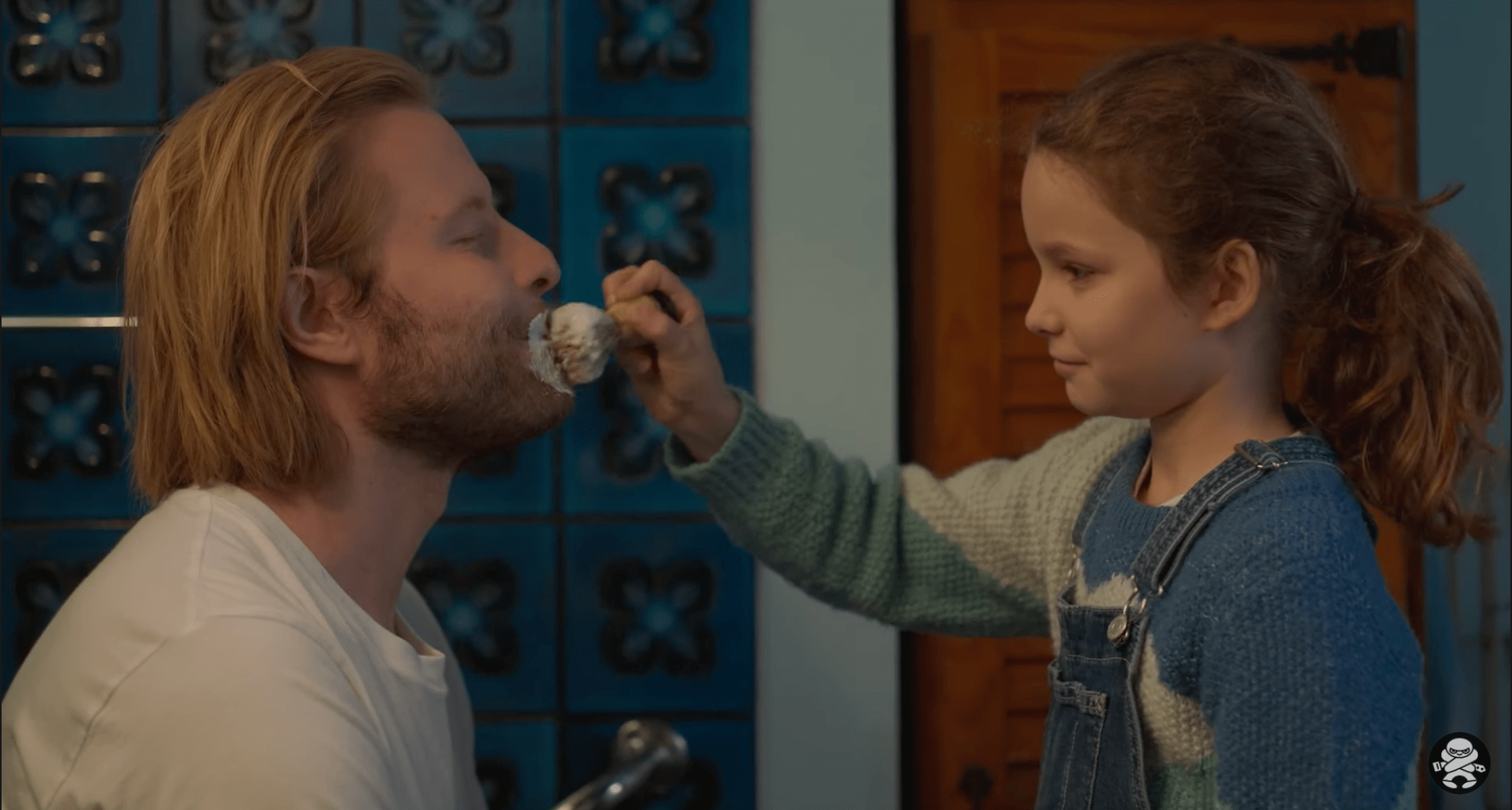
As I watched it, I was vividly reminded of two very special films: Jacques Doillon's Ponette and John Sayles's The Secret of Roan Inish. The films share some unusual strengths: In all three, we follow observant and intelligent children through territory scarred with loss and sadness. In all three, the film's delicate fairy-tale tone must be inspired and sustained by talented child actors. In all three those actors are convincing — they seem entirely unaware of the cameras and entirely convinced of their narrative circumstances. And in all three, we find a similar spirit of tenderness.
But — as more than one friend of mine has observed — there's more than a little My Neighbor Totoro in the mix here, too. (Sciamma herself agrees, according to that Los Angeles Times piece.) Don't get the wrong idea — this movie doesn't need big, fuzzy, huggable trolls or flying cats. It has all of the magic it needs in sisters Joséphine and Gabrielle Sanz, who strike a powerfully authentic tone of playful kinship, saving the film from a high risk of sentimentality, and inspiring our suspension of disbelief. (Disbe-grief?)

2022 has been a year full of movies about mothers and daughters: In both Everything Everywhere All at Once and Turning Red, the mothers need enlightenment and their daughters must become exasperated and dangerous in order to smack them out of their ignorance. Both films, though they have their strengths, seem compelled to reach a frantic pace, as if that's what it takes to entertain audiences. What that costs the audience is a chance to be drawn in, to have visual and aural space in which to contemplate. And watching Petite Maman, we have the opportunity to reflect, to ask questions, to imagine possibilities and implications. Above all, we have the chance to empathize. By Ebert's famous definition, "A movie is a machine that generates empathy." And that makes this, far more than either of the other major mother/daughter films of the year, a great movie.
And so, with great respect for the joy of discovering this film, I will let this be the extent of my review. I want your experience with this film to be full of surprises. It's so gentle, so full of admirable restraint, so radiant with childlike curiosity, I feel unusually motivated to preserve its subtle pleasures for you without any hints in advance.
I'll give the last words here to my friend and my favorite film critic: Steven D. Greydanus. He calls Petite Maman an "exquisite little film" and recommends it "for all ages." At Catholic World Report, he writes,
Not long ago ... I remarked on my abiding love of time travel for its power to speak to deep human longings to undo past wrongs and heal incurable wounds: to offer, in a word, an imaginative picture of redemption beyond anything we experience in the ordinary flow of time. There’s no place in a film like Petite Maman for world-bending sorcery or flux capacitors, but the elegant simplicity of what Sciamma does with an unexplained wrinkle in the fabric of reality speaks as eloquently to those longings as any film I’ve seen.
The Northman (2022)
[CAUTION: There are some very general, spoiler-ish observations in this review that concern its closing scenes and the relationship between those scenes and the endings of Robert Eggers' previous films The Witch and The Lighthouse.]
It's kind of amazing how many films I've seen built upon the Inigo Montoya mantra. (Let's say it together: "You killed my father. Prepare to die.") It's even more amazing how fundamental that storyline is, considering the fact that I have never met a single human being whose father has been murdered by a traitorous acquaintance. Nor have I ever met anyone who had an opportunity to go on a revenge quest.
And yet, just this morning, in conversation with a wise counselor, what was I wrestling with? I was tending to some wounds that I suffered as a young boy during a season of my father's unemployment. At the time, I believed — passionately — that teachers and school administrators had wickedly conspired against him top end his job as a teacher. I remember feelings of rage, helplessness, and humiliation over the idea that anyone could take power away from my parents in ways that would make them suffer hardship.
That was only the beginning. There was a lot that I know now that I did not understand then. I had a lot of growing up to do.

Thus, even though I am weary of revenge narratives, I feel some measure of understanding and sympathy for the deeply wounded young hero of Robert Eggers's new film The Northman. He too, as a young boy, witnesses his father "removal" from a place of power and influence. He too suffers emotional trauma and lets his fury harden into resentment that becomes a controlling factor in his life.
And he too has a lot to learn in the process of growing up.
But is he willing to learn?
Revenge is foolishness. But that doesn't mean that stories about it are worthless. Sure, there is an epidemic in American entertainment of stories that glorify revenge — and that's a toxic trend. But tales of vengeance can follow a righteously angry hero to so many possible conclusions: not only a violent reckoning or ruin, but also grace, forgiveness, reconciliation.
I love Lee Isaac Chung's film Munyurangabo, which I saw a whole decade before he made the Oscar-winning Minari. It's a powerful story of a revenge quest that leads its angry and heartbroken antihero to a surprising turn. It's a surprising story that finds hope at the end of a journey that began in trauma and wrath.
Such stories are very rare throughout human history. But even if revenge tales end in the achievement of violence, they can become meaningful tragedies. In choosing violence over long-suffering and love, an antihero can illustrate the wages of sin and provide us with a cautionary tale. Consider Hamlet: the choice to answer killing with killing leads to greater consequences for everyone.
I've always found the prevalence of such violence in mythology interesting — Celtic tales, Greek myths, whatever the origin — for how it illustrates the values and beliefs of particular peoples, places, and times. I first learned about the Norse god Vidar, also known as "The Silent God" and "the God of Revenge," while paying very little attention during a boring college class on mythology. You want Vidar on your side if you're on a revenge quest. After all, according to his origin story, Vidar knows the territory: Wreaking vengeance, he tore apart Fenrir, the wolf who had killed his own literal god-father: Odin.
But why is Vidar described as a god of silence and revenge? The combination struck me as curious. Was Vidar silent because silence is an essential talent for someone who is determined to sneak up on a dangerous tyrant and kill him? That makes sense — especially if the villain might be anticipating such retaliation. Could it also be that a god of revenge is violent precisely because he is silent about his anger?
Bottle up hard feelings and you'll end up with a volcanic eruption. That's some heavy wisdom — I've learned it from watching others in my family and community. I've learned it in my own experience.
Nevertheless, I have no doubt that contemporary revenge narratives influence a culture that has such a huge appetite for them. The increasing violence in American culture wars seems to me to be influenced by these stories. Make an audience angry enough, and they will cheer for all manner of violence. And that includes Christian audiences, as evidenced by the popularity of Braveheart among evangelical Christians, and their increasing support for violent uprisings against their culture-war enemies (even though such uprisings are obviously contrary to Jesus's own teachings).

So, I had good reason to approach Eggers's new movie with skepticism. Reading about the basic narrative arc of The Northman, I became nervous that this might become just a fancier, more enthralling version of the kind of narrative that Quentin Tarantino consistently serves up: a lurid feast appealing to an audience's bloodlust.
And, even more worrying than that — a Nordic revenge story? Right now? A story about clans of white people warring like animals in an endless cycle of violence and retaliation... making speeches about defending their bloodlines? Doesn't that sound like the glorification of what's going on all around us in the world right now and threatening not only our hopes for peace and justice but even our hopes of an inhabitable planet for future generations?
On the other hand, my history with Robert Eggers's filmography so far gave me some measure of optimism.
I admire his two previous films The Witch (2015) and The Lighthouse (2020). Both tell stories of characters who remove themselves from the "trouble" of society (as if that will help). The efforts of those characters fail — as they distance themselves from some sources of trouble, they learn the hard way that they have brought plenty of trouble with them into their isolation. Now, suffering in remote places, they have no community to rely on for help. Even more troubling, both films depict their doomed protagonists devolving into a kind of ecstatic madness, a victory that I don't believe audiences are meant to believe in or celebrate. I think we're supposed to recoil at their choices and at the frightful consequences. I interpret both as cautionary tales — or, better, cautionary nightmares — about how our impulses can lead us straight to hell. And I think we are shown that, just the Satan of Milton's Paradise Lost determines to "make a heaven of hell," so these characters fail to discern the gravity of their error, thinking they have somehow triumphed.
What's more, I think Eggers's filmmaking powers are formidable. While both stories strike me as meaningful and worth studying, The Witch and The Lighthouse also look and sound extraordinary, their exquisite aesthetics conjuring a powerful sense of spiritual darkness, their scripts composed with a richly literary complexity, the lines delivered by actors who have mastered difficult dialects.
So... which is it?
Is The Northman a cautionary tale? A corrective to vengeful impulses?
Or is it just another Braveheart, justifying vengeful violence in the name of some kind of god, throwing fuel on the fire of the violent fantasies of the "culture warriors" who threaten democracy?

As it turns out, both my fears and my second-guessing of this film were well founded.
For many moviegoers — perhaps most — The Northman will play like a darker, bloodier version of Gladiator, in which the audience roots for a suffering hero. He never quite says it, but the mantra is there all the same. He might have said "My name is Prince Amleth. You, Fjölnir The Brotherless, killed my father, King Aruvandil War-Raven. Prepare to die." Instead, he says, "I will avenge you, Father. I will save you, Mother. I will kill you, Fjolnir.”
We watch Amleth (Alexander Skarsgård) gird up his loins and sharpen his lances to carry out violent vengeance against a tyrant (Claes Bang) who took the throne of his father (Ethan Hawke) by treachery, and also made the queen Gudrún (Nicole Kidman) his own by force.

Sound awfully familiar? It should.
The Northman is basically the ur-Hamlet, a version of classic story that pre-dates any of Shakespeare's concerns about Ophelia or the role of the Players in "catching the conscience of the king." This is the most fundamental of revenge quests. This Amleth doesn't care about wordplay. He devotes his life to the long game of stealth and vengeance, his intent easy readable in the creases of his forehead and the scowl of his posture. Amleth gets a decade-long training in Viking masculinity, complete with fireside dances and chants, hand-to-hand combat, costumes of animal skins, communion with wolves and with witchcraft (including a Seeress played by none other than the great sorceress of pop music: Bjork!), and with a sort of Crossfit program that involves a lot of rowing. It's easy to root for him... at first.
But there is a strange contradiction at the movie's heart — manifested in the character of Olga (Anya Taylor-Joy). Amleth and Olga form a tenuous bond of mutual support as they earn their way up the chain of slavery to Fjölnir The Brotherless, until they find themselves in Iceland — Fjölnir has been driven out of his own kingdom and forced to settle elsewhere — at the edge of Fjölnir's inner circle and family.

When they get there, Amleth is troubled to discover that the story he has told himself throughout his life has been a false narrative. Fake News. Those events that traumatized him in childhood, they weren't as simple as he'd imagined. It wasn't just a case of the Evil World committing sins against a Saint.
It's always more complicated than that. To learn such lessons is fundamental to the work of Growing Up.
Olga, the tender and beautiful slave who sees Amleth's hardship so clearly, becomes a beacon of wisdom and hope in his life. It's seems only right that she's played by Anya Taylor-Joy, the actress who has, in my opinion, eyes that seem to have been custom made for the camera's attention (yea, more than the eyes of any actor living or dead). Her tremendous, shining eyes give Olga a sense of seeing so much more than Amleth's narrow and bloodshot eyes ever could. She eventually comes to see a hope for the two of them to break away from the path of violence and find a more meaningful and rewarding life somewhere else.
She wants to set Amleth free from the dangers of clinging to the source of his wrath, that false narrative he has believed, that false narrative that he might now see clearly and overcome.

Here is an opportunity to show audiences something so much more than — so much better than — the bloody revenge for which so many of them seem to have an insatiable appetite.
There is already plenty here to admire. Everything from the costumes to the sets — which often remind of me of Terrence Malick's work in The New World — are immersive and awe-inspiring. Eggers always knows where to put the camera. And the cast, as in every Eggers film, seems caught up in a fit of inspiration and chemistry, with one possible exception. I'm not sure I find Alexander Skarsgård to be the strongest choice for this role — he still seems more of a Movie Star than an immersive actor. He never surprises me here. Nicole Kidman, on the other hand, is terrifying and fearless in The Northman. I find the price of admission more than rewarded just for the spectacle of her fully committed performance. (I have to admit, though, that I half-expected her to break the fourth wall during a bloody battle scene and say, as she does in that awful AMC promo video, "Heartbreak feels good in a place like this.")
If I can trust my first experience with the film, I think Olga becomes the movie's conscience. We embrace Amleth's doubts, his momentary fear that he might not have any moral high ground to stand on here, as he waves his sword around and challenges his foe. Will Amleth choose to reject the wiser, more complicated understanding of what was really happening in his youth? Will he hold to his original emotional response, as reasonable as it might have been once upon a time, even though he now has a chance to see that it was childish, and that it will only lead to more bloodshed and folly?
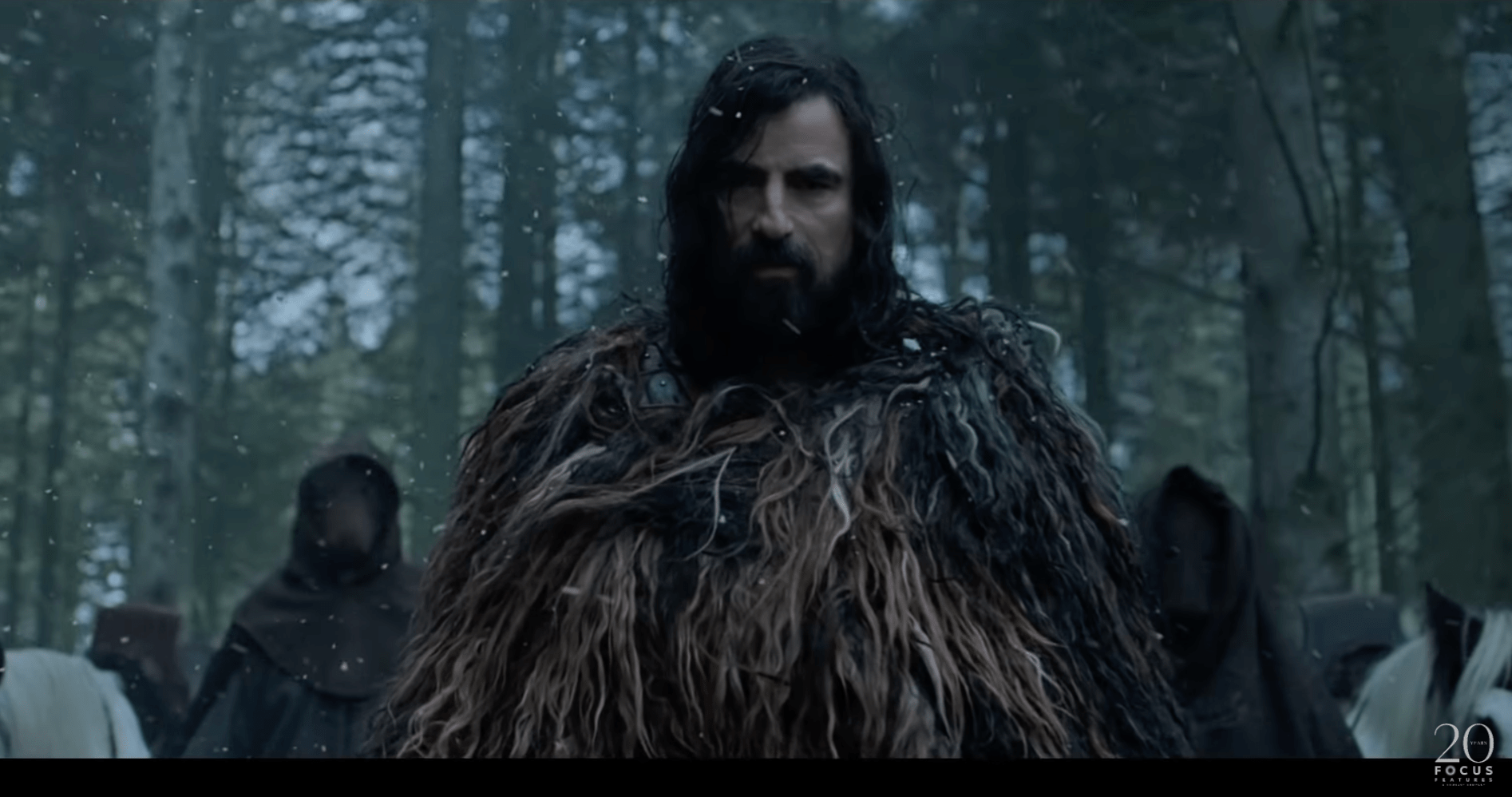
I think we are supposed to side with Olga in her appeal to dissuade Amleth from his quest. I have a hard time believing that Eggers us to side with Amleth in abandoning a future with his family in favor of the glory of a battle to the death. I think Eggers wants us to see that this is an old, old story, and that today we can be enlightened enough to glimpse a brighter path.
But I could be wrong about this.
So much depends upon how we interpret the film's closing moments — which I won't spoil here. They complicate matters significantly, and give those who disagree with me their best evidence.Several of the critics I trust the most are upset about this movie, making strong arguments that it is not only disappointing but dangerous. I completely respect these arguments.
So, rather than claim I have "the right reading" of this film, I'm inclined to borrow an expression from Winston Churchill (who was speaking about Russia, not Hamlet, when he said them): Eggers' film is "a riddle wrapped in a mystery inside an enigma." It's going to get people talking.

But at this point, I do have a different interpretation of the film — particularly because I can't stop thinking about Eggers's two previous films. Both The Witch and The Lighthouse give us central characters who "turn to the Dark Side," so to speak. In their minds and by their chosen values, they triumph — sure. But they do so at the cost of their own souls. At the cost of their souls.
I am inclined to argue — only every so slightly, and I'm wide open to being persuaded otherwise — that The Northman is right in step with those films. I believe that Amleth is a tragic figure, one who is deluded into thinking he has triumphed, but from whom we must keep a skeptical distance, refusing to celebrate him as triumphant, horrified by what has become of him and what will probably likely become of his family. His self-affirming vision at the end is not unlike the ecstatic ascension of the young woman possessed at the conclusion of The Witch.
In the film's fiery volcano finale, I couldn't help but hear the distant echo of Young Obi-Wan's cry: "You were the chosen one!" Yeah, Amleth might've been, if he'd listened. The most heroic figure I know had a singular response to unfathomable evil, and in his response I find hope for an ultimate deliverance. After all, once you have started down the Dark Path, if you don't seize upon the moments of grace that are offered you, well... as the little green guru says, "forever will it dominate your destiny."
I prefer the Shakespeare version of this story, for the record. It gives us a clearer vision of wisdom and folly. And its truth can set us free.

But I think Eggers' version will stick with me. Amleth's dawning realizations about all that he misunderstood in childhood — these resonate with me. Some of the work I am doing now is learning to accept revelations about my childhood that were a long time coming. In a sense, it's yet another injury, another realization of betrayal. It wasn't a case of my family being "the Good Guys" and the world around us being "The Bad Guys." The impulse to draw lines in such a binary fashion is understandable when someone is hurt, but it's also childish, and it can cause us to take a bad situation and make it far, far worse. I look back at many years of speaking with contempt for those who I believed to be antagonistic toward my family. I look back at the stories I believed, the stories I told myself, and how they hardened into fury and resentment that have probably burned years away from the potential span of my life. The truth is setting me free — but not before the lies (some of which have been self-inflicted) have done a world of damage.
I'm grateful for storytellers who have helped me see the cost of vengeful impulses. I'm grateful for the Gospel's vision of a braver response that can lead to help and healing. Thus, I've broken away from the masses that cheer for the fulfillment of revenge quests. Stories of violent heroism always seem like tragedies to me. Violence is cyclical, after all: If you respond to violence with violence, all you're doing is perpetuating violence in a way that all but guarantees it will continue. Instead of going all Braveheart and raising a weapon in a roaring challenge, Christ receives his enemies' violence with open arms, suffers it, and refuses to let it remain in the world. In canceling violence, he saves us from sins. That is the kind of courage and character I find worth celebrating.
Amleth is too blinded by rage, and by a perverse cultural milieu of what we now call "toxic masculinity," to see the better path. And that is why his story is such a tragedy. Hopefully it will be received by audiences for what I believe it is: a memorable, harrowing, cautionary nightmare.
Weekender: Allison Russell, Philip Yancey, and Enchanted Journey II: Ex-vangelical Boogaloo
When I was in 6th grade, I played Evangelist the Narrator in a musical stage adaptation of Pilgrim's Progress. If I remember clearly what became a famous family story, I was sick in bed with a terrible fever, but I was determined that "the show must go on," so I went to school and survived the play, then collapsed in a sweat in the front row.

I haven't thought of that story for a long time.
But it came up in an unexpected place this week... on one of my favorite podcasts.
You'll find the evidence in this week's return to the Looking Closer ritual of "The Weekender" — a catch-all post of highlights from my past week.
Apparently, a lot of my closest friends are "Veterans of Culture Wars"
In one of the most surreal twists of my recent experience, one of my favorite podcasts — Veterans of Culture Wars, with Zach Malm and Dave Lester — posted back-to-back episodes featuring two of the friends who have influence and inspired me most:
- Special guest Special guest Alissa Wilkinson.
I got to know Alissa online before we met in person. We were publishing film reviews in some of the same places and exchanged notes about films. We eventually met in-person for the first time (if I recall correctly) at the Glen Workshop — we've both led seminars there several times — and she's the one who (in a cruel irony) introduced me for a film-focused lecture at the International Arts Movement (when it really should have been the other way around). She also stepped in to revise and revolutionize Christianity Today's film coverage after my long tenure there as the "Film Forum" columnist and a member of their review team. Today, she's showing everyone how it's done as the film critic for Vox.com, and her brand new book Salty is winning rave reviews. Alissa earned her master's in creative writing (creative nonfiction, with the same mentors who taught me in the program) at Seattle Pacific University.
- Special guest Jon Smart.
You've got to hear this conversation. It's a fascinating exploration of faith: the honest-to-goodness life of faith, which is an ongoing challenge of struggle and doubt and change as we wrestle with ongoing revelations, not the unimaginative, legalistic, judgmental charade of "certainty" that passes for cultural Christianity.
Jon is a fellow I’ve known since 6th Grade at Portland Christian Elementary School, studied with, played basketball with, and acted in plays with — including a spoof of "Cinderella" which I wrote and directed, and in which he played the Fairy Godfather, and a musical version of Pilgrim's Progress called Enchanted Journey, in which I was the narrator called Evangelist and Jon was Pilgrim's best friend — the aptly named Faithful. During our senior year of high school, Jon would became one of my closest friends and fellow enthusiast for the music of Bob Dylan and Bruce Cockburn. Jon was the Best Man when Anne and I were married in 1996. And, as I was glad to discover last year, he's still one of the best road-tripping companions I could ask for. (I was hiking with Anne and Jon back in 1995 when I first had the inspiration to write Auralia's Colors.) So, when the VCW podcast’s scheduled guest canceled, they decided to do "an experiment" and invited a listener to volunteer as their next guest. They gave the spot to Jon.
And I love this episode. It reminds me of the kinds of challenging and enlightening conversations I've had with Jon for decades.
Who’s next? Will the next VoCW visitor be a friend of mine too?
What I think about whenever I see "evangelicals" complaining about "CRT" (a concept they can rarely define with any accuracy)
The Gospel is good news for the oppressed and the enslaved.
The Gospel was the basis and inspiration of the Reverend Dr. Martin Luther King as he preached salvation and spoke out against America’s ongoing history of racism and violence, legacies of hate that directly contradict Jesus’s teachings.
Thus, when Republicans and "evangelicals" falsely label such truth-telling as “CRT” and campaign to criminalize it, they are actively opposing the redemptive advancement of God’s Truth in the world.
And God is paying attention.
The antiChrist agendas of so many Americans, including so many professing evangelicals, can sometimes drag me to the edge of despair. It's relentlessly discouraging to see so many of the professing Christians who taught me to love Jesus so flagrantly and consistently contradicting those teachings in the name of fear, white supremacy, and Christian nationalism.
But Easter reminds me that Christ is already victorious over these lies and liars. And in the Big Picture, those who suffer the harms of such campaigns will be lifted up and revealed as Christ’s beloved. No amount of political corruption or hate-driven propaganda can change that.
Philip Yancey's award-acceptance speech at Wheaton are well worth reading
It's harder and harder to find American Christians who identify as "evangelicals" advancing anything that resembles the Gospel.
But Philip Yancey has been a reliable voice of wisdom for me since high school.
He was just honored with Wheaton's Alumnus of the Year award, and his acceptance speech has some highlights worth reading.
Here's an excerpt:
President George W. Bush used to talk about an axis of evil. I grew up in an axis of fundamentalist insanity. But I found an axis of evangelical sanity—people like Wheaton, Intervarsity, Billy Graham ’43 Litt.D. ’56, John Stott, Fuller Seminary. And Wheaton, we need you in these divisive times. The word “evangelical” is increasingly becoming a bad word. But it’s one I still cling to. I was with Walter Kim, of Korean descent, who’s head of the National Association of Evangelicals. He had just returned from a conference. I think there were 70 countries involved and only one person was invited from each country, so only one American among the 70. They ganged up on Kim and said, “We understand ‘evangelical’ is a bad word in the United States. Well, it’s not where I live. When you say that word in so many countries, it brings to mind clinics and hospitals and people fighting sex trafficking and orphanages and educational institutions. You can trash the word if you want to, but we’re keeping it because it means good news.”
Here in the United States, we’re so media-driven. Mostly that word has a political connotation. It’s a lens. It’s an either-or: Which side are you on? The center in divisive times is so hard to hold. When you build a bridge, you get walked on from both sides, as people at Wheaton know.
We need not an either-or faith; we need a both-and faith. John said that Jesus came full of grace and truth. A lot of people work hard in the truth department. Some people work hard in the grace department. Few people I know work hard in both. We need people who combine unity and diversity, as Jesus taught us. Evangelicals haven’t done that very well, historically. We need someone to show us the importance of both action and contemplation, the importance of this life, and also the importance of the next life, in a floundering culture that keeps widening the gulf between them.
Linford Detweiler shares a prayer composed by Teilhard de Chardin
"Patient Trust," a poem by Teilhard de Chardin, is a prayer I should memorize.
It's included in an extraordinary collection of prayers called Hearts on Fire: Praying with Jesuits. I have a copy that I carry with me everywhere. And yet, when I stumbled across it on Facebook this week, it stopped me in my tracks.
I'm so glad that Linford Detweiler brought it back into my life.
Allison Russell's TED Talk is here
Allison Russell recorded my favorite album of 2021 and put on my favorite concert of 2021.
Now, she's done a TED Talk.
Memoria (2022)
Earlier this week, as I was walking across Seattle Pacific University's campus, another professor stepped away from a huddle of students and shouted my name. When I turned, he made a megaphone of his hands and roared, "Have you seen it yet?"
I know this professor well enough that I knew exactly what movie he meant. "Yes!" I shouted back.
"Isn't it great?" He opened his arms as if he were asking about the weather.
"It's...." I hesitated. I didn't want to disappoint him. "It's... something!"
"Not just my favorite movie of the year," he shouted for all the world to hear. "It's my favorite movie of all time!"
Don't you love that feeling — when you love something so much you cannot wait to celebrate it with the whole world? It's a rare experience for me. And no, I don't feel that way about Everything Everywhere All of the Time (although I enjoyed the movie). But I have felt that way three times in 2022 already, about three very different movies.
The good news for my colleague is that Everything Everywhere is playing, for the moment, at several theaters around Seattle. Moviegoers have a good chance of seeing it on a big screen. The bad news for me is that it's already too late for almost all of you to see any of the three films I'm excited about the way it was meant to be seen: in a dark theater, with a crowd of people, on a big screen.

Alexandre Koberidze's playful magical-realism romance with the Georgian town of Kutaisi, titled What Do We See When We Look At the Sky?, is a sprawling, meandering journey of discovery. It's a movie to live in and explore at a leisurely pace for several hours. But I've had no chance to see it on the big screen, and at this point you won't either. (At the moment, it's streaming on MUBI and it's rentable on Apple TV and Amazon.)
After Yang, Kogonada's much-anticipated sci-fi meditation on memory and grief, fulfills the promise of his first feature film Columbus, drawing out Colin Farrell's best performance since The New World. But After Yang never played on Seattle big screens — which is a great loss for Seattle moviegoers. (Thanks for nothing, A24.) I had to organize a big-screen experience of my own — and now its exquisite imagery will probably be discovered by most audiences on screens far too small to do Kogonada's beautiful work any justice.
But the most frustrating situation of all is this one:
The latest film from writer-director Apichatpong Weerasethakul, who has made some of the most exquisitely enchanting and unsettling films I've ever seen — Syndromes and a Century and Uncle Boonmee Who Can Recall His Past Lives, for example — is quite unlike any theatrical experience I've had before. Memoria is meant to surround you with shifting soundscapes of weather, radio signals, far more mysterious noises, and silences that seem more like living presences than quiet.
Since you're unlikely to get to see Memoria anytime soon, be cautioned: I'm going to go into detail describing the story, and that may spoil some of the surprise factor. But I'll keep the film's best secrets to myself, as I sincerely hope you'll get to experience it someday.

By immersing you in its otherworldliness, Memoria draws you into the experience of its troubled protagonist: Jessica, an orchidologist living in Medellín, Columbia, who, like Julie in Krzysztof Kieslowski's Three Colors: Blue, is being haunted by, stalked by, and even pummeled by jarring eruptions of sound.
The first Boom! startles her from sleep. And there are more to come as she visits her hospitalized sister (Agnes Brekke) in Bogotá. After a long silence in the hospital room, Jessica's sister wakes to describe how she is racked with guilt for having rescued a dog and then abandoned it. This only troubles Jessica further, as she soon finds a mysterious dog following her around. Is it possible that she might be haunted by the consequences of others' failings?
I like the surprising line of connection that Mike D'Angelo of The AV Club draws for us: "Not since Todd Haynes’ Safe has a murkily understood, possibly psychosomatic ailment been reconceived in so haunting and unforgettable a fashion." I might agree with that: There is an unsettling horror beneath the surface — literally, underground — in this film that reminds me of the nameless curse that fractured and isolated Carol (Julianne Moore) in Haynes's classic. But I also thought of moments in David Lynch's films in which we sense a spiritual force of darkness simmering around the edges of our understanding.
A great deal of credit for that effect goes to the sound-design team of Raúl Locatelli (sound director), Akritchalerm Kalayanamitr (sound designer), Javier Umpiérrez (sound designer). And, as if to draw attention to their work, Weerasethakul follows Jessica to a sound studio, where she engages a sound designer named Hernán, describing the sound that afflicts her. He happily strives to recreate it for her, intrigued and challenged. Perhaps by recreating it, Jessica will come to understand her curse a little better.
And she does get something out of it — a song in which Hernán has incorporated the sound. The film leaves us to decide if this is just a self-serving, self-promotional effort by an enterprising young recording artist, or if Hernán has blessed Jessica with the gift of his attention. Maybe he has redeemed her suffering, to some extent, by making something meaningful of her madness. It's hard to say.

An archaeologist (Jeanne Balibar) invites Jessica into a restricted lab to show her bones unearthed during a deep-earth tunneling project, bones that include a skull with a mysterious puncture — a remnant of a ritual that was carried out to "release bad spirits." This gives us another thread to track through the film: the opening of cavities in people, in the earth, and in the spirit world in ways that might be unleashing transformative forces.
But then things start getting stranger. Jessica begins to doubt her sanity. People she thought dead turn out to be alive and well, and some she spends time with vanish without a trace. Sound effects and surreality begin to resemble the confounding multi-dimensional sensations of David Lynch's Twin Peaks: The Return. Has Jessica stepped through into some alternate dimension? Is she a pawn in some kind of spiritual warfare?

The film's final act, which takes us out of the city and into the wilderness (where Weerasethakul always seems most at home), is its most enthralling — a series of long-take scenes between Jessica and an aging fisherman named (brace yourself!) Hernán who tells her he has never left this place. What follows is one of the quietest, strangest, and most entrancing scenes I've witnessed in years (and that will soon be followed by another that's even stranger). Together, Jessica and the second Hernán (played with rough, real-world authority by Elkin Díaz) begin to put the pieces of their separate mysteries together to discover that they are both a part of a larger puzzle, one that stretches across time and space.
And it is here that the film veers into Tree of Life territory, with a long and wordless shot that rivals the dinosaur scene in Malick's film with its "What did I just see?" quality. "Is this part of the same movie?"
I won't explain further, as I would hope that others have similar opportunities to be surprised. Suffice it to say that I think Weerasethakul sees Jessica as a sort of avatar for all artists — someone who serves as a human satellite dish, receiving (unwillingly at first, but eventually with a cautious intent) the ongoing echoes of past injustices, gathering and focusing them as a witness to the truths that are still relevant no matter how long ago they took place, or how deeply buried they lie in the strata of the earth. At least, that's how I'm reading it on this first — and, perhaps, last — experience of the film. It's as if Jessica can touch the curve of a violin and hear the music it has absorbed over time, the sound that goes on resonating.

So, why is it so unlikely that I will get to share this movie with you?
Justin Chang at The Los Angeles Times explains:
... “Memoria” is the beneficiary of an appropriately experimental release strategy devised by its distributor, Neon. ... The idea is for the movie to play exclusively and eternally on the big screen, one theater and one city at a time; it will never be made available on DVD or home-streaming platforms. When this plan was announced months ago, some dismissed it as elitist — hardly the first time that word has been hurled in Weerasethakul’s direction. Others, myself included, couldn’t help but applaud Neon for treating “Memoria” as not just another chunk of streamable content, but rather as a work of art that demands to be approached on its own terms and experienced under the best possible conditions.
To put it another way: Weerasethakul doesn’t make convenient movies, and our culture of instant cinematic gratification could scarcely be more antithetical to the way he perceives the world. And so there is something to be said for allowing his movie to reach its audience at a pace commensurate with its own serene, meditative rhythms. When you go to see “Memoria” — and I urge you to make time to see it — you may feel an instinctive kinship with Jessica from that jolt of an opener: Here you are, just like her, having left home to find yourself sitting in darkness, watching and listening and trying to figure out what the hell’s going on. There’s pleasure in this discombobulation, and within a few moments, you find yourself warming to Jessica’s company — and marveling at Swinton’s ability to both harness and downplay her natural magnetism.
I couldn't say it any better than Chang has.
I'm grateful I had that experience with a small audience of strangers at Seattle's Egyptian Theater. I wish you a similar opportunity. Just as Jessica seeks out massive refrigerators to preserve the "testimony" of her orchids, Weerasethakul is crafting cinematic time capsules, vessels made of image and sound that will go on bearing witness of the signals he receives. And I am grateful for such an opportunity to receive his witness. It expands and enriches my sense of all that is going on beyond the reach of my senses in the world.
Every age and every culture has its prophets. Weerasethakul is one of those visionaries alive and well and working among us. We should pay attention and pursue opportunities to do so.
Jon Batiste's "We Are" — a Looking Closer Top 20 of 2021 favorite — wins Album of the Year.
Congratulations to Jon Batiste!
The bandleader of The Late Show with Stephen Colbert, whose extraordinary talents are matched by his unmatched charisma, won Album of the Year at the Grammys last night.
I don't put much stock in the judgment of Grammy voters. This year was a strange exception: Allison Russell, my favorite artist of 2021, had three nominations for Outside Child, my favorite album of the year — which was a pleasant surprise, even though she didn't take home any prizes. I'm always delighted when excellence is celebrated at that glamorous, flashy event.
In honor of Batiste's excellence, I'm reposting what I published in 2021 about this remarkable record.
The title track of Jon Batiste's We Are is better than a blast of caffeine and sugar at getting me out of bed in the morning and launching me out into the world with a zeal to love my neighbors and do what I can to save the world with a smile on my face. Batiste has become such an essential part of The Late Show With Stephen Colbert, its childlike spirit, its fount of everlasting improvisational inspiration... its soul. (It makes sense. Didn't he win an Oscar for his contributions to Pixar's Soul?) But it's not just the marching bands and ecstatic inspiration of that opening song — it's the whole thing. Batiste sustains a sense of divine inspiration as he reflects on the voices that have shaped him and motivated him throughout his life.
Many music critics who know more than I do about the history of the traditions in which Batiste's roots run deep... they've been rejoicing over this record. I'll let them get specific:
Josh Hurst, in his best of 2021 list, says that, when he listens to We Are,
[I]t’s clear that Batiste is actually pretty close to the center of several musical universes, uniting a swathe of Black music idioms (jazz and blues, hip-hop and R&B) into something kinetic, colorful, and purposeful. Loosely structured as a bildungsroman, the album traces Batiste’s journey from youthful innocence to a place of wisdom and advocacy. He is a polymath in the vein of Prince, but where the Purple One trafficked in kink, Batiste’s whole vibe is basic decency. And who couldn’t use some of that?
Here's Jackson Sinnenberg at Jazz Times:
[We Are] remixes the last 400 years of Black American Music to dizzying and wondrous effect. 'Tell the Truth' crossfades the relentless punch of early-’70s Booker T. & the M.G.’s with honey-sweet string arranging that suggests the likes of Jimmy Jones. The horns drive the brightness into your brain until you come out smiling. On 'Show Me the Way' Batiste stretches his vocals to the heavenly heights of ’50s crooners like Little Anthony while seemingly taking cues from the Thundercat song of the same name, blending rumbling rhythms with the melty melodies of slow-jam R&B.
It's an "Editor Pick" at Spill Magazine:
We Are is a stellar album that connects a rich level of tradition and modernity together proving Batiste is as steeped in classic gospel, soul, jazz, and funk as he is the pop and hip-hop of the last two decades. Furthermore, We Are is ties together a level of simplicity with sublime technical genius, making it a record that should be admired equally for its musicianship and intricate songwriting as for its ability to seemingly fit in with the contemporary music of today. If We Are demonstrates anything, it is that Batiste is peerless in his creativity and delivery. Often nostalgic for other eras and artists, Batiste remains truly unique as he joins the class of Kendrick Lamar, Anderson. Paak, and Gary Clark Jr. only in the sense that We Are is a record unlike anything else in the last decade and could only have been written by Batiste.
At AllMusic, Matt Collar walks through each track with wide-eyed admiration:
Using the best of the past to build toward a better tomorrow is a stirring notion that pervades the album, both musically and thematically. He draws upon the vigorous grooves of New Orleans funk pioneers the Meters with 'Tell the Truth' and crafts a buoyant, psychedelic-soul vibe with the help of author Zadie Smith on 'Show Me the Way.' One of the most vivid encapsulations of his old-meets-new sound on We Are is 'I Need You,' an electric amalgam of boogie-woogie blues and vintage hip-hop attitude -- like an impossible combination of Little Richard and OutKast. Batiste's genre-mashing reinforces the album's theme of intergenerational wisdom, and it's also wonderfully fun.
https://youtu.be/MkpvNaBe0mg
https://youtu.be/GvlN1Lr3yt8
https://youtu.be/4BuRjyqBIrA
Favorite Films of 2021 — Part Three: The Top 30
March madness continues!
If you missed Parts One and Two, catch up!
I've been asked by the critics at two different podcasts to name my favorite film of 2021, and it's been difficult to answer.
At Seeing & Believing with Kevin McLenithan and Sarah Welch-Larson, I narrowed it down to one... but then fell back into doubts and second-guessing soon after I named my choice. Listen here:
Then, on Veterans of Culture Wars with David Lester and Zach Malm, I gave a very different answer. You can listen to that conversation here:
Working on this list for publication here at Looking Closer, I wrestled with possible outcomes again. It may be that I will, in time, change my #1 pick. I've done that before. But for now, I've made a decision quite unlike any I've made in nearly thirty years of list-making. Let me know what you think, and feel free to share your own favorites.
For this first-draft of the list, I'm including 27 films. But that will change as I catch up with other great films of the year that I've missed. So, next time you come back, there might be 30 or more.
Here's are the annual fine-print disclaimers:
This list, like all of my film lists, is a work in progress.
Of course it is. The temptation to pronounce judgments on works of art is great — more than ever in this culture of “rating” things with “Like” or “Dislike,” “Fresh Tomato” or “Rotten Tomato.”
But great movies are like city parks: They are designed by human beings, but they contain all kinds of natural world sights and sounds that carry their own mysteries above and beyond the intent of the artist. They invite you to explore, and your first exploration is just the beginning. Your first experience has as much to do with your own choices and preferences as it has to do with the park's design. The circumstances of your experience play a role too: Weather, for instance, and who else happens to be there at the park on that specific day. Go back again on a different day, in a different mood, and your experience will be different.
Does that mean it’s a waste of time to bother with questions related to the quality of the park’s design and condition? Of course not. But it’s ridiculous to think we can pronounce a judgment on any work of art. Too much is conditional. Better to share impressions, keeping an open mind so we can be surprised and have that distinctively human experience of changing our minds.
I’ll probably expand this list over the next few months as I catch up with films that got away. For example, I haven't had an opportunity yet to see The Souvenir, Part II, but other critics who have found access to it have praised it as one of the year's greatest achievements. Others — Encanto, Procession, and even the popular Don't Look Up — are films I haven't watched yet for reasons related to timing, mood, or rental prices. I'll get to them soon. I'll go on revising the list as my appreciation of these films changes. I recently updated my lists from the 1970s!
I watched more than 180 movies in 2021, and have added many to that list in the first few months of 2022 — eagerly pouncing on new films, happily revisiting personal favorites, and making new discoveries from decades past.
This is a list of films that found wide release — and which I could access in Seattle — in 2021. It's a celebration of a year in which movies gave me hope, informed my conscience, and strengthened my faith.
26.
Judas and the Black Messiah
directed by Shaka King | written by King and Will Berson
https://youtu.be/sSjtGqRXQ9Y
My review of Judas and the Black Messiah was published in February 2021. You can read it here.
Uh-oh...
25. – 24. (tie)
West Side Story
directed by Steven Spielberg | written for the screen by Tony Kushner
based on West Side Story by Jerome Robbins, Leonard Bernstein,
Stephen Sondheim, and Arthur Laurents
and
In the Heights
directed by Jon M. Chu | screenplay by Quiara Alegría Hudes |
based on In the Heights by Quiara Alegría Hudes and Lin-Manuel Miranda
Only one qualifies, by my standards, as great cinema — an extraordinary work of big-screen artistry. But the other, a solid work of crowd-pleasing entertainment and social commentary, made me care and made me want to turn around and take the ride again right away.
Put another way — one is a movie I want to study; the other is a movie an album of pop bangers that I could count on to break up the heavy clouds of a depressing year.
https://youtu.be/U0CL-ZSuCrQ
https://youtu.be/A5GJLwWiYSg
I published my full review of In the Heights here at Looking Closer way back in June of 2021. You can read that here.
My first impressions of West Side Story were previously published here in an installment of "The Weekender." You can read them here.
23.
Flee
directed by Jonas Poher Rasmussen | written by Jonas Poher and Rasmussen Amin
https://youtu.be/WzUVeuX1u04
As Amin Nawabi recalls and relates the harrowing secrets of his lifelong search for a home — fleeing Afghanistan as a child, enduring the terrors of human trafficking, and arriving rather accidentally in Denmark — we can hear him reluctantly reliving the trauma, but we also hear him speaking truths that he has kept bound up in fear and distrust. In doing so, we can hear him finding some measure of freedom. Listening and then transforming into animation what he has received, director Jonas Poher Rasmussen delivers a revelation that just might ignite empathy for refugees and outcasts in the hearts of audiences around the world.
This is the only animated film of 2021 I've seen so far that has really captured and held my attention beginning to end. It's clearly a labor of love. I'm impressed that all of its disparate elements—the interview, the animation, the historical footage—cohere so gracefully into what becomes a shining example of filmmaking as an act of compassion.
As my teaching schedule prevented me from writing a full review of this film, I refer you to the great Alissa Wilkinson at Vox.com for wisdom and details. Alissa writes,
[W]e interact with Amin’s life as if it’s in the grand storytelling tradition, a tale with meaning that stretches beyond the simple facts.
Amin fears being hurt, losing his family, being alone, and being rejected for being gay — and most of his fears come true. He longs for safety and for home, a place where nobody will come to take him away. And yet, when he finds it, he can’t quite believe it. By the time Rasmussen and Amin discuss his history, it’s almost 20 years in the past, but for Amin, it’s as if it happened yesterday. He’s become educated and successful, reconnected with most of his family, and found real love. But even after finding safety and relative stability, Amin’s previous experiences will never stop reaching their long fingers into his present.
There’s a deep meaning to Amin’s story beyond the specific facts of his life. All over the world, people are forced to flee their homes. If they’re very lucky, they might resettle in a place where they’ll be able to live some kind of better life. But that doesn’t mean the trauma subsides. By the end, it seems telling his story — saying it out loud in a safe space, at last — may have helped Amin heal a bit more. Perhaps sharing it with audiences opens the same space for others, too.
22.
Bergman Island
written and directed by Mia Hansen-Løve
https://youtu.be/nrlVHVid-20
My notes on Bergman Island were published previously here at Looking Closer in an installment of "The Weekender." Read them here.
21.
Passing
written for the screen and directed by Rebecca Hall | Based on Passing by Nella Larsen
https://youtu.be/trwq3CNCMkU
I reviewed Passing here at Looking Closer back in November 2021. Read the review here.
20.
The Father
directed by Florian Zeller | screenplay by Zeller and Christopher Hampton |
based on Zeller's play Le Père
https://youtu.be/4TZb7YfK-JI
Don't be confused when they call the main character Anthony. It's distracting, yes — but that's who Anthony Hopkins is playing.
And don't worry if you feel like Anthony's increasing dementia is contagious and it's starting to affect you. The filmmakers aren't playing fair: They've cast, in the roles of two women who the old man keeps confusing for his daughter Anne, both of Britain's great Olivias. That's just Zeller and Company messing with us.
Now... if you could swear that you saw Rebecca Hall walk in and play a scene or two, confusing things further — that's just you, and maybe you are getting old. Or maybe you just haven't been to the movies for a long time and you aren't as sharp on names and faces as you used to be. I'm not saying this for any reason in particular.
...
And no, we're both wrong. Those fleeting opening credits didn't say "Edited by Yorgos Lanthimos," although the challenges that the film poses to the audience might make you wonder. It said "Edited by Yorgos Lamprinos." See what I mean? This movie seems made to mess with us.
...
Note: Somebody needs to bring Rufus Sewell back to the movies and give him something better to play than a heartless bastard. He's very good at it — and he's good at it here, as usual. Still.
...
Another note: This may not be the movie for you if your spouse's mother is in a memory care center and often doesn't know who she is anymore. But then again... it may be the movie for you because screenwriter Christopher Hampton (Carrington, Dangerous Liaisons) will assure you that these soul-crushing ordeals are actually quite common and that you are not alone in trying to figure out how to navigate such brutal, faith-shaking circumstances.
19.
Licorice Pizza
written and directed by Paul Thomas Anderson
https://youtu.be/ofnXPwUPENo
My relationship with every Paul Thomas Anderson film changes over time. I'm usually enchanted or awestruck from the start, and then my admiration deepens into rewarding endeavors of interpretation. But not always. I admire Boogie Nights and Inherent Vice, but I don't particularly enjoy them the way I do Phantom Thread or find anything personally resonant in them as I do with Magnolia.
My relationship with Licorice Pizza is off to a rocky start.
I admired a great deal about it as it played: production design, performances, surprises.
But, unlike Punch-drunk Love and Phantom Thread, the other two PTA romances, both of which I've fallen madly in love with, this movie — in its jarringly episodic nature, in its rough and grimy aesthetic, and in its web of alarming and exploitative relationships — I can't say I ever settled into enjoying this one. I wasn't enchanted; I was on edge and often aggravated. It has some fantastic sequences. It's glowing with passion, full of scenarios that could only have been inspired by personal experiences. And it's a circus of "Spot the allusion!' and "Note the influence!" (you'll probably think of Robert Altman films, Taxi Driver, Almost Famous, Rushmore, The Graduate, Once Upon a Time... In Hollywood, and PTA's own previous films). But I was so often annoyed by the characters that I found myself checking my watch at the 90-minute mark and a little itchy to get out of town.
Every relationship in this movie is fractured by an imbalance of power — Alana (Alaina Haim) is too old for Gary (Cooper Hoffman), Jerry Frick (John Michael Higgins) is disrespectful to his wives, Wachs (Bennie Safdie) has to confine his lover to save face with voters. And then there's the way a movie star (Sean Penn) can so easily exploit a lonely and uncertain young woman's longing for affirmation.
Everyone is faking expertise in something — Alana fakes her skills and spoken languages in talent interviews, Jerry Frick fakes speaking Japanese, Gary fakes knowing how to to drive, Jon Peters (Bradley Cooper) is just a complete and total fake, etc.
So I find it strange that any critic would single out a particular character or relationship dynamic as inappropriate or singularly cringey. Everything about this world is unfortunate and inappropriate and more than a little cringey. It's a hall of mirrors, this web of relationships; that appalling Frick and his Japanese wife (either one) are Gary and Alana... are Joel Wachs and Matthew. Fakery and abuse seems to be the standard in this context of 1973 showbiz. Everyone's being mistreated, and those doing the mistreating are obviously buffoons (at best) or monsters (at worst). Sex has become so toxic in this context that the story focuses instead on the idea that a love affair can flourish without it — and, in some cases, might only exist so long as they abstain.
Perhaps the title, beyond its direct inspiration (the record store glimpsed in Fast Times, is a reference to two things that shouldn't go together and yet it will work for one or two people out there. Have you ever had a relationship in which there is a certain and singular sexual tension, and you both know you're a little bit in love, but you also know that it can only exist in that state, and any "step" would cause a stumble and a fall? There's something like that happening here. Gary and Alana can't bear the thought of anyone else becoming the other's confidant and intimate, and they're jealous to see each other with anybody else, but they also know that they'd better remain more platonic than erotic together. I get that.
And in that context, if a 15-year-old boy and a 25-year-old young woman discover some kind of inexplicable connection or chemistry — it's not Harold & Maude, but it works for them (even if Gary's as surprised by it as Alana is unsettled by it) — maybe we should be more inclined to hope that they can develop some kind of helpful and meaningful relationship in the madness, rather than just have an attack of age-gap cooties. (Something tells me that those who object to the age difference here haven't complained about Emma Thompson's casting in Sense & Sensibility, in which the gap between Alan Rickman and Kate Winslet is far more substantial.) Gary's idealism and irrepressible industriousness are strangely appealing to the bored and insecure young Alana, and Alana's proximity and availability and loneliness make her an appealing prospect for Gary's eager attention-seeking.
And so, the enterprising boy and the affirmation-seeking girl need each other — that can't be too hard to understand. No, it's not a healthy relationship — they're dishonest with each other, disrespectful, selfish, unfaithful, and often downright mean. I'm not inspired by either of them. But maybe this isn't a story about inspirational figures or swoon-worthy love stories. Maybe it's about growing up in a chaotic and cruel world and lunging for whatever kind of relationship drug is going to bring out a better version of you and save you from the types of relationship drugs that are sure to wreck you. Maybe it's about how, when all avenues that the world offers us prove to be fraudulent and dehumanizing, we have to dream up a place of our own to figure things out. In that sense, there might be a little Moonrise Kingdom happening here, too.
Unlike Sam and Suzie in Moonrise Kingdom, Alana and Gary aren't a couple whose company I enjoy, and I won't be eager to revisit them. But they make me hope they can find a way through seasons of awkwardness, misfortune, hormonal chaos, and a sorry dearth of options. They need each other, and I'm glad they have each other. But I do hope they find better tomorrows. To borrow a line from Rowlf the Dog — "I hope that somethin' better comes along." For both of them.
18.
No Sudden Move
directed by Steven Soderbergh | written by Ed Solomon
https://youtu.be/7GRDLX3a-IE
17.
Derek DelGaudio's In & Of Itself
directed by Frank Oz | written by Derek DelGaudio
https://youtu.be/_62BeXxd_jo
A performance-art magic show made of humility, confession, wisdom, and love.
And it moves us because it reminds us of what is True. We are known. We always have been. We are loved. We always have been. And when the Truth of that is spoken in love, we are undone.
I went straight from watching this to reading Psalm 139.
O Lord, you have searched me and known me!
You know when I sit down and when I rise up;
you discern my thoughts from afar.
You search out my path and my lying down
and are acquainted with all my ways.
Even before a word is on my tongue,
behold, O Lord, you know it altogether.
You hem me in, behind and before,
and lay your hand upon me.
Such knowledge is too wonderful for me;
it is high; I cannot attain it.
Where shall I go from your Spirit?
Or where shall I flee from your presence?
If I ascend to heaven, you are there!
If I make my bed in Sheol, you are there!
If I take the wings of the morning
and dwell in the uttermost parts of the sea,
even there your hand shall lead me,
and your right hand shall hold me.
If I say, “Surely the darkness shall cover me,
and the light about me be night,”
even the darkness is not dark to you;
the night is bright as the day,
for darkness is as light with you.
For you formed my inward parts;
you knitted me together in my mother's womb.
I praise you, for I am fearfully and wonderfully made.
Wonderful are your works;
my soul knows it very well.
My frame was not hidden from you,
when I was being made in secret,
intricately woven in the depths of the earth.
Your eyes saw my unformed substance;
in your book were written, every one of them,
the days that were formed for me,
when as yet there was none of them.
How precious to me are your thoughts, O God!
How vast is the sum of them!
If I would count them, they are more than the sand.
I awake, and I am still with you.
...
Search me, O God, and know my heart!
Try me and know my thoughts!
And see if there be any grievous way in me,
and lead me in the way everlasting!
16.
Quo Vadis, Aida?
written and directed by Jasmila Žbanić
I reviewed this film back in August 2021. Read the review here.
15.
Mass
written and directed by Fran Kanz
https://youtu.be/WgvsfKhGdgI
I reviewed Mass at Looking Closer in November. Read the review here.
14.
Identifying Features
directed by Fernanda Valadez | written by Valadez and Astrid Rondero
When Magdalena, a Mexican mother venturing into dangerous territory to find her missing son, comments to another boy that he resembles her son "from behind," the boy replies with words that resonate at the conclusion as we think back through the whole film: "We all look the same from behind."
It's an enigmatic moment that might comment on how the rest of the world seems unconcerned about the countless missing and dead in Mexico's drug wars. Or it might comment on how so many young Mexican boys and men come to the same dead end — vanishing into a darkness that it would arguably be unwise to investigate, a field of flames from which no one returns without scars.
This is a quiet, nerve-wracking journey reminiscent of Cormac McCarthy ventures into blood-soaked wildernesses, where what you imagine you might discover there will only teach you that your imagination is not large enough to fathom the wickedness wreaking havoc in the world. As one memorably un-subtitled scene impresses upon us, our vocabularies are not powerful enough to communicate the deeds that the devil is doing in the darkness.
As we follow Magdalena into a wilderness that resonates with the same sense of evil I remember from watching Eggers' The Witch, we know she may never return. We know that she is more than likely to find her boy's body mutilated or burned... or both. We can sense this isn't going to be a story about a miraculous rescue. But what is it about then?
It feels like a lament, one that cries Things are so much worse than we thought.
I can't say more without robbing you of the chance to discover some of the most haunting moments I've experienced at the movies in years. This isn't a film that is going to tell you that love conquers all. But it might test your faith and challenge you with a question: Is the love you believe in more powerful than what the devil is doing right now — in Mexico, at the hands of the drug war's soldiers; in Ukraine, at the hands of the Russians; and even in America, in the plans of those who do not really believe in "liberty and justice for all"?
If the prayers earnestly raised early in the film had been reprised during the end credits, I can tell you this: I would have prayed along with them.
13.
Annette
directed by Leos Carax | story and music written by Ron Mael and Russell Mael with Carax
https://youtu.be/l_EaNpL16SU
I watched Annette twice — enthralled, baffled, and frustrated. But I haven't stopped thinking about it. And my conversation about the film with film critic Evan Cogswell (who loves this film beginning to end) was rewarding. You can listen to that here.
12.
Spencer
directed by Pablo Larraín | written by Steven Knight
https://youtu.be/WllZh9aekDg
As much as this movie laments the constraints of tradition and the suffocating nature of being a living symbol, we aren't watching this if it isn't for the extravagance of the royal family's opulence — the clothes, the cars, the cuisine... right? So it's hard to deny that, by showing up, we're still enchanted by, and somewhat complicit in, the stubborn resilience of the Royal Fantasy — the same one that closes its jaws around Diana, chews her up, and then, when she fights, spits her back out with contempt. The director and the cinematographer are certainly spellbound — they're enamored of this architecture and finery. This movie is a luxury to look at. They know what they've got: a chance for one of the most interesting actresses in cinema to dance and snarl and sob her way through a costume party.
And yet, all hail Kristen Stewart, who gives her finest performance yet here. I was skeptical when Assayas crowned her the next Juliette Binoche, but this finds her fulfilling that promise: this really is Binoche-level stuff from her.
And the film's intriguing tone, which involves metaphors so heavy-handed that screenwriter Stephen Knight couldn't possibly expect us to take them seriously, feels less like a biopic and more like a campy psychological horror movie. From the opening scene, it's often quite funny. Sure, references to The Shining are as obvious here as Dune's distracting adulation of Apocalypse Now — but they're a good hint as to how we're supposed to take this whole thing. Subtlety would have seemed out of place. This is a movie about high emotion, a metaphor for finding yourself suffocating in a world of hypocrisy, an opera about trying to escape a trap without losing your one friend and your two children. And Stewart plays it perfectly.
The great Timothy Spall's energy here is fascinating. He could have been merely dour, a specter of foreboding assigned to prevent Diana from having any room to breathe, but he manages to give us glimpses of a complicated human being inside the carefully tailored costume and the scowl that looks like its been stretched to its limit by some internal drawstring. What a gift Spall is to cinema.
But I really want to talk about Sean Harris: Between his King Arthur in The Green Knight and his Chef to the Queen here, this dude is having himself a year.
And Johnny Greenwood ... well, is there anybody more reliable scoring movies right now?
11.
Azor
directed by Andreas Fontana | screenplay by Fontana and Mariano Llinás
https://youtu.be/_nkaWcqZO1I
"Imagine if Graham Greene rewrote Apocalypse Now...." - Nick James, Sight and Sound.
Exactly.
I'd have to look back a long way to find a film that gave me this particular buzz of "Wow — finally, a movie for adults who enjoy thinking." The tension in this film is exquisitely cultivated. It's particularly scary because it feels so true to life, refusing to ever provide expository dialogue or dumb things down to explain itself.
This movie made me feel ignorant in a way that I've come to find thrilling: It made me want to learn more about situations, politics, vocations, and paradigms I now little to nothing about, but that I know are more important and more influential than 99% of what makes headlines. I don't know much (okay, anything) about the power games at the highest echelons of the Swiss banking world, or how they influence ongoing colonialist oppression and corruption in regions I've never studied or visited. (I know, for example, embarrassingly little about the history — or the present, for that matter — of Buenos Aires.)
But this movie made me want to understand its social-political quandaries, even as it threw fuel on the fires of my existential dread about an encroaching age of unprecedented tribulation in a world terrorized by "beasts" (to borrow this film's term). Imagine Michael Mann directing his subtlest, quietest film about a criminal underworld, with a script by Cormac McCarthy, and you're in the ballpark. The films I thought about most were The Counselor and No Country for Old Men. This is probably the scariest movie of 2021, partly because I believe its warnings and revelations are True.
It's also one of those rare and powerful films that exemplifies the "less is more" principle, one that is almost always true in cinema.
And Fabrizio Rongione is fantastic.
10.
Drive My Car
directed by Ryusuke Hamaguchi | screenplay by Hamaguchi and Takamasa Oe |
based on "Drive My Car" by Haruki Murakami
https://youtu.be/bx1Q1MauBsU
Or, Vanya on So Many Hiroshima Streets.
A film far too talky, thematically layered, and complex for me to post immediate notes about it. It may be that its reach exceeds its grasp, but if so… still, what a reach! And it may be that the most affecting moments have more to do with Anton Chekhov than Hameguchi, but if so, they’re well played. It’s too early for me to say.
So I'll just say these three things:
1. I'll be watching for more leading performances by Hidetoshi Nishijima, who, it turns out, already has experience in that most difficult of niche genres: big-screen adaptations of Murakami. (He was the narrator for the great Tony Takitani.)
2. I kept finding myself thinking "This movie keeps forgetting about cinema and devolving into just cameras aimed at people talking or driving," and then, suddenly, there would be a shot so inspired that I'd feel like we were in the presence of a master.
3. Besides the other Vanya movie, the film I was reminded of most during this one was Columbus, and that's a good thing.
4. This film introduces us to a married couple who, as supporting characters, are so much more interesting to me than the two leads that it distracts me.
9.
Dune
directed by Denis Villeneuve | based on the novel by Frank Herbert
and adapted for the screen by Jon Spaihts, Denis Villeneuve, and Eric Roth
An epic as grand as Dune deserves an epic review. My review of Part One is exactly that.
8.
The Power of the Dog
written and directed by Jane Campion | based on The Power of the Dog by Thomas Savage
https://youtu.be/LRDPo0CHrko
I am the only human being to have watched the first half of Wes Anderson’s Isle of Dogs at home, interrupted it, rushed to the local cinemas to see Jane Campion’s The Power of the Dog, and then returned home to finish Isle of Dogs.
Both films have haunting whistled motifs!
Strong performances, particularly from Smit-McPhee and Cumberbatch (with a jarringly inconsequential supporting turn from Thomasin McKenzie, suggesting she had a larger role in the initial screenplay). Beautifully shot. With a stellar score from Johnny Greenwood — the second great score he's delivered in a month's time (Spencer).
This whole film felt like Campion revisiting The Piano, but the variations are interesting.
We're in a wilderness of a landscape, where forces of nature are always and obviously (as they often do in early Peter Weir films) overwhelming the people making trouble in the foreground.
We have a Mother (Dunst) and Child (Smit-McPhee) — Mother carrying some trauma that keeps her from expressing herself, Child playful and curious and fearful and fiercely bonded to the mother. Theyr'e caught between The Good Man (Plemons), who represents the highly mannered charades of the civilized, and The Wild Man (Cumberbatch) who seems half-absorbed by the natural world, wiser than the Good Man in some ways and cruel in others.
There is also a piano, gifted to the Woman as a sign of love and a symbol of sophistication, but ultimately a symbol of some unreachable transcendence, an ideal that the cruelty of the world makes unattainable.
In this variation of the story, while The Good Man seems loving and conscientious but also rather useless in the face of serious threats (like a misogynistic brute or alcoholism), the Wild Man has split in two, half of him a monster obsessed with control and with punishing others who are still striving for sophistication, the other half living in a hell of confusion, shame, masturbatory fantasy, and self-loathing. The Wild Man hates the piano just as he hates the wealthy city people (represented by the Governor and his wife); he likes disappointing them, disrupting their parties, mocking their facile "order" made of simplistic binaries, but he also grumbles and resents that they seem to have some measure of a peace he cannot have.
The film's exploration of sexuality is much more complex than I'd anticipated, suggesting that masculinity of the Toxic variety is like a tumor, a manifestation of a cancer made of fear and shame. The Wild Man's hatred (of others, of the self) stems from (pun intended) the fact that sexuality is frighteningly complicated and will not be tamed or organized. While the Child — in this case, a young male taunted by those trying to be "masculine" cowboys for being gay — seems to be withdrawing from the world of sex in despair, his Tormentor lives in a private hell of pornography and erotic nostalgia, imprisoned by memories of the older man who shaped him with both tenderness and abuse.
Ultimately, as is typical for a Campion film, the film ends up being a parable about how illusory our "civilizations" really are — systems that flatter our sense of control and confidence — while we are really far wilder, far more mysterious than we want to believe. But it's also about how that wildness, when suppressed, leads to distortions that are even more threatening than the insufficient architectures of order. The Wild Man is a human being, with real longings, powerful intelligence, and impressive skills born of experience — but he is also a menace, his secrets and lies inclining him toward the destruction of Love, or of whatever semblance of Love we can clumsily manage in this wasteland. We tend toward extremes that end up trying to kill each other, which seems inevitable since it is so very, very difficult to find a way of life in the land of Ambiguity in between.
[MAJOR SPOILERS. YOU HAVE BEEN WARNED.]
But I'm still struggling to understand the significance of certain things — like what I'm to make of Rose's alcoholism, and if I'm to believe that it might have been overcome in the end; and whether I'm to interpret the conclusion as a triumph of good over evil, or a tragedy of one world striking a blow against the other. Whatever the case, the last moment plays in a way that makes me think I'm supposed to be glad about how things have turned out, but the film's deep dive into the tragedy of Phil's torment makes me resist any suggestion that this is a "happy ending." It looks more like a failure — human beings settling for order at the cost of the life of someone who saw through its hypocrisies.
7.
The Lost Daughter
written and directed by Maggie Gyllenhaal | based on The Lost Daughter by Elena Ferrante
https://youtu.be/xNq9YOfL0Zs
See, when you cast two great actresses who are just similar enough to play the same character at two different ages, you don't need to do distracting makeup or subtle CGI enhancements. It doesn't matter. It works. I completely accepted Jessie Buckley as Leda at 20-something years younger than Olivia Colman's Leda. They found a seamlessness of performance and voice, but one that wasn't showy and distracting. That's why it worked. They trusted us to accept what we were given instead of breaking the spell with fakery. That's why it worked.
-
Wow, what a stressful film. Gyllenhaal knows just how to turn the screws. There are a couple edits here where a sound from the next scene — a door opening, or a sudden stumble — is heard a heartbeat early, during the last moment of the present scene, and because you aren't expecting it, you think for a split-second that it might be happening now, breaking into Leda's moments of unsuspecting quiet, and you nearly jump out of your skin, because everything has led you to fear a sudden intrusion or shocking violence. Thus, when some kind of chaos does come crashing into Leda's guarded solitude, it's even more upsetting than it would have been.
-
And for Leda, it's the disruption of the only self she's comfortable with, the person she knows she can be and wants to be — a contemplative, inspired intellectual respected for her insight — that she fears most. No wonder she's presented as a scholar of Auden's poem about "the dread of invasion." She lives in fear that, in a desperate attempt to save her true self from an all-consuming force that she is herself responsible (well, half-responsible) for bringing into the world, she only made things worse, and now might have fractured all versions of herself forever. I like how Sean Burns puts it: "[Gyllenhaal] makes visceral the fears and shame of mothers who feel themselves unfit, and the guilt that comes with wanting to keep a little piece of your life to yourself."
-
On a personal note: There may not be a type of character I find more intolerable than the one played here by Peter Sarsgaard — the predatory intellectual who knows just how to exploit an ambitious young person's need to feel admired, desired, and affirmed. I wanted to crawl out of my skin watching Sarsgaard's Professor Hardy here in his transparently opportunistic ploy to seduce Leda. I've seen such things happen, and that kind of self-serving exploitation upsets me more than almost any other kind of villainy. So, I guess that means he's perfectly cast?
-
Give Maggie Gyllenhaal whatever she needs to make more movies, please.
6.
The Worst Person in the World
directed by Joachim Trier | written by Eskil Vogt and Joachim Trier
More than any other movie I can think of right off the top of my head, this is a movie that will quickly divide audiences into moviegoers who judge a complicated character and moviegoers who are curious about and capable of empathizing with a complicated character.
Julie is a character whose decisions hurt people all around her, behavior I was taught to condemn. But Trier's film draws us into such intimacy with Julie that eventually it becomes possible to see just how much the world she's in has been harming her, starving her, depriving her of being seen and known (especially by herself). The fact that she ends up harming most another complicated, imperfect human — who,I believe, loves her and knows her better than most — is a shame. But people who are neglected and disrespected and made to feel unvalued from childhood run on deeply fractured software, and loving them as they find their way through the wreckage of their hearts and minds is costly. I've seen it happen in so many relationships. I've been in those relationships. I've been impatient with and dismissive of people like Julie. And, frankly, I know that anyone who dares to love me is in for some rather disappointing revelations — so there are moments when I recognize my own most-alarming behaviors in Julie.
The trailer made me think that this was the kind of movie that makes me furious and I end up wishing I hadn't seen. There is nothing more aggravating for me than a story that takes infidelity lightly and that champions the libido as faultless, as the guiding moral compass, as an appetite that must always be prioritized. But that is not at all what this movie is. It's one of the most thoughtful movies about human nature — and one of the most thoughtful about a woman — that I've seen since the peak of Kieslowski.
Renate Reinsve is extraordinary and should be alongside Olivia Colman as the Oscar front-runner. But everybody who sees this is talking about her. We should also be talking about Anders Danielsen Lie, whose performance is every bit as three-dimensional; he really moved me. With this and Bergman Island, he had quite a 2021.
And, in a year of enigmatic closing moments, this rivals The Green Knight for the most provocative and surprising.
Minus a star for the magic-mushrooms sequence which, while audacious, was just way too stylistically jarring and — worse — too on-the-nose. It's basically one of those unfortunate "Dream Sequence as Psychological Diagnosis" sequences. I've never tripped on shrooms, but I doubt that the illusions one suffers are as painfully obvious in their symbolic significance as this one. (It reminds me of some of the inadvertently hilarious dream sequences of the past: Vertigo, for example, or even Babette's Feast.)
5.
Summer of Soul
(...Or, When the Revolution Could Not Be Televised)
directed by Ahmir "Questlove" Thompson
https://youtu.be/U1Eg-vtSABE
Critical (g)race theory.
If we are to love our neighbors, we must see our neighbors, attend to their laments and their longings and their joys. This music festival has been buried in the basements of American music history, and Ahmir "Questlove" Thompson has rescued it — like Indiana Jones bringing the Lost Ark back into the light — so that we can reckon with the truth of it. This documentary is a parade of essential performances by great American artists for the most relentlessly persecuted population in America. It is imperative that all Americans recognize how much of the DNA of great American art comes from the fundamental Gospel of Black American music. These lives mattered then, and they were neglected (at best), abused, and erased. These lives matter now.
Republicans and evangelicals across America, in a flagrant campaign to feed the flames of racism and hatred, are ignorantly re-defining the term "Critical Race Theory" to dismiss anything that enables us to attend to, respect, love, and make amends with those our nation has so relentlessly tortured. For me, there is no peace so long as I am not using my considerable privilege to try and rectify this injustice. Summer of Soul is as sacred as any church service: a record of a persecuted people, the children of God, gathering to love one another, release their righteous anger, express their faith and hope, and celebrate their birthright of beauty. Bearing witness of this, I am ashamed of American Christians who have contributed to their suffering, and I repent of any ways in which I have contributed to those injustices.
May Summer of Soul be a refining fire in the minds and hearts of all who see it.
4.
The French Dispatch
written and directed by Wes Anderson | story by Anderson, Roman Coppola,
Hugo Guinness, and Jason Schwartzman
I published Part One of a two-part review of this film back in November, and I still haven't published Part Two. Soon, perhaps? Anyway, you can read the first review here.
And now...
Will you accept this? Is it just a cop-out? Or this what I really mean?
3. - 2. - 1. (three-movie tie)
The Green Knight
written and directed by David Lowery
https://youtu.be/sS6ksY8xWCY
My full review of the film is still in the works.
But here are the first impressions I posted at Letterboxd:
My impressions and feelings about this one are likely to change as I read, reflect, and see it again, which I will sometime in the next week. It's refreshingly complicated. Here are some first impressions:
1.
The movie I thought about most in the hours after seeing this: The Lighthouse. I get that it finds its narrative template in The Last Temptation of Christ, but this feels more like Eggers' gothic nightmare in that it combines moralizing, near-horror violence, an archaic dialect, relentless intensity (it's almost camp), chapter breaks, divine judgement, and (with respect to General Ripper) "precious bodily fluids."
2.
I've seen two films in less than a week that reference Val Kilmer's Madmartigan from Willow. Not surprised to see Lowery admitting that Howard's film was an influence. I am surprised, though, to learn that he had The Dark Crystal on the brain, too. I wish more directors had The Dark Crystal on their minds.
3.
Patel is a compelling lead who looks like he could age into the big screen's greatest Quixote someday. But I'm more excited about the supporting cast. Barry Keoghan is one of the most interesting actors in movies today. He was the life of the party that was The Killing of a Sacred Deer, and he steals the show again here to such a degree that I spend the movie missing him once he's gone. Joel Edgerton is so reliably good. He makes every movie he's in better.
4. I might have to go all the way back to Michelle Pfeiffer in the mid-80s to think of an actress that cameras love as much as they love Alicia Vikander. I mean... it's just scary how good she is in this.
5.
Moviegoers around me were audibly frustrated with this film, and they started leaving about halfway through. One group left at about the halfway point, and then the couple sitting in front of me left with five or ten minutes left in the film! The guy sitting to my right snorted in disgust at the last cut to the end credits. What was frustrating them? I don't know but it was probably some combination of Lowery's decisions that I found compelling and exciting:
- his refusal to make this an inspiring hero story;
- his commitment to translating and preserving a kind of strangeness and inscrutability that feels familiar to me from my undergrad studies of Celtic mythology; this exploration of character, destiny, and fate seems so foreign that it may be inscrutable to contemporary American audiences (and that's fine; they would feel that way about reading The Mabinogion or the early Arthur tales too, right?);
- his refusal to serve up a single moment of "satisfying" violence;
- his insistence on denying any satisfaction to the one character who might be interested in anything like "true love" (this movie is going be a downer for most who see it on a date);
- his casting of the irrepressibly charming Dev Patel as a complicated, flawed character who makes only a couple of moves in the whole thing that are, arguably, admirable.
6.
I've heard that the film is so dark visually that it's often hard to know what's going on. Maybe that's poor projection? The whole thing looked beautiful to me, but then I like it when I'm leaning forward into gradations of shadow instead of wishing I'd brought sunglasses for the blazing intensity of so much contemporary digital projection.
7.
As interesting as the movie is, and although it's my favorite David Lowery film yet, The Green Knight has for me a quality about it akin to all of Lowery's previous films: It's unconventional enough to command my attention and admiration, and it inspires a lot of post-viewing conversation, but it never really suspends my disbelief — I'm always thinking about the director's decision-making instead of the film. I'm not sure what the problem is, but I suspect it has something to do with directorial control: Everything here seems so carefully calibrated, so designed, that it rarely achieves any sense of spontaneity or play. Only the supporting actors find ways to strike sparks of unpredictability and real danger: Keoghan, Vikander, and Edgerton spice up their characters with idiosyncrasy and wit.
8.
I'm relieved to find this version of the myth is a resounding critique of masculine vanity — and one that serves up that critique without ever seeming preachy about it.
9.
I'm glad I stayed through the credits. There's a memorably enigmatic bonus at the end.
Okay... so, if it didn't suspend my disbelief, why is it tied for first place on this list?
Because I saw it again. And here's what I wrote the second time:
Second time's the charm. I lost my head for it this time.
And I'm pretty sure my reading of the film is not the one Lowery intends. But then, how often do we find that artists' interpretations of their own work are not always the most rewarding readings?
Nor is my current reading of it one that is shared by my favorite critic. You can read Steven Greydanus's epic exploration of the film's theological implications at Bright Wall Dark Room. (My response to The Last Temptation of Christ was quite different than his as well. It's okay. We're still good friends.)
Alas, it's going to take a while for me to build my argument in writing....
- -
Oh... can we launch the Best Supporting Actress campaign for Alicia Vikander right now?
And then I went back for thirds:
It's a rare occasion that I see a film three times in the theater during its initial theatrical release. It's even rarer that I come away from that with a greater appetite to see it again.
My review of this film is becoming more and more complicated, and the prospect of writing it proves more and more daunting.
Especially now that I realize there's yet another film that I find essential to the conversation: Rosencrantz and Guildenstern are Dead. There was a particularly familiar feeling I had watching this film the first two times, and I couldn't quite place what it was. This time, it hit me: As Joel Edgerton's character "The Lord" spoke with a strange and knowing detachment, I suddenly knew where I'd heard that voice before, and I think it will be rewarding to consider the correlation between "The Lord" and Richard Dreyfuss's "The Player" in Tom Stoppard's singular existential-crisis comedy. Also, the last moments — and last words — in both films make for scintillating comparisons.
I suspect I'm not the first to catch this similarity, but as I haven't seen any reference to Stoppard's film in the reviews I've read so far, I'm excited about exploring that.
(I'm also intrigued this time by the fact that we see King Arthur affectionately stroke Gawain's cheek with his thumb, and then later we see the Green Knight do the very same thing. Hadn't noticed that the first two times.)
There's just so much to write about here. That's why my official review has become an essay I haven't finished since I saw this film eight months ago. Keep an eye on the Looking Closer home page. It'll be here soon.
Pig
directed by Michael Sarnoski | written by Sarnoski and Vanessa Block
https://youtu.be/1i-_CRKdh4Y
I reviewed Pig here at Looking Closer back in July 2021. Read the review here.
C'mon C'mon
written and directed by Mike Mills
The great Russia filmmaker Andrei Tarkovsky who said, "My function is to make whoever sees my films aware of his need to love and to give his love, and aware that beauty is summoning him."
What kind of art would I like to see much, much more of in the world? What kind of art do I believe can make a significant difference?
Art that is curious. Art that is attentive. Art that has eyes wide open, concave like a satellite dish for catching and discerning beauty in the world. Art that listens to it people and its places. Art that is a document of the filmmaker's search for something meaningful, a document of discovery — rather than a delivery of messages or a working out of agendas. Art that is unflinchingly truthful. Art that is at play with the mysteries of the world, improvisational rather than overly controlled.
But above all, I want to see art that loves the world. I want to see art that invites us to see human beings — all ages, colors, all genders — through eyes of love.
In short, art that loves.
In 2021, C'mon C'mon, written and directed by Mike Mills (who made Beginners and 20th Century Women), was the film that best fulfilled this description for me. It's not a "feel-good" movie. It's not sentimental It's not escapism, ignoring the hard truths about its real-world context. But somehow, it offers an unusually heartening vision of generosity, love, and reconciliation without compromising.
C'mon C'mon takes place in an America divided between those favoring authoritarianism and those favoring democracy, those favoring white supremacy and those favoring "liberty and justice for all," those embracing "alternate facts" in self-interest and those attending humbly to the sobering facts of clear and present danger.
Nevertheless, it's a joyful film.
We follow Johnny, a 40-something radio journalist (Joaquin Phoenix in what I will argue is his finest performance since The Master) who agrees to take care of his 9-year-old nephew Jesse (the very impressive Woody Norman) while the boy's mother Viv (Gaby Hoffman, in an award-worthy supporting turn) is drawn away to care for her bipolar husband Paul (Scoot McNairy) in a crisis. It tracks the uncle/nephew relationship as they travel from L.A. to New York, pursuing the interviews essential to Johnny's work, and then back again.
This relationship between Johnny and Jesse is unlike any I've seen at the movies before. And I think I know why it impresses me so much. For so many years I've been struggling with fatigue and frustration over American cinema's dangerous and disgusting ideas about what makes a man admirable. The template for toxic masculinity still thrives on the big screen, as the movies glorify physical strength, violence, glamour, promiscuity, and vigilantism. Here, the courage we see in Johnny is his willingness to serve a nine-year-old boy and the boy's mother, even though it will complicate his day job. His heroism is in his kindness and generosity. His superpowers are in his attentiveness, his tenderness, his patience, and his devotion to young Jesse. Watch how he wields a big fuzzy microphone instead of a sword or a shotgun, and how he draws out the testimonies of young people, documenting their fears and dreams. Watch how lovingly he listens, without discrimination, to such a diverse array of children. Watch how closely he listens to his nephew, how he enters into the boy's imaginative charades, how he knows how to be playful without being immature. I like how Carlos Aguilar puts it at The Wrap: "[H]e enters the rascal’s kingdom of unbound thoughts."
It's predictable to see a great actor relish the opportunity to play a monster like The Joker. It's a wonder, though, to see an actor of Phoenix's talents embrace this opportunity to show us what a modest and responsible family man can be, what a difference that man can make in attentiveness to and engagement with a child — even and especially during difficult times. With this film, I can say without a doubt that, in the absence of Daniel Day-Lewis, Phoenix is my favorite actor working today. And this is my favorite of all of his performances. His chemistry with young Woody Norman is convincing, largely because the youngster is so good at seeming both improvisational and oblivious to the camera, and because Phoenix seems to be enjoying their connection.
Johnny's not a miracle-worker. He's not Mary Poppins, swooping in to the rescue as a Manic Pixie Dream Babysitter. But he's not a mess who a miracle child is going to repair. Their relationship is far more nuanced, far more human. And the movie isn't just about them, either: Mills takes the rest of the family just as seriously. All along the way, the inexperienced uncle relies on phone calls to Viv for counsel about how to manage this high-spirited boy. In doing so, we watch two adult siblings — who became estranged during a painful season of losing a parent — fumble their way toward a subtle reconciliation.
Mike Mills is slowly and steadily rising toward the top of my list of favorite American filmmakers. I love his passion for stories of multi-generational families. I love his passion for cherishing the possibility of love in a context that the movies so commonly treated with cynicism. Seeing the world through his eyes is always a healing experience for me.
What is going on with black-and-white films in 2021? Passing. Belfast. The Tragedy of Macbeth. And this — the stunning cinematography of Robbie Ryan in C'mon C'mon, which gives us so many moments suitable for capturing, printing, and framing. I don't understand the trend... but I am loving it. And here, the choice helps merge the naturalistic drama and the documentary-style footage of actual interviews.
Rarely do I see a film after which I sit there until after the credits have rolled, not wanting to leave the theater. Rarely do I find myself thinking, "I want to give the world experiences like this one."
Favorite Films of 2021 — Part Two: Honorable Mentions
The March madness continues! Art is not a contest, no matter how heavily the Oscars are hyped. But movies do give us a chance to share what moves us, what challenges us, what enchants us. In doing so, we have an opportunity to learn more about ourselves and — more importantly — more about our neighbors and the measures of truth and beauty they have discovered. I am by no means claiming what the "best" movies of the year might be. Nobody is qualified to make such claims. But I am delighted to share what was most meaningful for me. And so, here is Part Two of my series on my favorite films of 2021.
If you missed Part One, it's here.
Honorable Mentions
(listed alphabetically; not ranked)
Four outstanding documentaries about artists:
The Lost Leonardo
https://youtu.be/j0lXLGgQjYY
Danish filmmaker Andreas Koefoed's The Lost Leonardo is a riveting account of how a painting that was delivered to a New York address in a cardboard box quickly became the most expensive art sale in history. A great gallery of interviews, some impressive editing, and relentlessly surprising twists—including the second-most famous Leonardo (DiCaprio)—make this a compelling reality-big-screen mystery. Somewhere, Da Vinci is busting his way out of his grave and zombie-stalking the soulless monsters who are poisoning the art world in the ways that this film exposes.
I have some mixed feelings about the film, nevertheless. Unlike My Kid Could Paint That and The Painter and the Thief — this documentary doesn't seem particularly interested in art beyond its ability to inspire people to spend money. And that's too bad because it seems to want us to lament how art is misunderstood, abused, and exploited. Even as it raises the voices of art critics who resent the spectacle of Christie's art auctions, it delivers the spectacle of those auctions with all the flourishes of a suspense thriller.
In giving very little attention to why Da Vinci's art is revered above all other artists' work, it seems to end up amplifying the power of the very billionaires it intends to critique. We end up shaken with both alarm and awe at the ability of the rich and powerful to destroy some of the world's greatest treasures, but meditating very little on what makes the art beautiful in the first place.
In spite of that, stick around for the film's infuriating conclusion. Bonus surprise: You'll discover where the Ark of the Covenant is probably kept. (Spielberg was trying to tell us this ... way back in 1981!)
The Sparks Brothers
https://youtu.be/EOUsIYESOpM
I'll propose a catchphrase: "(Old f)arts for art's sake."
Repetitive (like Sparks' music), wildly enthusiastic (like Sparks' music), visually inventive (like Sparks' music videos), and really, really long... this Edgar Wright documentary is basically a bunch of talking heads talking about a band that probably influenced Talking Heads.
Like so many viewers of my generation, I watched this in a state of near disbelief. I had a voracious appetite for music throughout the '80s and '90s. I wrote music reviews, devoured music magazines like Rolling Stone and Mojo, and stood in midnight lines outside Tower Records to be among the first to buy a new release. I don't remember ever hearing about Sparks. But, as it turns out, a lot of the music I loved was inspired by Sparks, and a lot of the artists I admired found success doing things that Sparks had innovated years earlier. The story narrated here does more than provide a long-overdue tribute to American rock music's best-kept secret; it stands as a celebration of boundless creativity, artistic integrity, and a dedication to vision over commerce.
Here's what I kept thinking throughout: Somewhere there's a fan of They Might Be Giants who has been planning a documentary that spans the three-decade history of that prolific, idiosyncratic, funny, doing-their-own-thing-no-matter-what band, and they're watching The Sparks Brothers for the first time and shouting, "Well, dammit, what am I supposed to do now?!"
Val
https://youtu.be/YqNnhgEyQCU
Kilmer has been one of my favorite screen actors since it all began with Top Secret!, which is still on my list of five favorite film comedies almost 40 years later.
I've always found him more interesting than so many of his peers — his willingness to commit so completely to Top Secret!'s hilarity undercut the sense of vanity that emanated from Cruise and so many of his peers in other projects. Where Cruise focused on convincing us that he was feeling things, I could always tell that Kilmer was thinking things. For me, he was the most memorable guy in Top Gun and Willow, and he made so much of very few scenes in Heat. After marveling at his transformation in The Doors, I was excited at the prospect of Kilmer as Batman... and quickly discerned that it wasn't his fault that he may as well have been a mannequin in that film; the director clearly had no interest in him as an actor, or in Bruce Wayne as a character, whatsoever. (In that sense, Keaton and Bale, and now Pattinson have been very, very fortunate.)
It's intriguing to see what this career looked like quite literally through the eyes of the actor in question, and it's surprising how much this becomes a story about a deeply wounded American family. There are quite a few moments that feel like score-settling, and there are appeals to friends and colleagues (like Robert Downey Jr., on the archival video record) to absolve the storyteller of his alleged sins. And Kilmer challenges my trust in his judgment at times: when he celebrates the profundity of his own Mark Twain passion project, and particularly when he airs his personal grievances with people who aren't there to represent themselves (most of all when it comes to what appears to have been a very messy divorce). Such moments might excite audiences with a sense of voyeuristic "intimacy," but we've got to keep in mind that fame is an Advantage Megaphone in such circumstances. (God spare us from any project like this made by Woody Allen.)
Still, there are plenty of demonstrations of humility and sobering self-awareness to keep things from veering completely off course.
So, brace yourself for some turbulence — it's worth it for a remarkable and sometimes moving tour of Kilmer's archive of home movies, behind-the-scenes mischief, collaborations with other giants, brushes with greatness, brushes with fools, and eventual epiphanies. Like most memoirs by Hollywood stars, it's a story of thrills, rewards, disappointments, and damage — a life of fame, fortune, failure, and loss.
It's going to be a rare occasion that we get a life story from these pre-Internet decades so heavily documented with actual footage. Few stars have demonstrated such a spirit of curiosity about the people and the world around them. But the ubiquity of such projects going forward may soon become insufferable, as those with the resources and the name recognition can take control of narrating their perception of the meaning of their own lives to us by pillaging their own life-long social media accounts. I hope some of those storytellers will take a note from Kilmer's willingness to laugh at himself and his determination to dismantle any myth-making in the service of truth.
The Velvet Underground
https://youtu.be/hWq7a8Tin8g
In 2020, I listened to an episode of the excellent music podcast Sound Opinions and heard critics Greg Kot and Jim DeRogatis make a compelling argument that The Velvet Underground and Nico is the greatest rock album of all time. As I had never given the album any attention, I went out and bought a copy on vinyl.
I've been playing it ever since, realizing that this music is already a part of my DNA — I've heard and been enchanted by these songs as isolated events over several decades but I've just never realized they were all from the same album. This has jump-started my curiosity about a band I've always heard about but somehow never really given my full attention.
And lo — just in time, Todd Haynes delivers a deep-dive documentary full of revealing interviews, intriguing split-screen juxtapositions, and mind-boggling performances. While I wish the movie gave the music more room to breathe, I feel like this documentary gives me much more than the history lesson I've been looking for. It's also strangely inspiring in how it tracks Lou Reed's journey — a story that would typically end in tragedy but that somehow defied the odds and concluded in many years of wisdom and grace.
Five Slick and Stylish Films
About Characters Trapped in Nightmares:
Last Night in Soho
https://youtu.be/AcVnFrxjPjI
R.I.P., Diana Rigg.
Edgar Wright's second notable feature film on this list would make a helluva double feature with Zola: A young woman gets escorted (ahem) down a road of debauchery into a mob of johns eager to unbuckle their belts, and we can't help but take her side as she's driven to horror, disgust, and even violence.
But this version of the story is profoundly conflicted in that it wants to be high-spirited and fun while also horrifying us and ultimately Saying Something About Exploited Women and Horrible Men. I wasn't able to perform the imaginative gymnastics to resolve the dissonance of it all. And I'm not sure the film has anything particularly profound to say beyond this: If you pick at any era's glamour, you'll find exploitation and abuse underneath.
It's not the cast's fault that it doesn't entirely work: Thomasin McKenzie is strangely mesmerizing (although I don't know how many more movies I can suspend disbelief about her quirky, pinched, baby-bird voice) and she holds her own surprisingly well alongside the Disney-Eyed Force That Is Called Anya Taylor-Joy. (I mean, in everything she's done so far, Taylor-Joy scares me with her ferocious confidence.) Matt Smith is smartly cast as a smarmy ass. And Terrence Stamp... well, it's good to see him again, even if I think his character doesn't amount to much.
Beyond that, there are some casting choices that, once all of the secrets are revealed, seem... a bit of a stretch? But that would be spoiling things. I'll let that go for now.
There's a lot of visual cleverness, a lot of Wright's typically slick needle-dropping, and it's all quite engaging, even in its drawn-out and somewhat desperate final act. It's worth seeing if only for the joy of watching Edgar Wright make something he's clearly excited about. But this one's going to rank far beneath his classic Cornetto trilogy for me, just as Baby Driver and Scott Pilgrim do. I guess Wright's best magic is in his collaborative chemistry with Simon Pegg and Nick Frost, both of whom are missing here.
Little Fish
https://youtu.be/knPhaXYG4YA
I originally included Little Fish on my Favorites of 2020 list. That's because I misunderstood its release schedule. It didn't become widely accessible until this year, so I'm bumping it up to this list.
2020 must have been a stranger year for Chad Hartigan than it was for many of us, considering how long he'd been working on this pandemic-focused project when the actual pandemic hit. Weird to compose science fiction that starts actually happening around you before you’re finished.
And Olivia Cooke must be emotionally exhausted from investing so much in two 2020 productions in which she is traumatized by the prospect of beginning to lose someone she loves.
I admire this ambitious step forward for Chad Hartigan as a filmmaker, the chemistry of O’Donnell and Cooke, the seemingly prescient envisioning of how a pandemic would play out in America, and the focus on goodness and grace in the midst of unthinkable horrors. Where Eternal Sunshine of the Spotless Mind feels like an epic treatment of similar themes — and a more subversive one — this works well as an intimate short story told by a storyteller who finds it easier to believe that people can, at times, surprise us with tenderness.
Here's the conversation I had with Hartigan about the film early in 2021:
By the way, if you haven't already, while you wait to see this you should revisit Hartigan's This is Martin Bonner and Morris From America, both of which are wonderful.
The Card Counter
https://youtu.be/7RvVT1cDiNc
I’m sure I’m in the minority here, but I prefer Paul Schrader in this leaner direct-storytelling mode, where he's focused on characters caught in moral quandaries and not distracted by the temptation to "quote" greater art films. 2017's First Reformed will last as one of his most acclaimed films, but it felt to me like sitting through a film course; every scene seemed cluttered with asterisks and hyperlinks that reminded us of what cinematic milestones he was quoting.
I find The Card Counter more immersive, the chemistry between Oscar Isaac and Tiffany Haddish, as gamblers who join forces, riskier and more interesting than Hawke's and Seyfried's. And the haunting score by Black Rebel Motorcycle Club’s Robert Levon Been (son of The Call’s Michael Been, who played the Apostle John in the Schrader-penned Last Temptation of Christ) weirdly spellbinding.
I do come away distracted, though, by two things:
1) There's a scene in which a mother and son (?) are sitting by a hotel swimming pool and chatting awkwardly as if they’ve just met. Their seemingly incidental presence* and strange prominence draws all of my attention while they're onscreen. I have to assume that's this is purposefully composed, but their screen presence is distracting for the wrong reasons.
And...
2) Should Tye “Yes, I’m Brother #3 in The Tree of Life" Sheridan play Eddie Vedder in a Pearl Jam movie? He looks just right!
*(I actually do think their presence is important as a hint about what might prompt Bill to think about Kirc and his mother. They look like young Kirc and his mother.)
The Tragedy of Macbeth
https://youtu.be/ptqe7s6pO7g
I published a full review of this just a couple of months ago. You can read that here.
Werewolves Within
https://youtu.be/X0WzPQNIBJ4
Werewolves Within is what you get if you blend the quirky darkness of Taika Waititi's What We Do In the Shadows (and hey, Guillermo is here!), the slick lickety-splitness and grisly genre violence of Edgar Wright's Cornetto trilogy, and the "locked room" mystery formula of whodunits like Knives Out.
It's funny, it's fast, it's well cast, and it keeps you guessing. (Well, it might keep you guessing. Within the first several minutes I had decided that the culprit had to be one of two particular characters — no spoiler here — and the storytellers take the route I would have taken if I'd written it.)
But the comedy plays at an extremely high pitch — imagine a room full of the most exaggerated Coen brothers characters all yelling at once — with quite a few shouting match scenes overrunning their welcome. So you may not have as much patience for it as I did.
The opening epigraph gets a big laugh, and that sets a high bar for what will come. And for about an hour, the movie delivers, energized mostly by the two leads who are winning company for the full hour-and-40-minutes. Sam Richardson is a likable ranger who becomes the default sheriff and detective, and he has great chemistry with Milana Vayntrub who plays the flirtatious MPMP (manic-pixie-mail-person) in the very small, extremely interconnected community.
In the second half of the film, the storytellers lose their balance and start staggering around, ratcheting up the tension with frequent bursts of violence and hysteria as if they're not quite sure how to get this plane through the turbulence. We lose our grip on anything that might have become a storyline to care about. The Trumpy-ness of a particularly brash pipeline developer and his clash with a grim-faced environmentalist leads to some "timely and relevant" preaching about community and listening to our neighbors. But the film seems to realize how frivolous that preaching sounds, and eventually shrugs and surrenders any attempt to land profound punches. (In that sense, we might appreciate even more, by comparison, how Knives Out actually lands some sick burns on America's system racism and white vanity.)
So again, your mileage may vary. This doesn't become the werewolf movie that the What We Do In the Shadows team has been promising us, but if you enjoy this kind of balancing act between horror and laughs — the best equivalent I can think of might be the Nick Frost series Truth Seekers — you'll have a good time seeing this on the big screen. I miss the days of big, subversive comedies loaded with strong comedy ensembles — like The 'Burbs or Beetlejuice, for example. Last year, Extra Ordinary scratched that itch. This movie's just scratchy enough.
Come back soon! The big countdown of almost 30 favorites is coming up next...
Favorite Films of 2021 — Part One: It's Complicated
It's March 12, 2022. The Oscars will be handed out next weekend...
...and I still haven't posted my Favorite Films of 2021 list!
Oh, well — better late than never.
Why? Why bother?
I wouldn't dream of skipping a year: List-making is a personal liturgy — a way of making sense of the past year, a way of celebrating and expressing gratitude for the works of imagination that fueled my thinking and fed my heart. I've been "posting lists" since I was 13 years old, imitating the film critics that so fascinated me, and "publishing" them in homemade magazines that only I would ever see, journals that were my version of an adolescent's diary. (I even reviewed my own first novels there when I was a kid. Ridiculous, sure — but I didn't know that. I was already head-over-heels in love with the world of art-making and art criticism. I was as excited about the reviews as I was about the art.)
Yes, but why bother posting this in March, when the year ended so many weeks ago? Most people posted theirs in December, or even back in November!
I don't believe in posting anything about "the year in review" when the year is not yet finished. Thus, I end up standing alone, speaking to an almost empty auditorium, after moviegoers are weary of reading so many lists. So be it. I like to take my time, see as much as possible, and then allow for those works of art to settle in my mind so that I can reflect, revisit some of them a second time, and ruminate.

There have been years I've invested a hundred hours in list-making, and I don't have that luxury anymore. So, in the interest of saving time, I'm changing up the format. This weekend, I will publish three posts covering three categories of 2021 feature films:
- "It's Complicated": films that I found memorably engaging in some ways, but frustrating in others;
- "Honorable Mentions": films I found admirable in art and craft, meaningful, and appealing for a second and third viewing;
and - "Favorites": films I want in my permanent blu-ray collection; films I want to write about extensively and share with others in film clubs, classrooms, and conferences.
Time will not allow me to write an essay on each film. I'll link to any writing I've already done. In many cases, I'll share the first-impressions that I posted at Letterboxd, or that I published for the Looking Closer Specialists in our private Facebook group.
The "It's Complicated" Films of 2021
(listed arbitrarily; not ranked)
Titane and Cruella
Two films that delivered cinematic sensory overload,
made with excellence in many technical categories —
but both troubled my conscience .
Titane was the big Cannes Palme d'Or winner in July, and it opened to widespread acclaim. I went into French director Julia Ducournau with high hopes and came out feeling like I needed to scrub my imagination with Lysol. The narrative is the farthest thing from plausible — which would be fine if I felt like the absurdities and fantasies added up to more than the sum of the parts. But I have yet to read a review that persuades me that most of what I've seen is more than mere audacity.
So, why am I mentioning it?
The cinematography, the merging of images and music, the performances, the ambition — these things have stayed with me, and I won't soon forget them. Also, there's a central thread of the movie that suggests that sometimes, for the sake of love, we need to step outside of the calcified definitions and judgments that give our worlds order. Sometimes, the only way to show grace is to offer an embrace even when that means bearing the weight of a broken person's wounds and wrongs. As frustrated as I was with Titane the first time, I might be willing to give it another go someday.
I reviewed Titane here.
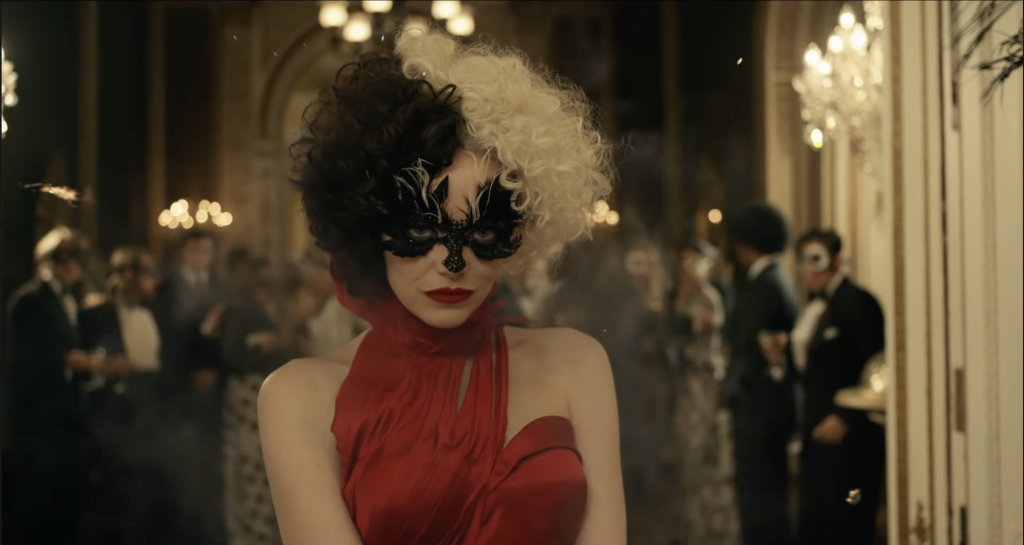
Here's what I posted for the Looking Closer Specialists right after I saw Cruella for the first time:
I'm fond of asking, after a movie finishing paying lip service to various virtues, what the movie really and truly loves. Does it moralize about the evils and violence of war, but then invest most of its time and energy in dazzling us with sensationalized war violence in ways that thrill and dazzle us? Or does it have a meaningful integrity, aligning what it tells and what it is?
Regarding Cruella, I'll say three things:
First of all... the performances and style here seem inspired as much by Batman Returns as by The Devil Wears Prada, and I enjoy those aspects of this film very much. It hits a difficult bull's eye: a Classic Tim Burton balance of dark, twisted, campy, and earnest.
So I don't regret sitting through it as I thought I would. How many times have makeup and costumes ended up framing unremarkable performances in films like this? How many times have I seen films try to do that Michelle-Pfeiffer-as-Catwoman thing and fail miserably, exalting her iconic performance further by comparison? Here we get some deliciously and memorably idiosyncratic turns from just about everyone involved. Stone and Thompson are not just phoning it in; they're reveling in this opportunity, making something savory or sweet out of every single scene and they're backed up by a surprising and impressive supporting cast. (Shout-outs to Joel Fry, Paul Walter Hauser, and John McRea who elevate their roles with wonderful performances as Jasper, Horace, and the Bowie-inspired glam-tailor Artie.)
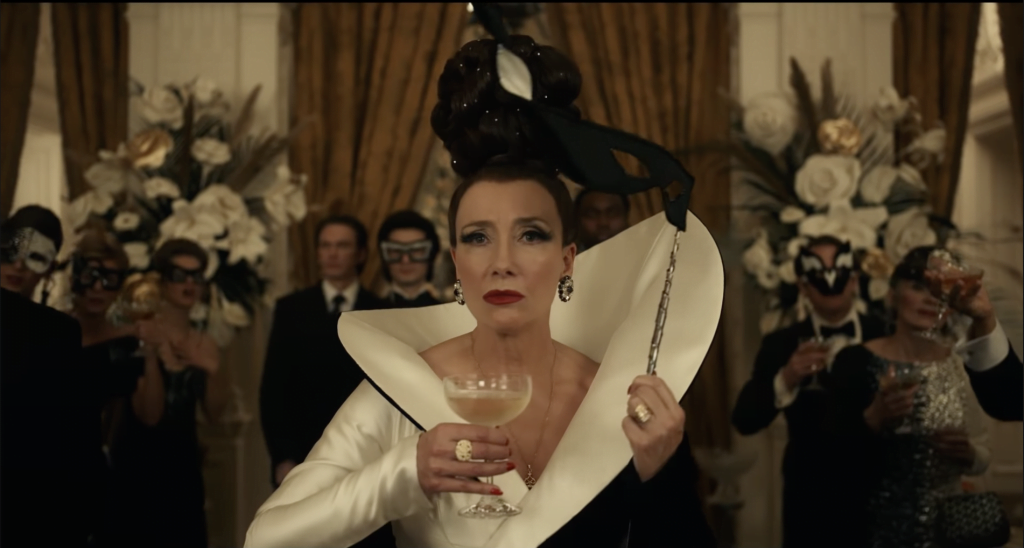
Secondly... I understand the grievances others are voicing about how this character really cannot be the Cruella of One Hundred and One Dalmatians — this story does not provide a reasonable origin story for that character at all. And even if it did, we don't need to cultivate sympathy for every devil, or we run the risk of minimizing the consequences of a villain's cruelty.
But this film feels so far removed from the world of the animated classic that it just doesn't feel like a Disney film at all. And anyway, if you stay for the end credits, you'll get a bonus scene that, in my opinion, might provide an out... a possible excusal of this film from that responsibility. I could be wrong, but I think it suggests that maybe this movie's Cruella really isn't that Cruella... but that this person might have inspired a storyteller to base a character on some of her aspects and exploits.

Wrath of Man and The Last Duel
Both were very well acted and very well made.
Both were gripping from beginning to end —
one in a conventional Die Hard kind of way,
and one with its lavish historical-epic imagery
and its Rashomon-style clash of narratives.
And I am uncomfortable with what felt like excesses of violence,
particularly when I think leaving some of those things to the imagination
would have been more effective and more ethical.
 I reviewed Wrath of Man here.
I reviewed Wrath of Man here.
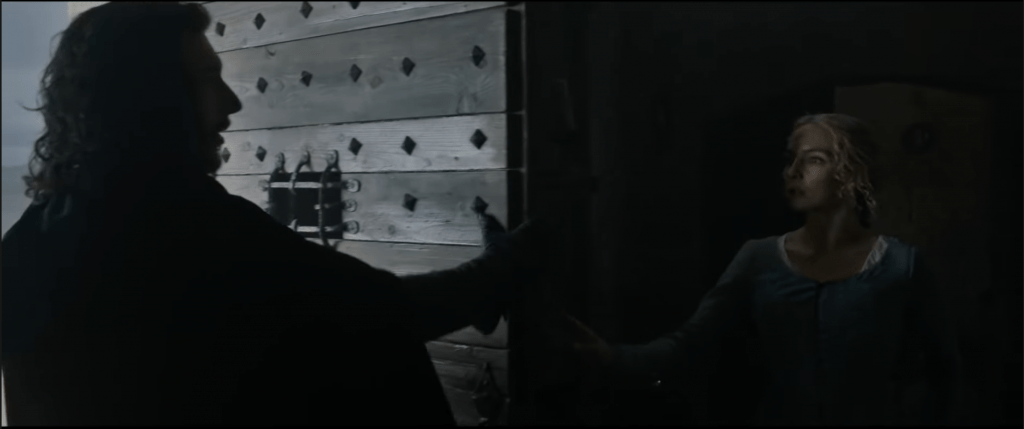
I did not review The Last Duel here, so here are the first impressions I posted at Letterboxd:
Here's my review in four Halloween costumes:
Me, in the full armor of a knight, helmet under my arm, sword in hand, sporting my worst Matt Damon mullet, and shouting indignantly:
This movie is a powerful and affecting depiction of how even the most privileged of women in medieval times was stuck between the Rock of violent and abusive misogynists and the Hard Place of gender roles that undercut her at every turn! It may have rough patches, but I swear to you, I will defend its honor! This is the kind of movie we need in a time when the Powers That Be refuse to believe women. I demand that you all feel Marguerite's pain! Fight me!
Me, in a dark cloak that billows across the screen like oil into the ocean, my hair dark and long like Adam Driver's, speaking emphatically but with restraint:
Jodie Comer is the reason to see this movie. She deserves better than to be matched with ... this version of Matt Damon, whose scarring makeup is doing most of the acting for him. She is devastatingly good. I am consumed by my love for her performance.
Me, in the brightly colored and spotless threads of a Count, smirking beneath a bad Ben Affleck blonde crop cut:
Come on. Matt Damon as Jean de Carrouge?! Are we really going to accept that accent? Or should I say... those accents? And we're supposed to believe he's French? More like... Jean de Carridiculous, amirite?
Also... what am I doing in this movie? Isn't it distracting that I took a little time between Big Tabloid Romances to star as a wealthy playboy? Hilarious!
I apologize in advance for this one:
Me, with my hair spectacularly coiled and braided, wearing a dress so low-cut that some will call me a harlot, my voice trembling as if I'm on the verge of sobs:
Honor requires that I speak before the court! I am telling you the truth! This movie makes mistakes, it is true! And yes, it is heavy-handed and seems to announce its own relevance! Still, while it pains me to say it, I must declare that it is Truthful and Meaningful! It is not great Ridley Scott, but it is good Ridley Scott! And I will stand by it even if other critics subject me to a flogging!
...
[On a far more serious note: I was not prepared for the excruciating rape scenes — yes, scenes, plural — in this film. I feel deeply conflicted about whether those scenes, staged so fiercely, were necessary. I have a hard time remembering when I last felt so violently ill in a movie theater. Let that be a caution.]
Shiva Baby and The Humans
Both draw us into cringe-inducing family dramas full of grudges,
lies, betrayals, rants, breakdowns, and angst.
Both feature outstanding ensembles of character actors.
Both feature screenplays that are relentlessly clever and hilarious.
And both seem so preoccupied with the ugliness of humankind
that I staggered out starving for a reminder that people are beautiful too.
Don't get me wrong — the focus on flaws and failures
is purposeful in both films. But I doubt I'll revisit either one anytime soon.

Here are the first impressions I posted at Letterboxd when I saw Shiva Baby:
Is it... instructive? I suppose, if you need a movie to show you that it's unwise to sell your body for some extra cash, have multiple sexual partners without them knowing, or lie to your family and friends about your education or your job.
It is cathartic? If you've ever lived in a community of religious hypocrites in which everyone expects everyone else to maintain some level of respect and ritual fervor while nobody really holds themselves to any kind of meaningful standard, perhaps you'll find some release in laughing at the exaggeration of it all.
But I couldn't stop thinking about how much more I would enjoy revisiting my favorite Social Anxiety at a Big Family Gathering movie: Jonathan Demme's wonderful Rachel Getting Married. Danielle's desperation and claustrophobia as her foolishness begins dismantling her from the inside out during a very crowded formal event is certainly discomforting, and, for me, only occasionally funny — but it leaves us wondering whether it's ever going to offer anything but discomfort. And its last-minute glimmer of something like hope is pretty feeble. So often, comedies like this have only enough imagination and ambition to grant their characters some kind of fleeting happiness in the end, and I'm always left asking, "Would it be too much to hope for a little wisdom? A little goodness?"

Daniel Deferrari, Dianne Agron, and Polly Draper are my MVPs here. As Danielle's sex-for-cash crush Max, the quick-thinking Deferrari is so perfectly arrogant, unprincipled, and stupid that he'll have everyone eager to punch him in the face within the opening minutes. Agron turns Max's quick-thinking wife Kim — a.k.a. "Entrepreneur Barbie" — into something far more complicated than just an intolerably pretty face. And Draper is unnervingly good at playing a certain kind of Mother Who Is Always Right But Who is Also Capable of Switching Gears — from judge-y to supportive, from exasperated to empathetic — at a moment's notice.
For me, a little Fred Malamed goes a long way. He's so good at what he does — but he does so much of it here as Danielle's gregarious father Joel. I'm glad I watched this on my laptop so I could take breaks whenever Joel turns up what he probably calls "The Charm."
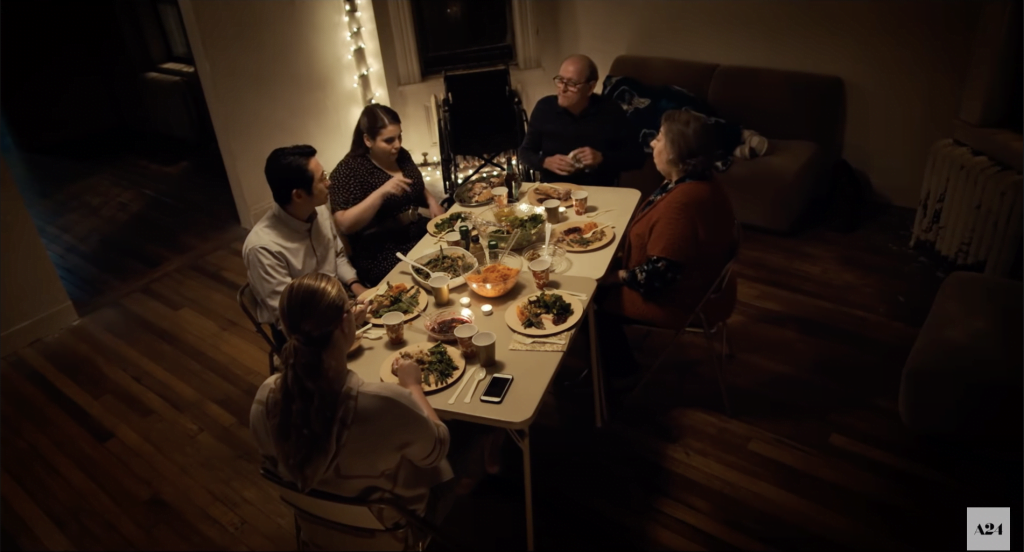
And here's what I posted at Letterboxd when I saw The Humans:
"Don't you think it should cost less to be alive?"
...
"So... this is what lies beneath."
...
Great to see the feather that twitched in an extreme close-up at the beginning of Three Colors: Blue make another appearance 29 years later... and in a horror movie!
...
"Because everything anyone's got, no matter who you are, everything you have goes."
....
This movie is what you'd get if Barton Fink's peeling hotel-room wallpaper wrote a screenplay.
Together Together and CODA
Both of these films are about intimate family relationships that are fractured
by unusual obstacles and challenges. Both of them are about dreamers who
suffer substantial setbacks. Both are funny, both are likely to make you cry
(for good reasons). I enjoyed both very much, even though neither one
felt particularly cinematic. And both were just a bit too skewed
toward entertaining me and not brave enough to challenge me...
in territory that I think should be more challenging for its audience.
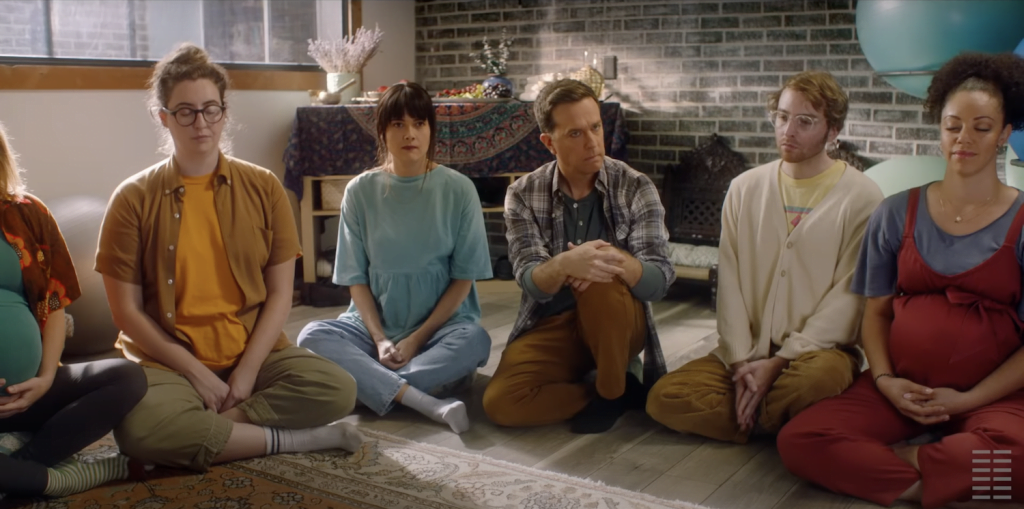
I reviewed Together Together here back in May.
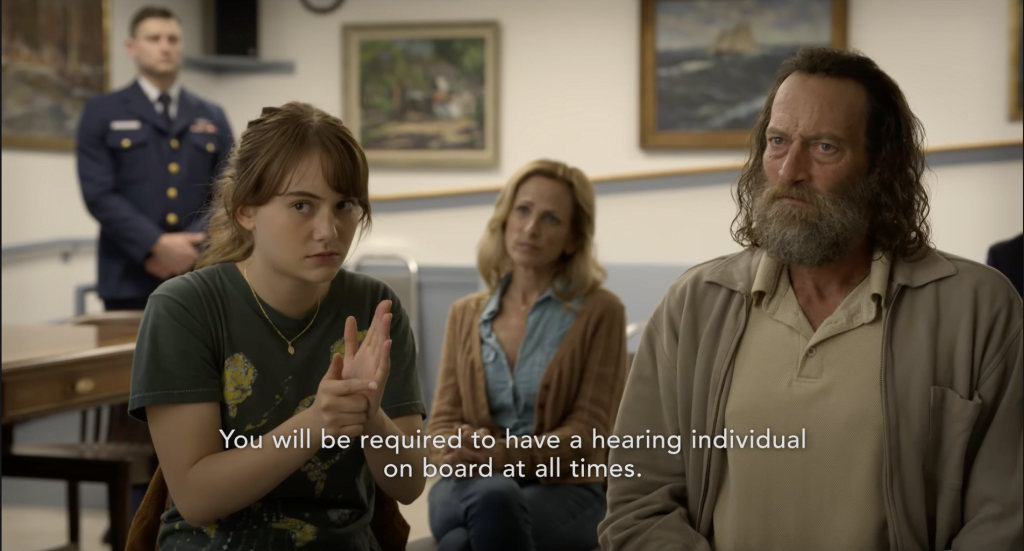
Here's what I wrote at Letterboxd after I saw CODA:
You've got to appreciate its big heart and its detailed portrait of a deaf family devoted to their multi-generational work of Massachusetts fishing. It'll be tough for audiences to resist the character of Ruby (Emilia Jones), a kind but frustrated "coda" (child of a deaf adult) whose singing voice is her ticket to a life beyond the uniquely challenging sphere of deaf culture.
I won't minimize the importance of what writer and director Sian Heder aims to do here, inviting and challenging mainstream audiences to consider, respect, and find greater empathy for our deaf neighbors. This film finds some affecting ways to honor those among us who need a particular courage, a particular patience, and particular disciplines in order to "get by" (a phrase that gets a lot of screen time in the film) in a society designed without much consideration for them at all.
And — as I explain in my book Through a Screen Darkly — I have a very specific connection with films about those who are called to the work of translation. So, despite my intent to bring critical tools to the work of highlighting the film's strengths and weaknesses, I can't deny that I'm a sucker for a movie like this: the broad-stroke drama of a young person struggling to connect a people of one language to a people of another without losing herself in the process just grabs me by the heart and won't let go. It may have all of the storytelling sophistication of what we used to call "an after-school special" or a by-the-numbers YA novel, but this choked me up several times. I lost my voice over characters who do not raise theirs.
Marlee Matlin will be the most familiar face here for most moviegoers, but the most human and affecting performances here come from those who bring a little nuance and subtlety to scenes where such three-dimensionality is absent from the script — particularly Emilia Jones as Ruby and Troy Katsur as her father Frank. For the most part, though, the emotions are big and bold, the narrative beats far too familiar to feel true, and the drawn-out climax takes us up out of any connection to authenticity into the stuff of conventional crowdpleasers.
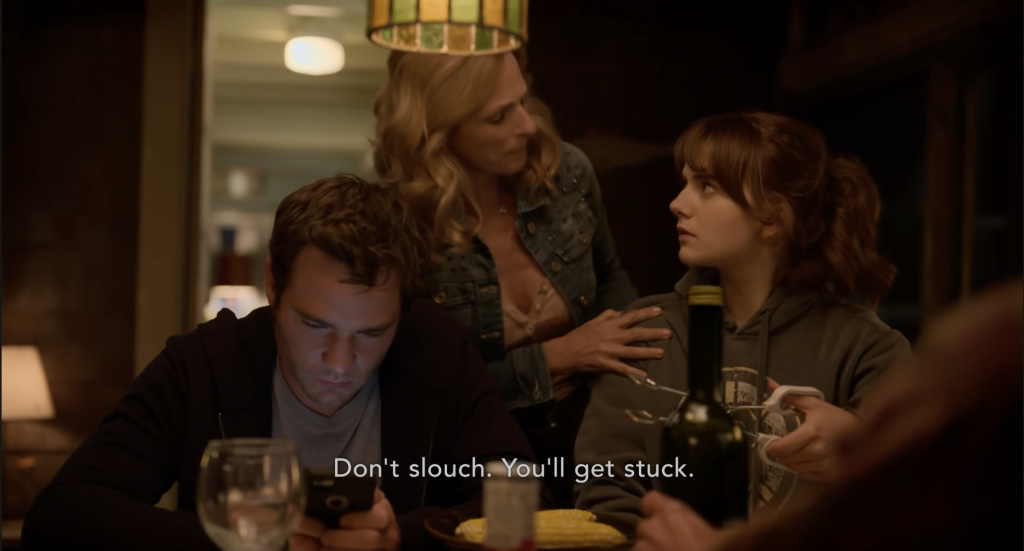
I couldn't help but think back to Wild Rose, another recent film about a young and talented singer whose life has steered her away from any kind of "big break." That was a film that follows a similar arc — tremendous talent, a world of obstacles and personal weaknesses, a few unlikely helpers who provide the necessary encouragement and resources, a few troubling moments in the spotlight, a climax carefully calibrated to make us cry and cheer. But it felt so much more true-to-life, and while Jones has a lovely voice, Jessie Buckley rocked the house every time she stepped to a microphone, so much so that the theatrical experience was well worth it.
What's more, while Wild Rose wasn't exactly a work of visual poetry, at least it seemed to have been imagined for a big screen, with great care given to the look and sound of it. Outside of its depiction of an authentic fishing community in Gloucester, there's not any visual imagination at work here.
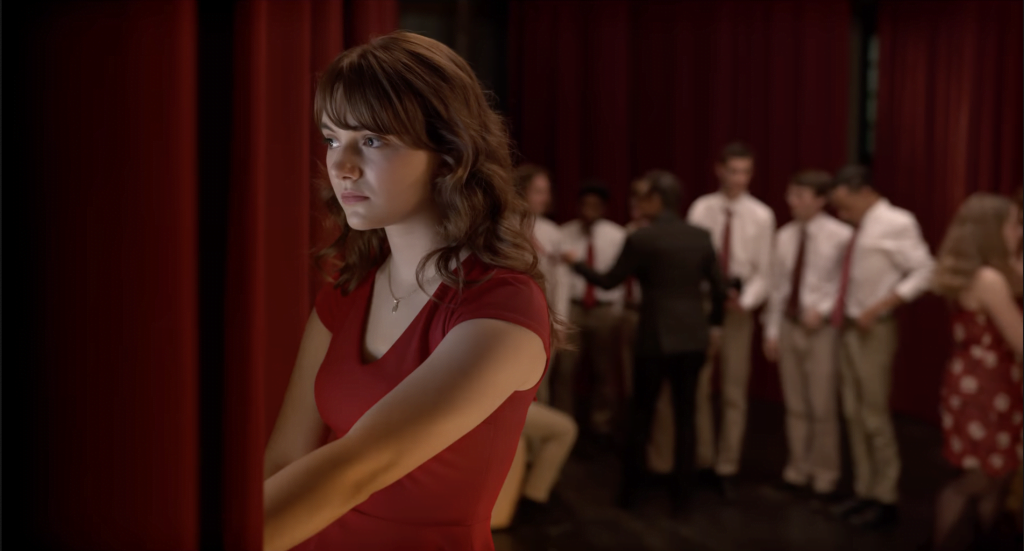
So, if you're in the mood for easy and unchallenging entertainment, you'll find some lovely moments here. It's easy to see why this was a Sundance hit (even if it's hard to imagine why it sold for a record-setting $25 million). Perhaps it will become a meaningful provocation to care for those who found Sound of Metal too abrasive and challenging.
The list will continue very soon!
Come back for the Honorable Mentions and my Favorite Films of 2021!
Favorite Recordings of 2021: Part Three (#15–#1)
If you're wondering why it's been a whole month since I last posted... well, it was that kind of month. I completed a file more than 450 pages long to fulfill an obligation at work. While doing that, I read and graded essays and stories written by about 60 students every week, working 12- to 16-hour days.
That workload continues.
But I am taking some "self-care" time at Looking Closer — because writing for you about the music that fed my heart and fueled my mind in 2021 is a joy.
For those of you who have made the journey so far — congratulations! You are arriving at the summit of my 2021 Music Mountain. These are my fifteen favorite albums of 2021. (And while I say that with great enthusiasm, I am filled with doubts. Couldn't any one of the albums I posted at #26–#16 stand up well next to any of these? I'm sure they could. On any given day, my list might look a little different. Ask me tomorrow and I might tell you how I should revise this list.)
For those of you just joining us, I'd recommend starting with Part One... and Part Two. I think you'll make substantial discoveries all over this big list.
I'm so glad I'm finally able to share these picks and these notes. I've been talking about these selections for weeks with the Looking Closer Specialists — a community of readers who have supported this website with donations — in our top-secret online clubhouse. (If you'd like to join that ongoing conversation in 2022, read all about how to join us here.)
Here we go! Enjoy this fantastic listening party.
15.
tUnE-yArDs — sketchy
Like the voices of so many visionary singer/songwriters, the vocal stylings of Merrill Garbus can be a polarizing factor. At first, I was not particularly fond of her voice, but over the course of several albums I've come to hear the passion, the nuance, and the way it makes spectacular harmonies possible.
Even better than that, the whizz-bang production fireworks of her collaborations with her tUnE-yArDs creative partner Nate Brenner are always worth checking out (with Nikki Nack being my favorite so far). And this may be her biggest, best fireworks show yet. Sketchy sounds amazing on a good sound system, with irresistible hooks layers so inventively that it's easy to feel like you might be in danger of some kind of pop-genius overdose when you listen.
If you're paying attention to the lyrics, you'll find that Garbus and Brenner have their fingers on the zeitgeist pulse, and so they're singing a lot about overcoming fear, about reckoning with the contrary values of our parents and grandparents, and about demanding justice. The harmonies are sometimes dizzying, and the beats are thrilling. I challenge you to turn this up in the car and then try to sit still. While the wisdom is delivered with a sledgehammer rather than subtlety, the sounds are a sonic circus that I keep coming back to the way I keep coming back to caffeine.
If some of the video footage below reminds you of 1980s-era Peter Gabriel innovations — isn't that a bonus?
https://youtu.be/2hcG6UgTHiU
https://youtu.be/H4I9_9L1G5Q
https://youtu.be/8Xd097nWH2s
14.
Torres — Thirstier
Since Torres' breakout album Sprinter — one of my favorite albums of 2015 (wow... seven years ago?!) — I've been respectfully watching her meander and explore some unexpected, interesting, and obviously very personal tangents with her music. I didn't always understand or resonate with what I was hearing. But I stifled my impulse to complain, because there's nothing worse than a fan thinking they know better than the artist about what they do best. (I don't.)
But I've gotta be honest: This is a Torres record that fulfills the kind of promise I heard on Sprinter. It feels like the giant leap forward I've believed she would make. It's easily my favorite of her career so far, and it makes me eager to see her play live.
I may be wrong, but I think there's a sense of inspiration, exhilaration, and supreme confidence in these songs I haven't heard from her before. The hooks are sharp, the performances are fierce. And the lyrics demand and reward attention: they're the kinds of lines that make me want to sing along in the car, pounding my palms on the steering wheel. For all of her genre free-styling, Mackenzie Scott's a rock star first and foremost, and she embraces that role with ambition and authority here.
https://youtu.be/e3pMavbbXUQ
https://youtu.be/HfoeNuW9NVI
https://youtu.be/OuXU2FsMZZM
https://youtu.be/hVKQDB1gGeQ
13.
St. Vincent — Daddy's Home
This one grew on me. It's complicated, and, like so much of Annie Clark's body of work, requires a listener's full attention. I may be underestimating it still.
What a rollercoaster ride — this St. Vincent career evolution. She was the most promising 20-something graduate of the Sufjan Stevens School of Eccentric Up-and-Comers, and with the albums Marry Me, Actor, and Strange Mercy catapulted her way from a lyricist of intimate lyrics with orchestral, Disney-like flourishes to a power-pop provocateur to a Bowie-level sound wizard, blurring borderlines of musical genres and her own identity. Then she went hard into fantastical electronics and dance music on the self-titled album (on which she appeared like some elf-cyborg queen seated on a throne) and went even further into frenetic fringe sounds on Masseduction. Now, Daddy's Home mixes things up.
The opener, "Pay Your Way in Pain" has the hooks and shine of a single from Actor, but it also has sneaky layers of gospel backing vocals and twitchy effects. In it, a character hits rock bottom, out of money, short on pride, fed up with the compromises required for survival. She wants a fresh start and another chance at real love, but the vocal-fry cry of anguish at the end suggests that may not be possible. It's followed by "Down and Out Downtown": the testimony of someone feeling miserable on the street the morning after bad decisions. (Clark says this is her favorite track on the record.) "Daddy's Home," the title track, has the swagger of a reassertion of willpower and confidence, but it's based on Clark's visit to her father in prison, reckoning with the sense that they have more in common than their social status would suggest. These three combine to suggest a theme of bondage to our worst impulses and the seeming impossibility of succeeding with a clean record.
But the album has yet to reach its peak of inspiration.
The next track, "Life in the Dream," slips into psychedelic dream that seems to be scored by Pink Floyd. I love what Clark says about this one at Apple Music:
I was having a conversation with Jack [Antonoff] and he was telling me about a conversation he had with Bruce Springsteen. Bruce was just, I think anecdotally, talking about the game of fame and talking about the fact that we lose a lot of people to it. They can kind of float off into the atmosphere, and the secret is, you can’t let the dream take over you. The dream has to live inside of you. And I thought that was wonderful, so I wrote this song as if you’re waking up from a dream and you almost have these sirens talking to you. In life, there’s still useful delusions. And then there’s delusions that—if left unchecked—lead to kind of a misuse of power.
The pinnacle of the album's inspiration and energy come on "The Melting of the Sun," in which Clark makes a move that recalls Beyonce's Lemonade, finding her place in a tradition of female artists who have had paid heavy costs on their hard climbs to respect and success. She sings about Joan Didion ("Jane" in the lyrics), Joni Mitchell, Marilyn Monroe, Tori Amos, and Nina Simone. And the chorus of Gospel singers backing her up bless the sound with soul and sorrow.
The fun isn't over: She gets her Prince-ly funk on with "Down," one of the most irresistibly nasty little beats of her career that I suspect will be a concert highlight. And there are still several more strong tracks to come.
Yeah, I'm going to say this is one of her very best.
https://youtu.be/jaJ_UtBlvaY
https://youtu.be/6oji2hmpzvM
https://youtu.be/VQ9iAlm-sJ8
https://youtu.be/ZUTu65AXrJw
12.
Lucy Dacus — Home Video
"Heavy memories weighing on my brain," sings Lucy Dacus in "Hot and Heavy." "Couldn't look away even if I wanted."
Apparently not. Home Video is a journal of "heavy memories," a saga of adolescence, first "hot and heavy" kissing, Vacation Bible School indoctrination, sexual awakenings of the kind that makes life almost impossible in evangelical Christian communities, sufferings alongside friends with abusive fathers, and more. Each song is a narrative poem, a flash fiction of startling intimacy and unforgettable lines. The sound is not surprising — the sort of polished and gauze-y keyboards and fuzzy guitars we've come to expect from all three members of the band boygenius.
If anything here is surprising, it's that Dacus was content to keep these songs so compact. Historian had epic anthems that promised bigger things to come. But Home Video is less like home videos and more like an album of Polaroids, blurry images that occasionally come in focus so sharp they're discomforting — as when she gets to the refrain about being moral support for a friend in the presence of her father and that refrain turns out to be "I would kill him / if you let me." That is to say, while this may not big the grandiose masterpiece some of us thought was coming, it's in some ways more engaging for how sharply the burrs of these sneaky songs catch on your coat and stick with you for a long time to come.
This serves as a fascinating complement to the new Pedro the Lion album, which gives us David Bazan's version of the same thing, as if these two teenagers might suddenly meet in a crossover episode someday.
https://youtu.be/e5YlfCvPtfE
https://youtu.be/vGaVVOyiVag
https://youtu.be/u8JqjG8A90g
11.
Amythyst Kiah — Wary + Strange
I remember how, in high school, when I started listening to The Cure, I expressed some doubts about whether it was healthy for me to listen to songs that were that dark. A friend of mine responded by suggesting that it's better to "let out" thoughts and feelings like that than hold them in, because the thoughts and feelings are real, and common, and they're more destructive if they're bottled up. Better to get them out in the open where we can admit them, face them, and move through them.
Amythyst Kiah's Wary + Strange is an album in which the artist had told the truth of some of her lowest points, most painful hardships, most desperate states. And yet, the effect of listening is to feel connected, to feel confided in, and ultimately to feel inspired that she is taking those experiences and making something beautiful out of them. It's a survivor's testimony, one that will comfort others who are still struggling to survive.
Wary + Strange doesn't sound anything like the solo records of her bandmates from Our Native Daughters. It's produced in a way that reminds me of lush, layered records by Peter Gabriel (sometimes) and Lenny Kravitz (other times). It's a great headphones album, a great in-the-car album. It's one of the most vividly colored albums I've heard in a long time.
https://youtu.be/mqtPxwOW3HU
https://youtu.be/yXRSyyDwGLA
https://youtu.be/GojKFT0_fOY
10.
Joy Oladokun — in defense of my own happiness
It's no surprise to learn that Joy Oladokun's songs have frequently been featured during prime time TV dramas. There is a kind of pop polish to the production of this tidal wave of new tunes that makes me wish they'd worked with producers who are less fond of formulas. Nevertheless, in defense of my own happiness makes up for that familiar, glossy sound it with irresistible melodies and affecting lyrics that have a gospel of reconciliation and healing at their heart. This album is so full of love, and it just goes on and on and on. (There's a standard album version that was released in 2020, and then a double-album version this year that's stronger.)
Like so many of my favorite albums of 2021 — it's a strangely specific trend this year — this album is a musical memoir by a black woman, and (like several of them) one whose sexuality has made relationships and acceptance even more complicated and punishing. (No Depression sums it up succinctly: Oladokun is "a queer Black woman born to Nigerian parents and raised in an Arizona farming town.")
Explicitly in these songs, Oladokun is longing for a home in Christian community where they can worship and rejoice without suffering rejection and judgement. To listen is to grieve with them over yet another testimony of a church that cannot understand — much less demonstrate — the scandalous grace of Jesus. But to listen is also to hope: The Holy Spirit is alive and well in the music of Joy Oladokun, and Christ has no problem doing redemptive work beyond the narrow borderlines drawn by his fearful followers. Listen and rejoice with this child of God.
https://youtu.be/sHbl6zhO3wo
https://youtu.be/jYhE7HNvA8E
https://youtu.be/RfUuvoe_iqw
9.
Elori Saxl — The Blue of Distance
I have no previous experience with Elori Saxl's music, but as I swam in oceans of ambient, instrumental music during the long, long hours of reading and grading papers in 2021, I noticed when something emerged from the sameness of it all, became an occasion of discovery and distinctive play, and captured my imagination.
The Blue of Distance was one of two such albums for how vividly it painted moving pictures of water and light. I'm not surprised to learn that this Brooklyn indie artist's music has become a popular accompaniment to short films and commercials, as there is something cinematic and spacious and propulsive about it. It really takes you somewhere, and you come back as if you have been on a trek into the mountains or out on some promontory to see a sunset and stars.
I think my childhood discovery of Ferde Grofe's "The Grand Canyon Suite" instilled in me a fascination with music as environment. And this — an album great for headphones and for big-room sound systems, is truly transporting stuff.
The AllMusic review by Marcy Donelson offers this crucial context:
Written partly in the verdant Adirondack Mountains during the summer and partly on an island in the middle of a frozen Lake Superior, it was inspired by contrasts in both nature and mood. Using flowing water as an early sample source, she employs manipulated recordings of water and wind, a seven-instrument chamber orchestra, and analog synthesizers as her palette, and all intentionally imitate each other here.
More at this link, where you'll learn what the title means and its connection to the writing of Rebecca Solnit.
https://youtu.be/kZD0ewwMx58
https://youtu.be/POqmegzHK8M
8.
Floating Points, Pharoah Sanders, & the London Symphony Orchestra — Promises
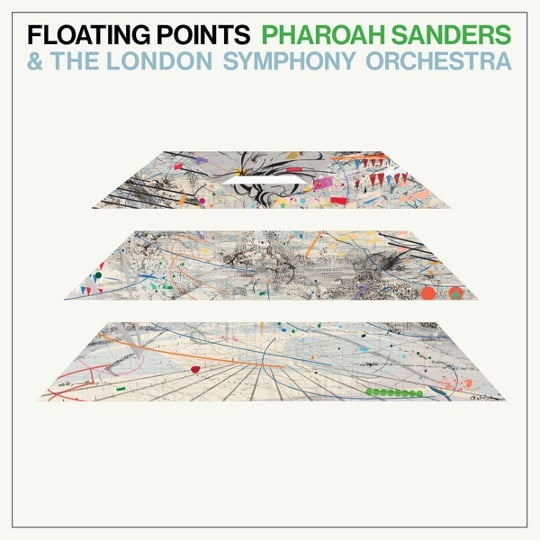 Like watching lights move across the walls of my bedroom in the early morning, reflections off of the windows of passing traffic...
Like watching lights move across the walls of my bedroom in the early morning, reflections off of the windows of passing traffic...
Or, like watching white clouds of the pre-dawn darkness slowly pass as first light goldens the horizon over the city during my commute...
This music has been good company on days when I couldn't get to the water's edge.
I'm not familiar with electronic music producer Sam Shepard (a.k.a. Floating Points), but this record sure makes me curious. This album is a meditative composition of sustained tones (orchestral strings), punctuated by sudden flourishes — splashes of Shepard's keys — while Pharoah Sanders' tenor sax explores the spaces in a spirit of curiosity and questioning. The combination is as unlikely as it is entrancing, gentle and hypnotic until "Movement 6" when the strings suddenly swell into dramatic, emotional tangents that remind me of certain romantic heights from John Williams' soundtracks of the '80s.
I really, really love this.
https://youtu.be/FvlyttLEQlk
https://youtu.be/FQdLWlvgHOg
7.
Bonnie "Prince" Billy and Matt Sweeney — Superwolves
Will Oldham (Bonnie "Prince" Billy) and Matt Sweeney follow up their 2005 collaboration Superwolf with another book of songs that play like excerpts from horror movies (more the A24 kind than the Hammer sort). The scariness is downright perverse for the effortless grace of the guitars and the soothing, gentle harmonies. Fred Thomas captures the strengths of this album concisely and clearly in his AllMusic.com review. He says, "Oldham's albums always temper organic beauty with elements of depravity and bleak humor, and Sweeney's gifts for arranging his variety of excellent guitar tones and performances bring the sublime and sacred side of Oldham's songwriting to the forefront."
The opening track, "Make Worry for Me," sounds a bit like the kind of creepy stalker song that The Cure or The Police might have composed in the '80s. It begins in a half-whisper like this:
When I come to your streets
Make worry for me...
I got things in my pockets
I got tricks up my sleeve
Your world will never be the same
Oh, you can be whatever you wanna be
But you won't be bad as me
You'll be screaming my name
Cheery, right? Sounds like a song for a Halloween party, right? But it's soft, slow, and, well, creepy at first before it crescendoes in a way that suggests the monsters have caught up to you and sunk in their claws.
This menacing prologue is not just kidding around: The rest of the album digs into a variety of present-day anxieties by giving voices to characters from the wrong side of the great national divide. In "Good to My Girls" I hear the testimony of a single father who seems loving until you start hearing the violence and arrogance in his sentiments towards neighbors and family. As the song goes on, we realize that this is a man consumed by fear and despair who is trying to defend himself from a family that is furious with him. (Strangely, Pitchfork's critic Marty Sartini Garner hears the song as being the voice of a madame thinking about the prostitutes in her employ. I don't get that at all.) "My Popsicle" sews the title into a term of endearment for a young child, but juxtaposes that sweetness with declarations of doom and dark memories. There is a loneliness and a rage simmering in a lot of these songs, rage of the "toxic masculinity" variety.
And those are only a few of the 14 songs on this remarkable record! The despair, heartbreak, vanity, and anger with God in these characters has only just begun. In the ironically peppy folk romp "Hall of Death," Billy remarks, "It is clear, no love is waiting near."
Some will find this record too dark for days like these. I find it fascinating and thought-provoking. Sometimes, a song of despair can liberate us from similar dark feelings by showing us their narrowness and limitations, even as they assure us that we are not alone in our troubles.
https://youtu.be/weF8pfFnCK8
https://youtu.be/lGPW74xYhhQ
https://youtu.be/lb7pLbKdb_E
6.
Nick Cave and Warren Ellis — Carnage
For a long time, this was my favorite record of the year — the triumphant return of the furious Nick Cave, the one caught up in fever dreams of memory, murder ballads, and horror stories. That last several albums have seemed to me to be a long and arduous journey through the process of grieving the death of his son. I might be mis-reading this, but here it seems to me that Cave seems to be slowly broadening the scope of his storytelling, turning his attention back to a world that is simmering with out-in-the-open hatreds.
And yet, in spite of the often-jarring darkness in these lyrics (there are lines that will send the censors scrambling for their "WARNING: EXPLICIT" stickers), he's also carrying forward that Gospel vision, so that there's always a palpable sense of hope for a new heaven and a new earth. I hear in this record some of the inspiration and energy that made his double album The Lyre of Orpheus / Abattoir Blues my favorite release of his long career.
And it's amazing that he did this during lockdown in collaboration with Warren Ellis instead of with the Bad Seeds — the sounds here are starker, more unpredictable, as often abrasive as they are glorious. And the images are unmistakably and inimitably his own, so that listening is like walking through maze-like art gallery where horrific shocks and enchanting beauty might wait around any corner.
No lines sung all year startled me like those in the title track, which include these images:
I always seem to be saying goodbye
And rolling through the mountains
Like a train...
My uncle’s at the chopping block
Turning chickens into fountains
I’m a barefoot child
Watching in the rain...
I’m sitting on the balcony
Reading Flannery O’Connor
With a pencil and a plan
This song is like a rain cloud
That keeps circling overhead...
A reindeer frozen in the headlights
Steps back into the woods...
Look over there! Look over there!
The sun, a barefoot child with fire in his hair
Nobody can do what Nick Cave is doing at this point in his career, and nobody should try.
I can't wait to see him and Warren Ellis make a live show out of this in two weeks at Seattle's Paramount.
https://youtu.be/JXk2DEIwhFw
https://youtu.be/hLyZH3u2TRI
https://youtu.be/wi1s_C563Hg
5.
Little Simz — I Might Be Introvert
The biggest discovery for me at the end of the year was an album that others had been talking about for months. When I finally listened to it all the way through, I was bowled over by, well... everything: the production, which is probably 2021's most spectacular sound design accomplishment, a genuinely Bjork-level soundscape; Little Simz' performances, which are varied in style but always nuanced and compelling; the lyrics, which cover a range of personal revelations to cultural commentary to Gospel-laced reflections that I previously only associated with work by Kendrick Lamar and with Beyonce's Lemonade. Simz strikes a balance between lament, challenge, and joy that builds on the sounds of the SAULT records.
If I'd had more time with it, I might well have bumped it higher up this list. It's an exhilarating achievement, and I'm going to tune in to anything she does going forward. (Previously, I'd only known her voice from her appearances on SAULT records.) If I have any difficulty with it, I find that the self-help narration interludes go on too long and get a bit gimmicky.
But I don't think anything this year has a more spectacular opening number. Check it out.
https://youtu.be/hxfGQ2AJHGk
https://youtu.be/-aX3Wiy_Fg8
https://youtu.be/Uj_GKAEvuhM
4.
Rhiannon Giddens — They're Calling Me Home
On the long list of impressive — and impressively intimate — albums recording under lockdown, one of those that I will go on playing for the rest of my life is Rhiannon Giddens' soulful collaboration with her partner Francesco Turrisi. Their first full-album collaboration there is no Other was my favorite record of 2019, and this is a worthy follow-up.
Recorded in Ireland, the album lives up to its title with songs of longing for home, songs sung in a world where hope always leads us through the here-and-now to visions of Kingdom Come. The songs and sounds are timeless, and Giddens clarion-call vocals are as strong as ever.
https://youtu.be/3siE2xbVD34
https://youtu.be/esILLxHM92M
https://youtu.be/nhhC9sauZPI
3.
Elbow — Flying Dream 1
The British band Elbow may never mean as much to me as U2 or Radiohead — I don't know the names of all of the band members by heart, or know the story of how the band formed, or have important personal memories bonded with the band album by album over several decades.
But these days, I'd argue that Elbow, who celebrated the 20th anniversary of their debut album in 2021, is a more exciting band than both U2 and Radiohead in that they just keep making great music on a yearly basis, one outstanding album after another, with wide-ranging and deeply poetic lyrics, and a sound that keeps evolving.
They may not command an international audience like U2 or go so directly to the Gospel for the soul of their lyrics, but they're better than U2 in that they're not so focused on scoring hit singles that they've lost sight of their musical strengths.
They may not be musicians as innovative as Radiohead, but they're better than Radiohead in that they are willing to sing about much, much more than the darkness of the world, and their music is unapologetically and even enthusiastically about love and joy.
I love Elbow more with every album. This is the album I played the most in 2021, and I could have predicted that would be the case even before I heard it. They are the most reliable great band in the world.
And on this album, they take a break from the heavy rock songs — they're very, very good at those — and go deep into some of their other strengths: love songs and dream songs. There are several moments of beauty on this album that I would argue belong on an ideal Best-Of release. I would wish them greater and greater success, but I want to see them in a club again someday, because their visit to Seattle's Showbox a few years ago was one of the most glorious live shows I've ever experienced.
https://youtu.be/K55jaiWvAfQ
https://youtu.be/YjP1ncfAZZk
https://youtu.be/9sBJbGU805E
https://youtu.be/b5Wgwfcj0Sg
2.
Adia Victoria — A Southern Gothic
Just as he set the stage for the genius of Rhiannon Giddens' first solo album Tomorrow is My Turn, the legendary T Bone Burnett is at the controls here to help Adia Victoria achieve the Big Record that would fulfill the promise of her outstanding 2019 release: Silences. And Victoria delivers just as Giddens did. I admired a lot about Silences, but A Southern Gothic is an album that I will keep in heavy rotation for many years to come.
Both of the albums at the top of my favorites list this year are powerful, personal records from Nashville-based women who take their sufferings and their longings and turn them into art that is triumphant and transcendent.
Adia Victoria's record is like a book of short stories — or maybe even a novel, if you imagine the songs following the arc of one character. Either way, she's giving voice to the experiences of women who have been wronged and who are seeking resolution, revolution, and sometimes even revenge. Due to Victoria's active presence on social media, where she speaks plainly about the more troubling aspects of American music history (particularly in Nashville), she regularly suffers disrespect and abuse from the MAGA types who think her skin color disqualifies her. But these songs don't feel like lectures or rants — they're more like fierce dreams or searing cinema.
T Bone's reunion with Alison Krauss and Robert Plant may have gotten a lot more buzz in 2021, but this was the real masterpiece of his year as a producer. The sounds on this album are layered, lush, grunge-y, and sometimes downright sweltering. Jason Isbell, Margo Price, and The National's Matt Berninger show strong support in guest appearances. But they don't need to do any heavy lifting — Victoria is sensational in every aspect of her art here, and she seems very much in charge.
I'm regretting that I haven't seen her live yet. But this record is more than enough to help me understand the enthusiasm I was hearing from those who saw her perform at Over the Rhine's Nowhere Else festival a few years back. She's high on my list of live-show priorities now.
https://youtu.be/eQTZCejefd4
https://youtu.be/Yd1ZEdNIciU
https://youtu.be/Yd1ZEdNIciU
https://youtu.be/-pC_ILIzIyU
https://youtu.be/sVlQPpQ3xlY
1.
Allison Russell — Outside Child
The highlight of my concert-going year in 2021 was seeing Allison Russell, caught up in a passion that reminded me of Falconetti during the trial scenes in The Passion of Joan of Arc, singing a song cycle that narrates her extraordinary life story of suffering and surviving abuse at the hands of a cruel stepfather in Montreal; finding solace in the arms of a gentle lover who she calls "Persephone"; running away from home; discovering a healing music — and a calling — in the Vancouver BC music scene; opening her heart to a sisterhood of suffering all around her; and discovering joy and hope and true love along the way. It sounds like I'm describing a memoir — and I am, in fact, for the unexpected and thrilling success of Outside Child has brought Russell an opportunity to write that book and have it published soon. But this album is a strong as any life-story record I can think of. I won't be surprised if it inspires a film or a stage-play musical in time.
The array of instruments makes for a creative range of sounds throughout the record, none more affecting than Russell's own contributions on clarinet. Her agility shifting from English to French in her lyrics enhances a sense that she is reaching to express things that no human language can sufficiently express — above all, the mystery of the Grace that leads us to take terrible risks in order to escape our prisons and fulfill our callings.
I've enjoyed the music of Russell's collaboration with her husband JT Nero in the band Birds of Chicago. And it was a thrill to see him join her for the closing number of that live set. But this is clearly the right time for her to do a great and personal work that her life has prepared her to do. Outside Child feels inspired, epic, timeless.
It's been quite a year of solo endeavors for members of the band Our Native Daughters, but Russell's contribution is my favorite by far, and easily my favorite album of 2021.
https://youtu.be/_PonykGf2vg
https://youtu.be/mmwTPX1r7gw
https://youtu.be/RNJgwj8d9eo
https://youtu.be/-EHHbwzgvGg
Favorite Recordings of 2021: Part Two (#25–#16)
For those who love year-end lists like this, and those who also love the Insta... I bring you good tidings of great joy! Okay — maybe that's a bit hyperbolic. I bring you some unremarkable tidings that might interest you?
Looking Closer now has an Instagram account: @OverstreetReviews.
Follow me there for some spur-of-the-moment notes on new movies, music, and reviews worth reading.
And now, we return to our long-overdue musical journey through my favorite albums of 2021. Sit back, turn up the volume, and get ready to sample some songs and videos. It's time for Part Two.
(What's that? You missed Part One? You can catch up with it here.)
25.
Dry Cleaning – New Long Leg
It's tough to explain my love for this one. It'll divide audiences. If you want a proper introduction, read Jillian Mapes' revealing and spot-on review at Pitchfork. (I couldn't do better than the first two paragraphs of that review.) I love the guitars, which veer from R.E.M.'s Fables of the Reconstruction rock to mesmerizingly simple Wilco-style vibe to a whole lot of noisy Sonic Youth. Each song has an irresistible riff that could go on for ten minutes without wearing out its welcome.
But this is the Florence Shaw show, and speak-singing enchantress who will either bore you or mesmerize you with her own fascinating boredom, her amusement, her bemusement, her rambling monologues full of randomized quips and comments and curses. Her voice has the hushed intimacy of a British Suzanne Vega, a very dry gin laced with some PJ Harvey bitters. It feels like we're hearing her read a collection of lines she's overheard in coffee shops and pubs, or looking at collages made of scraps she's ripped from her memories. And as we try to make sense of them, you can feel her sitting back, lighting a cigarette, putting her boots on the table, and watching us puzzle over them.
In the song called "John Wick," she starts with the line "No, that’s not true." Are we joining a conversation already in progress? And then,
Eyes drift to the TV, mostly uncles and fathers
Mostly eating nuts, seeds and berries
What do you think your parents feel?
That nod that says, "I’ve seen things"
Your guess is as good as mine. But then, suddenly, she'll veer into an intriguing observation that resonates with importance, like this:
They’ve really changed the pace of The Antiques Roadshow
More antiques, more price reveals
Less background information
The reason the price reveals were so good was because we had to wait for them
And suddenly, you begin to suspect that there's more going on here than you thought. What does it have to do with John Wick? I can't wait to see you try to answer that.
https://youtu.be/6PuqlOTyJt0
https://youtu.be/QxapR-pekaI
24.
SAULT – NINE
My favorite music of 2020 came from Sault with their soundtrack to the global uprising of Black Lives Matter — a two-album knockout: Untitled (Black Is) and Untitled (Rise).
As if that wasn't enough, they proved that they're not going to let up the pressure by applying even more inspiration and brilliant. They followed up 2020 with a bonus record that's similarly agile in its shifting from one style to another. The regulars — Inflo, Cleo Sol, Kid Sister — brought in new sounds and voices, including one of 2021's M.V.P.s: Little Simz. (You'll be hearing more about her later in the list.)
The songs are sewn together with spoken-word testimonies, including eyewitness accounts of police violence, and laments for the thickness of the skin that Black people must develop in order to endure the relentless crimes against them. There's a dark, propulsive song about London Gangs, a sketch-comedy song about the ways in with Black Londoners face extra layers of stereotyping in the U.S., and they save the best for last: "The Light's In Your Hands" — a closer of such yearning and hope that I have a hard time getting through it without tears.
https://youtu.be/ghjt_8oOLa4
https://youtu.be/4d5xFv3Xvek
23.
Lowland Hum — AT HOME
The only band with two spots on my Top 35 is Lowland Hum, who have been making the most of the pandemic's first two years. While raising a newborn, Daniel and Lauren Goans produced two luminous, intimate, homemade albums. I mean... what have *you* done with your isolation time?
This one — simply titled At Home — is all new material that, while touched by the anxieties of the age, is overwhelmingly and earnestly hopeful. Lightly peppered with Beatles-y flourishes (especially in the interplay of a mischievous piano and woodwinds in "This Part" and "New Day"), it rewards repeated listens and close attention to the lyrics.
From the opening track's haunting, tech-addled loneliness ("Where Are You?), to the aggressive positivity of its time-capsule anthem "2082," to Daniel's intricately playful guitars and Lauren's shiny layered harmonies of "Try to Try," the album's first act is determinedly bright and poppy, as if they're both determined to burn off the fog of pandemic isolation and touch the blue sky. Things take a plaintive turn with Daniel's heavy-hearted prayers in "Not My Kind of World," a song that somehow sounds like Paul McCartney and early Pedro the Lion at the same time.
In "Take Me In," they dance a nimble, tricky duet, singing, "Through the night / I could barely hold onto the light / Blindly groping for gentle sign / That there'd be another day." Who among us hasn't had a night like that in the last few years? In the chorus, they find in each other the solace everyone needs: "Keep me close to you / All I need is love / Though I can be cool / I respond to love." As if to grant the wish, they then tumble into a summery romantic nostalgia trip, revisiting a time and place ablaze with romance: "Jenny Lake." We should all be so blessed as to have memories as warm as that one to recall as a refuge and a rejuvenation.
https://youtu.be/4ooodvz6DWc
https://youtu.be/lq9LQvE9Vuw
https://youtu.be/TLMGS5bnDyw
22.
The Staves — GOOD WOMAN
Giving the Justin Vernon production stylings and going for a more intimate, up-close-and-personal sound, The Staves sisters seem to be re-introducing themselves as a powerfully harmonious family band on a large-hearted mission for goodness. Perhaps that has to do with the fact that they lost their mother in the process of composing this set. The opening track, a meditation on what it might mean to be a "good woman" sets the stage with echoes of the voices of women in their family. In a Stereogum interview (quoted at Genius.com), Jessica said this:
With 'Good Woman' there’s a moment in the song where there’s lots of female voices in the background. They’re voices of our friends and family. There’s a recording of our mom’s voice in there, our grandma, and they’re all kind of laid up pretty far back in the mix. And the idea was to create the kind of inner chatter in your mind — and especially as a woman, all the worries that go around your head. You’re not worrying just about yourself, you’re worrying about so many other people that you care for in your life, that you feel responsible for. And when you add together a number of women’s worries, it all just becomes this noise. I thought of it as if you could put a lead coming out of your brain, that might be the sound, maybe, that you would hear.
Subsequent tracks focus on friendship ("Best Friend"), interventions for friends whose decisions are doing harm ("Careful, Kid"), vows to go on loving and honoring someone who's gone ("Sparks"), asserting oneself when commitment undercuts agency ("Devotion"), facing one's mistakes and low points and shaking it off ("Failure"), and — in perhaps the most pandemic-specific song — overcoming a sense of smallness and helplessness when the world seems out of control ("Trying").
Highlights include the earnest inspiration of "Nothing's Going to Happen," a pep-talk of a song about conviction and resilience, about steadfast striving, about finding the courage to engage even though the world outside seems to be burning at the hands of an arsonist enemy; "Paralyzed," a song about calling for help and summoning strength in the wake of abandonment and loneliness; and "Satisfied," a song that I think may be about that itch that artists know and wrestle with, the yearning and the burning to go on making, striving to speak the Truth even thought it's always too much to know or express.
https://youtu.be/CpRrP5ah2Fo
https://youtu.be/nU3fL2lsbm4
https://youtu.be/IWwKtEOlELY
21.
Dave Von Bieker — LONG FOR THIS WORLD
Full disclosure: Dave Von Bieker is a dear friend of mine. But a lot of musicians are friends of mine, and I do not give them an advantage when it comes to my reviews or my year-end lists.
I listened to this record out of respect for my friend the first time.
Then I marveled at the layered, vivid production.
Then I had to admit that Von Bieker has that thing that Bono talks about — that soul is rare in vocalists (especially male pop singers).
The melodies got their hooks into me.
And, above all, the lyrics gave expression to so much of my own experience: my longing for certain places, certain faces, certain occasions. Von Bieker sings about Santa Fe because he's been a part of the Glen Workshop, the annual arts retreat that I attended for 16 consecutive summers, and he is a part of the creative community there that has changed my life — changed our lives. But when he sings about places I haven't been — Coney Island, Vancouver's Gastown — the specificity of his references make the songs come alive with humanity and passion in ways that make me think of my own list of "places I can't live."
And in my longing for those occasions and places, I, like Von Bieker himself, have to admit that what I'm really longing for is transcendence, for communion with the Divine. This is a whole album of "Rainbow Connection" Gospel, that sense that the Kingdom of God is at hand if we can only train ourselves to see it.
The song "Alberta Hospital" may catch the attention of Over the Rhine fans: It has strong thematic overlap with their beloved anthems "All My Favorite People" and "Only God Can Save Us Now." (Perhaps that's because Von Bieker is a student of Linford Detweiler and Karin Bergquist.)
I am blessed to know a lot of extraordinarily talented musicians. They've made a lot of impressive records, and I am grateful for their music. This particular album — available here at Bandcamp — became very important to me this year, consoling and cathartic in a rare and personal way, and it will remain so for years to come.
https://youtu.be/noqxuHydaZg
https://youtu.be/b1MjfYSw-Ac
https://youtu.be/zd4BDEmXo7Q
20.
Lowland Hum — So Low
How do I rank this one fairly? It's an album that's already been around since the late '80s, and many of us know it by heart. It's basically an epic covers project.
But oh — what covers! Daniel and Lauren Goans astonished me with this exquisite re-imagining of Peter Gabriel's pop masterpiece — So — giving me even greater appreciation for one of my top 5 favorite records of all time, and finding new possibilities in the delicate melodies — through their playful and surprising harmonies, and through the agile, artful instrumentation.
On this version of So, different songs stand out for me: "That Voice Again" sounds as strong as anything else on the album, and "Red Rain," which usually sounds frightening and apocalyptic, is now eerily consoling. A surprisingly hushed take on"Big Time" seems all the more sinister for the subtlety.
And then there's "Sledgehammer," probably the most complicated and creative re-invention on the playlist. Listen to the original, and then give this one a try. (Then consider that it was Harry Styles who blew up Twitter with his cover of the same song in a performance that was nothing more than an imitation of the original.)
I interviewed Daniel and Lauren at Looking Closer about this project, and I've continued to draw strength and inspiration from this — perhaps the most surprising release of 2021 for me.
https://youtu.be/5OEBARHBffQ
https://youtu.be/p_jhUwv_zkY
https://youtu.be/l7i4wVxi234
19.
Jon Batiste — We Are
The title track of Jon Batiste's We Are is better than a blast of caffeine and sugar at getting me out of bed in the morning and launching me out into the world with a zeal to love my neighbors and do what I can to save the world with a smile on my face. Batiste has become such an essential part of The Late Show With Stephen Colbert, its childlike spirit, its fount of everlasting improvisational inspiration... its soul. (It makes sense. Didn't he win an Oscar for his contributions to Pixar's Soul?) But it's not just the marching bands and ecstatic inspiration of that opening song — it's the whole thing. Batiste sustains a sense of divine inspiration as he reflects on the voices that have shaped him and motivated him throughout his life.
Many music critics who know more than I do about the history of the traditions in which Batiste's roots run deep... they've been rejoicing over this record. I'll let them get specific:
Josh Hurst, in his best of 2021 list, says that, when he listens to We Are,
[I]t’s clear that Batiste is actually pretty close to the center of several musical universes, uniting a swathe of Black music idioms (jazz and blues, hip-hop and R&B) into something kinetic, colorful, and purposeful. Loosely structured as a bildungsroman, the album traces Batiste’s journey from youthful innocence to a place of wisdom and advocacy. He is a polymath in the vein of Prince, but where the Purple One trafficked in kink, Batiste’s whole vibe is basic decency. And who couldn’t use some of that?
Here's Jackson Sinnenberg at Jazz Times:
[We Are] remixes the last 400 years of Black American Music to dizzying and wondrous effect. 'Tell the Truth' crossfades the relentless punch of early-’70s Booker T. & the M.G.’s with honey-sweet string arranging that suggests the likes of Jimmy Jones. The horns drive the brightness into your brain until you come out smiling. On 'Show Me the Way' Batiste stretches his vocals to the heavenly heights of ’50s crooners like Little Anthony while seemingly taking cues from the Thundercat song of the same name, blending rumbling rhythms with the melty melodies of slow-jam R&B.
It's an "Editor Pick" at Spill Magazine:
We Are is a stellar album that connects a rich level of tradition and modernity together proving Batiste is as steeped in classic gospel, soul, jazz, and funk as he is the pop and hip-hop of the last two decades. Furthermore, We Are is ties together a level of simplicity with sublime technical genius, making it a record that should be admired equally for its musicianship and intricate songwriting as for its ability to seemingly fit in with the contemporary music of today. If We Are demonstrates anything, it is that Batiste is peerless in his creativity and delivery. Often nostalgic for other eras and artists, Batiste remains truly unique as he joins the class of Kendrick Lamar, Anderson. Paak, and Gary Clark Jr. only in the sense that We Are is a record unlike anything else in the last decade and could only have been written by Batiste.
At AllMusic, Matt Collar walks through each track with wide-eyed admiration:
Using the best of the past to build toward a better tomorrow is a stirring notion that pervades the album, both musically and thematically. He draws upon the vigorous grooves of New Orleans funk pioneers the Meters with 'Tell the Truth' and crafts a buoyant, psychedelic-soul vibe with the help of author Zadie Smith on 'Show Me the Way.' One of the most vivid encapsulations of his old-meets-new sound on We Are is 'I Need You,' an electric amalgam of boogie-woogie blues and vintage hip-hop attitude -- like an impossible combination of Little Richard and OutKast. Batiste's genre-mashing reinforces the album's theme of intergenerational wisdom, and it's also wonderfully fun.
https://youtu.be/MkpvNaBe0mg
https://youtu.be/GvlN1Lr3yt8
https://youtu.be/4BuRjyqBIrA
18.
Celeste — Not Your Muse
Speaking of Jon Batiste... did you notice his duet with Celeste at the end of Pixar's Soul?
2021 was a year of surprises for me, full of artists I hadn't really noticed before who suddenly knocked me flat with outstanding records. Celeste's Not Your Muse introduces me to a new voice on a record that seems nearly perfect in its jazz-pop ingenuity. It's intimate one moment, and then it delivers a bombastic show-stopper. It's exquisitely layered to showcase Celeste's vocal power, and then it's hushed and soulful as if we're hearing some interior voice.
And "Tonight Tonight" is about as perfect a pop single as I've heard in recent years.
https://youtu.be/SH900hV0Xe0
https://youtu.be/UE3sTF3oj6w
https://youtu.be/fwuJFAsZD0k
17.
The Killers – Pressure Machine
The Killers is one of the last rock-and-roll bands standing who still believe in and sustain the model of U2: Four guys, three chords, and the truth. They've always seemed a bit too derivative to me in style and sound. The soaring ambition of last year's Imploding the Mirage got my attention, and I kept listening because I was missing that kind of band. But now they've really impressed me by releasing — right away! — another album completely different from that one. This one takes them to Nephi, Utah, the small-town where band leader Brandon Flowers grew up — for a Springsteen-like book of stories, characters, and testimonies, stitched together with voices and views of people who really live there. The voices highlight the great divide between the lives of those who are privileged, pious, white, and evangelical (fundamentalists so preoccupied with their future in heaven that they can't be bothered to love the world they live in now), and those who are neglected and persecuted: those who are depressed, or black, or gay, or poor.
The guys — Flowers, Dave Keuningm Mark Stoermer, and Ronnie Vannucci — sound reborn with a new sense of purpose. Phoebe Bridgers shows up on a track, too. This is for The Killers what The Suburbs was for Arcade Fire — and yet it avoids that double-album's obvious zeal to own the status of World's Greatest Band... which is a good thing. I hope this album is a sign of things to come.
https://youtu.be/OEz1TS4Q3L0
https://youtu.be/MtRLXGu1jQE
https://youtu.be/GIV6NGRrpSU
16.
Sleater-Kinney — Path of Wellness
Can Sleater-Kinney survive the loss of drummer Janet Weiss (who left the band just as their last album was released)?
Yes, indeed. I like every record this band has made, and I'd argue this one is stronger than 2019's The Center Won't Hold — even though it lacks that flashy, St. Vincent-production. (Actually, I think the experiment of that last record was an idea that sounded better on paper than it proved in execution.) This one gets the band back to that raw, live sound that they're best at. It doesn't sound like they're trying to blaze a new trail here, but rather they're digging deep into grunge-y grooves that just sounded so right during the grinding endurance marathon that has been 2021. I played this record a lot, and LOUD, during my commutes this year. In a year dominated by hip hop, pop, r&b, and soul, I needed rock-and-roll, and there was precious little of it happening. Brownstein and Tucker hit the spot.
https://youtu.be/34XX_fg-R_4
https://youtu.be/nWJ4zNijc7o
https://youtu.be/qU8UpjBtB9Y
And now, you'll just have to wait a while longer for Part Three. I must survive the next two weeks of course work at school, and then I'll publish the best of the best of 2021.

